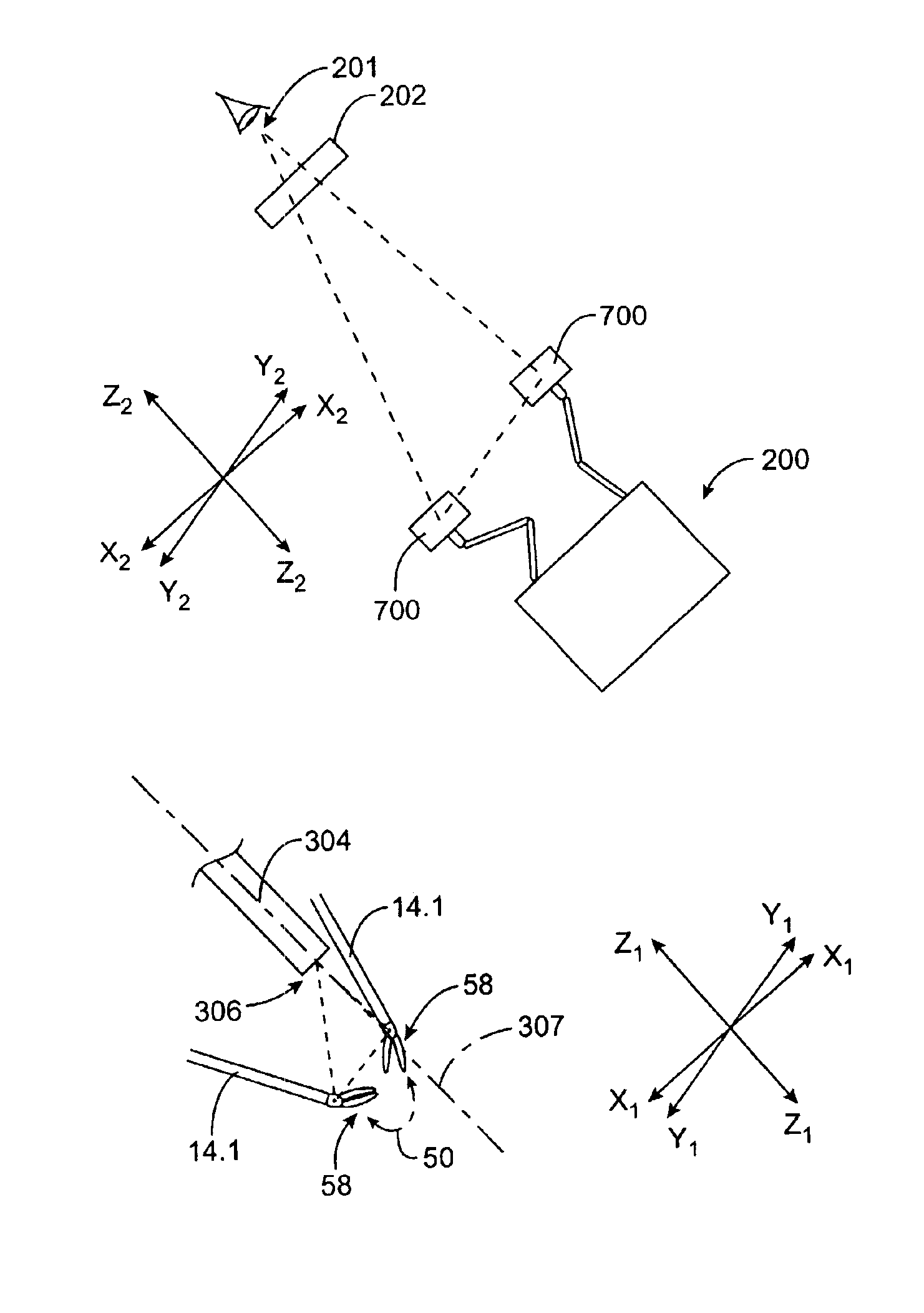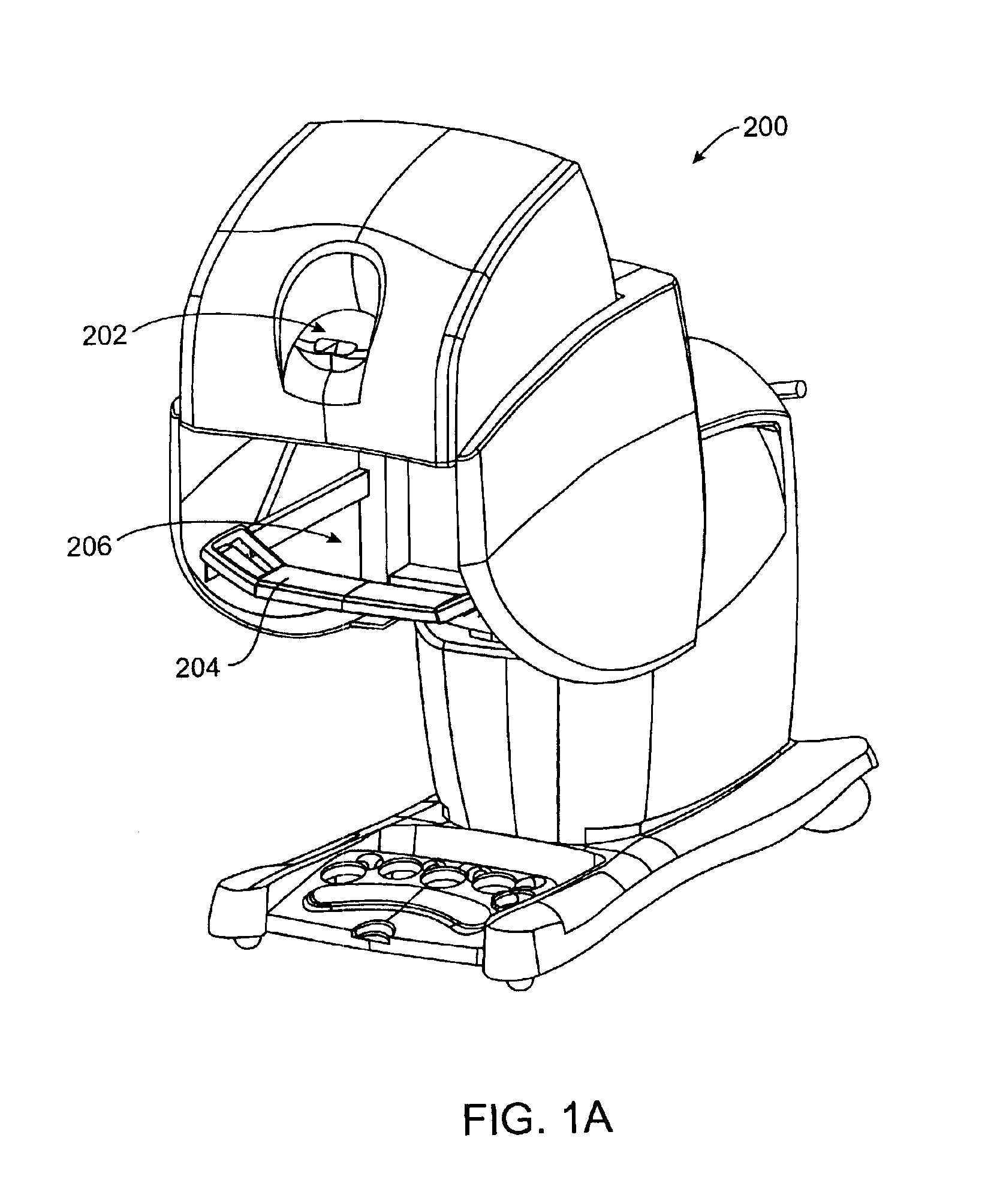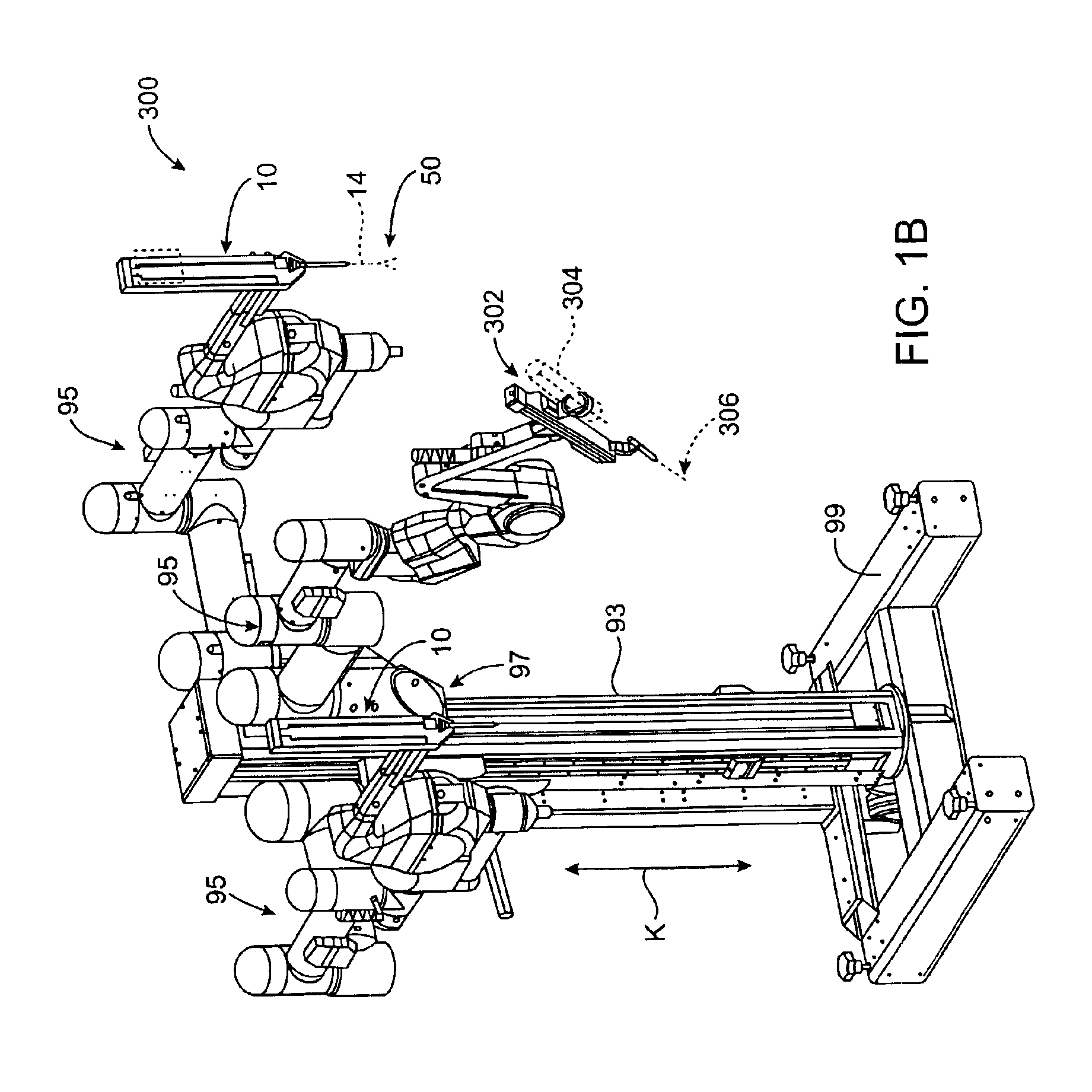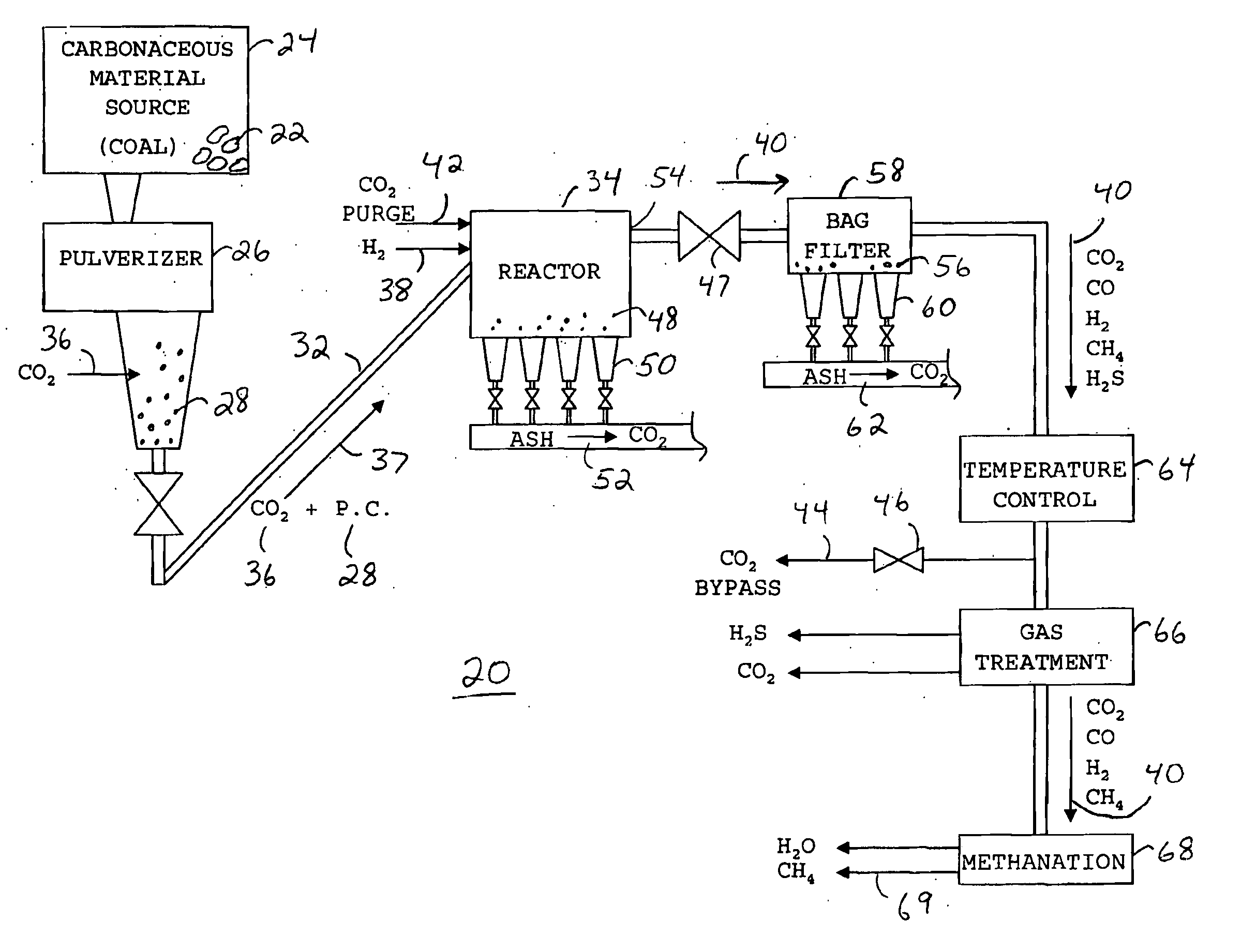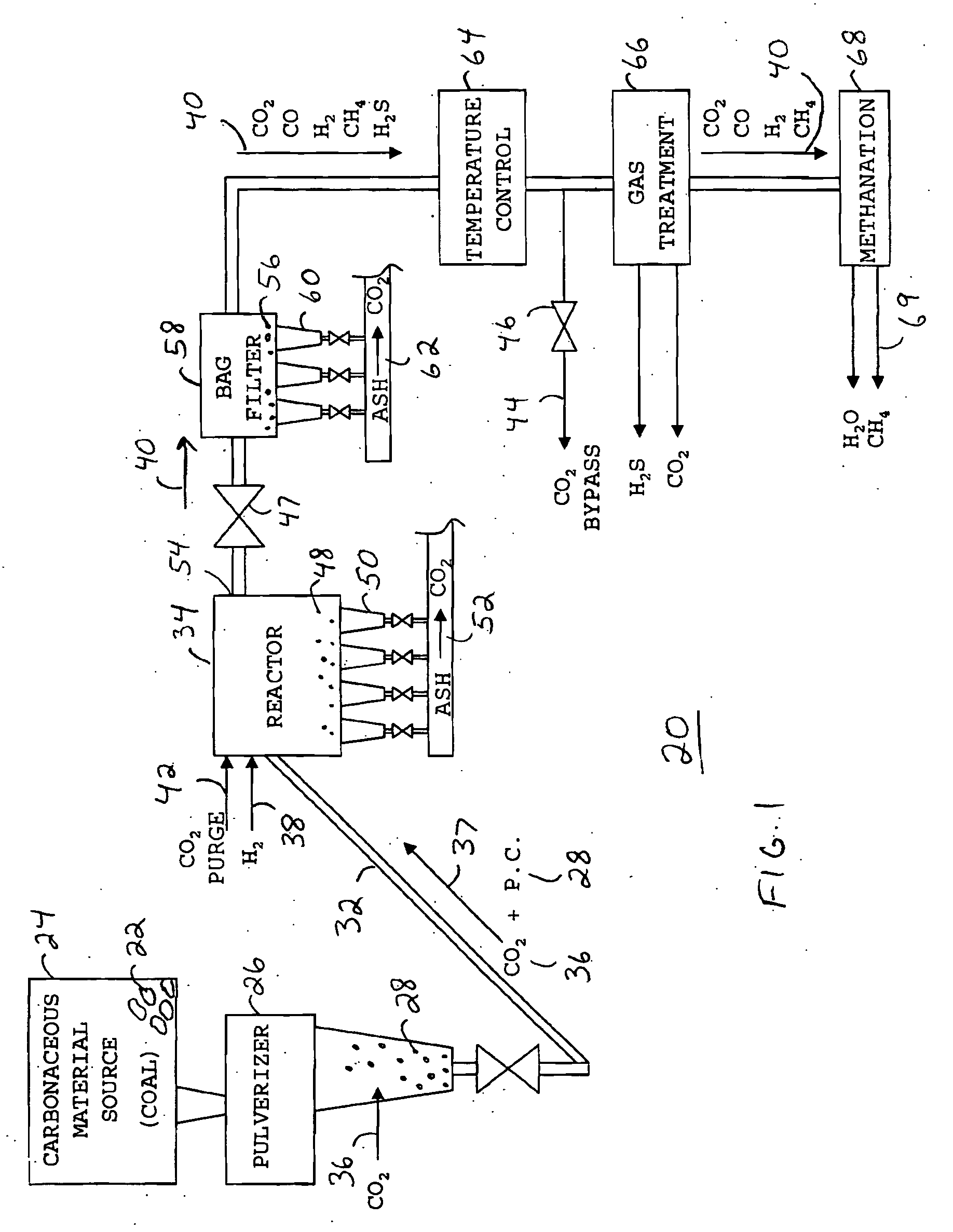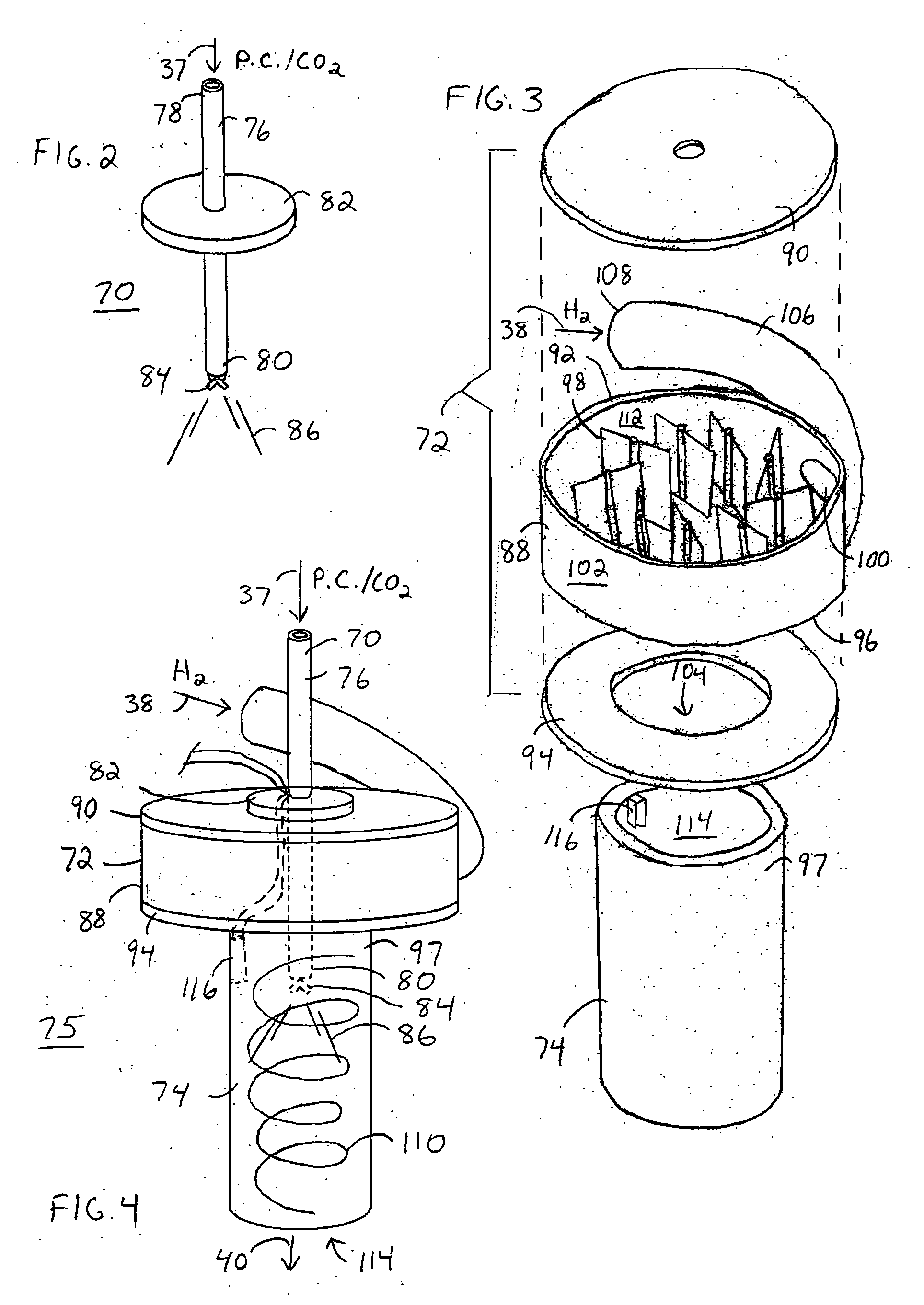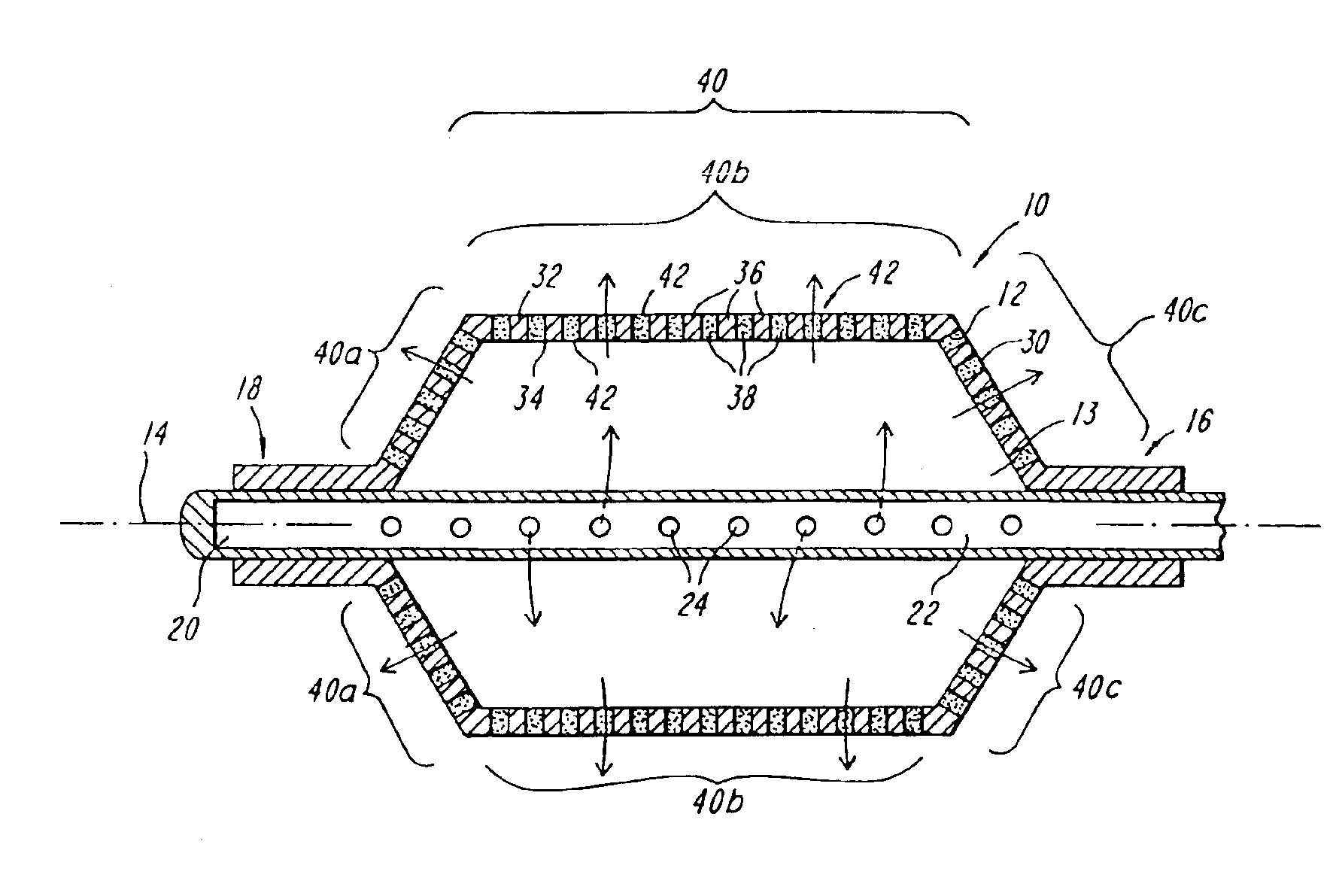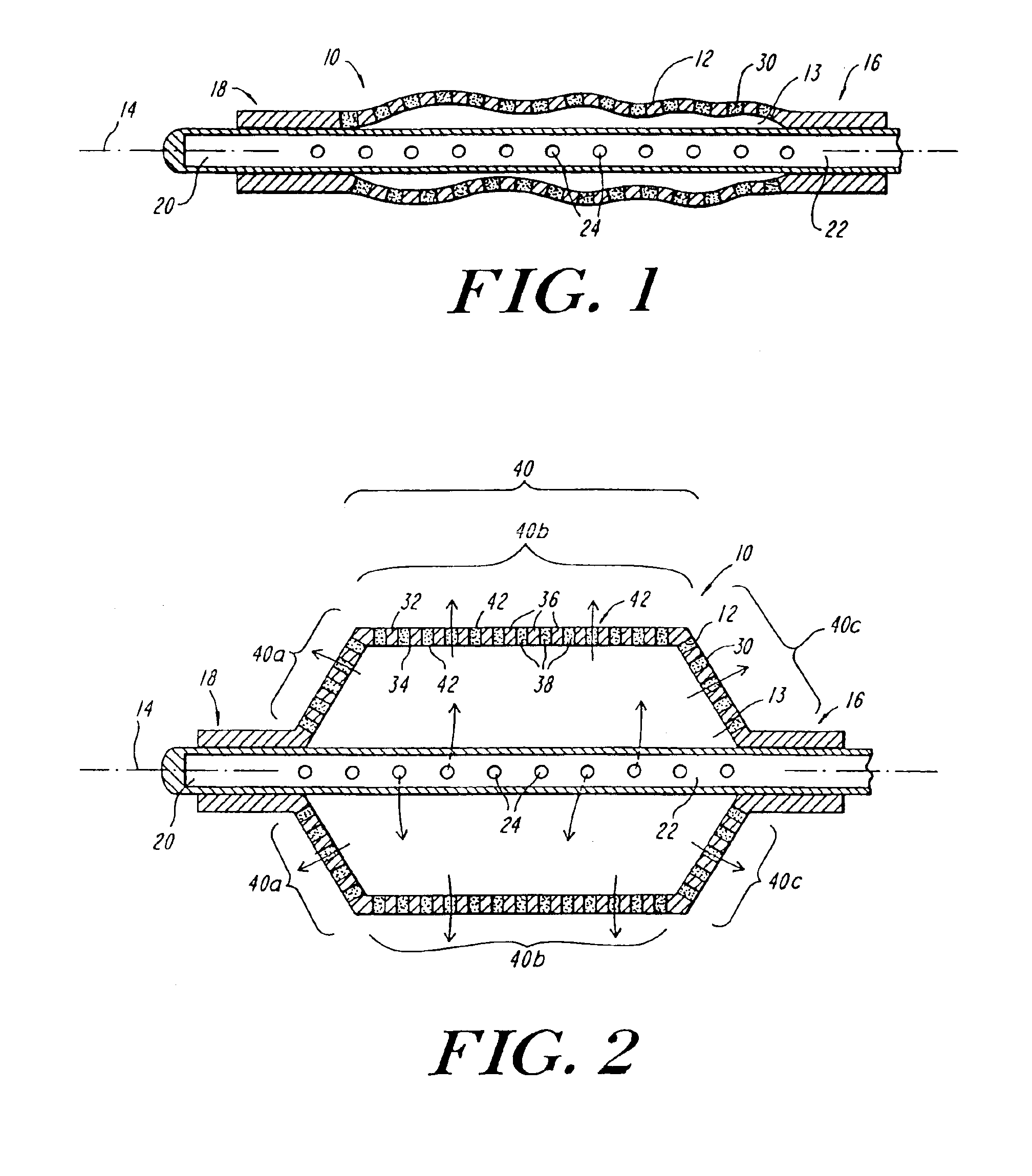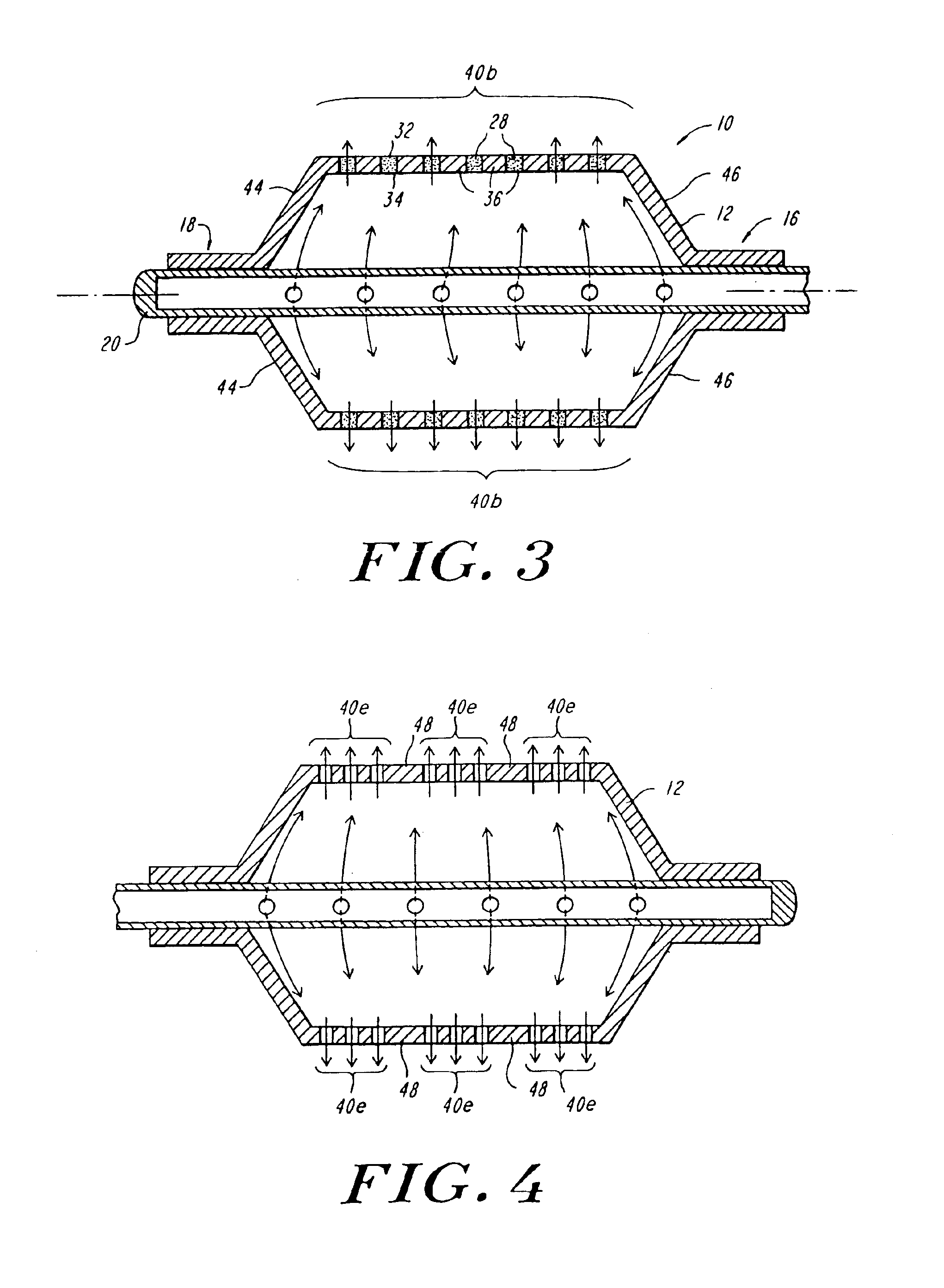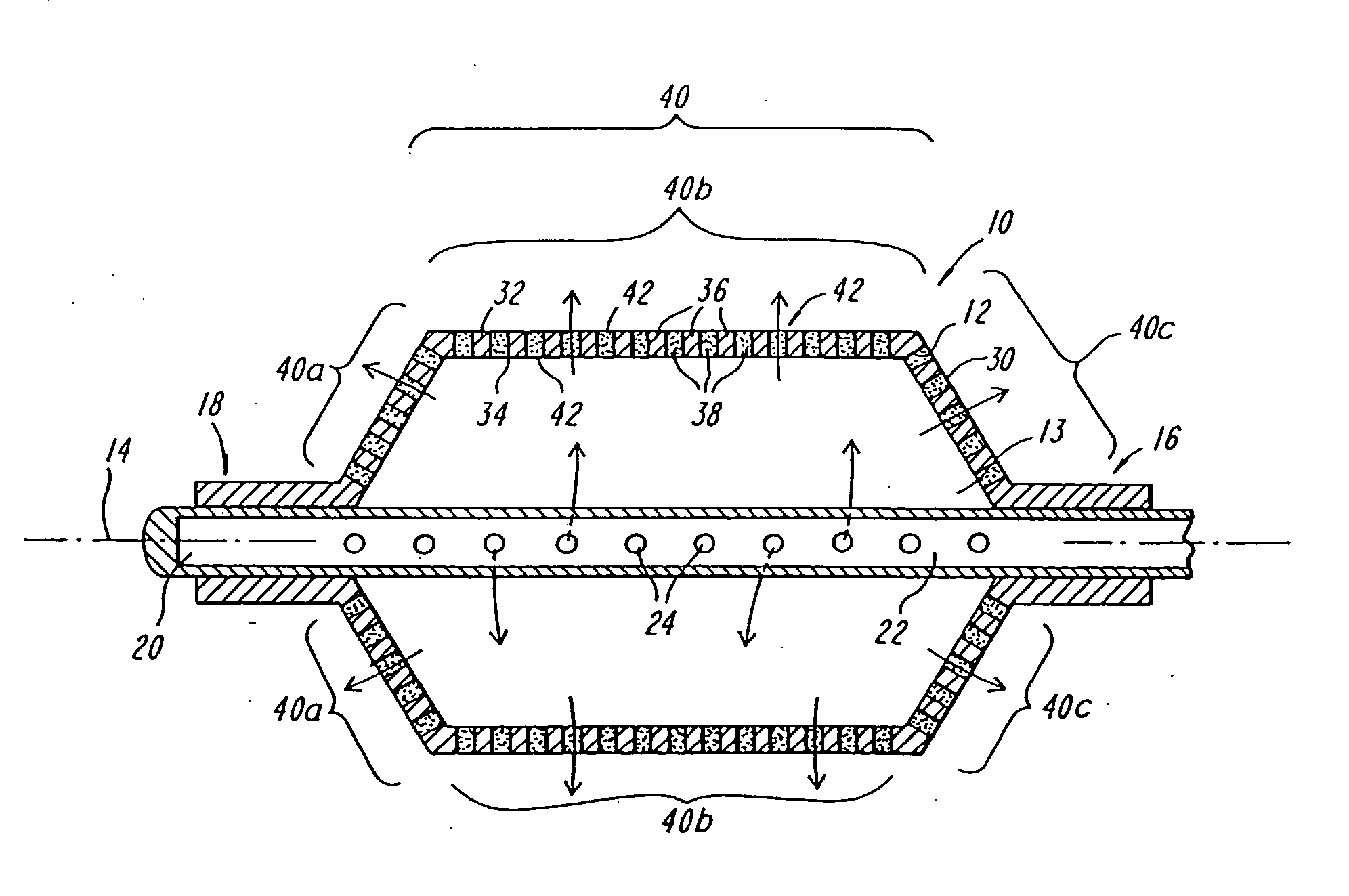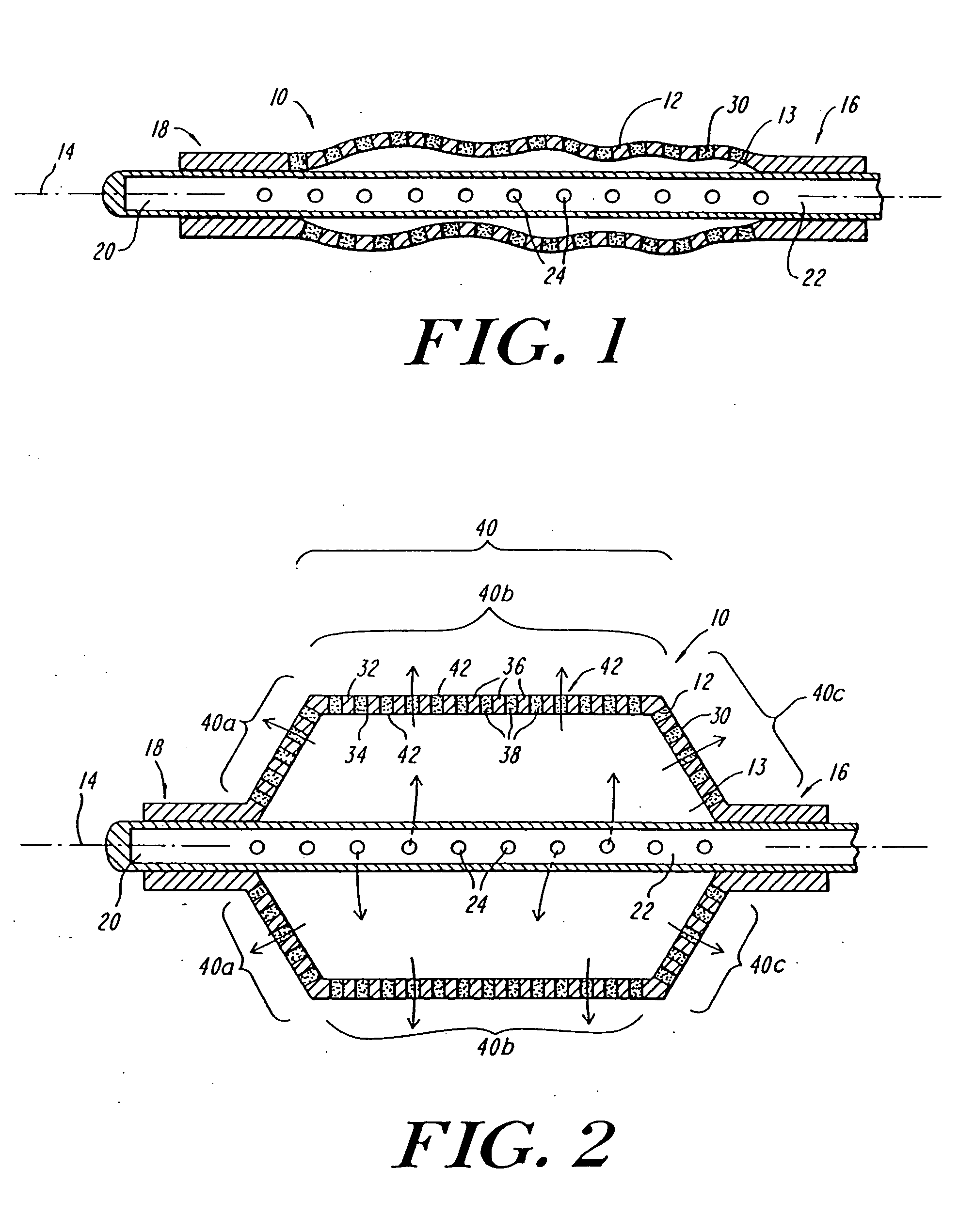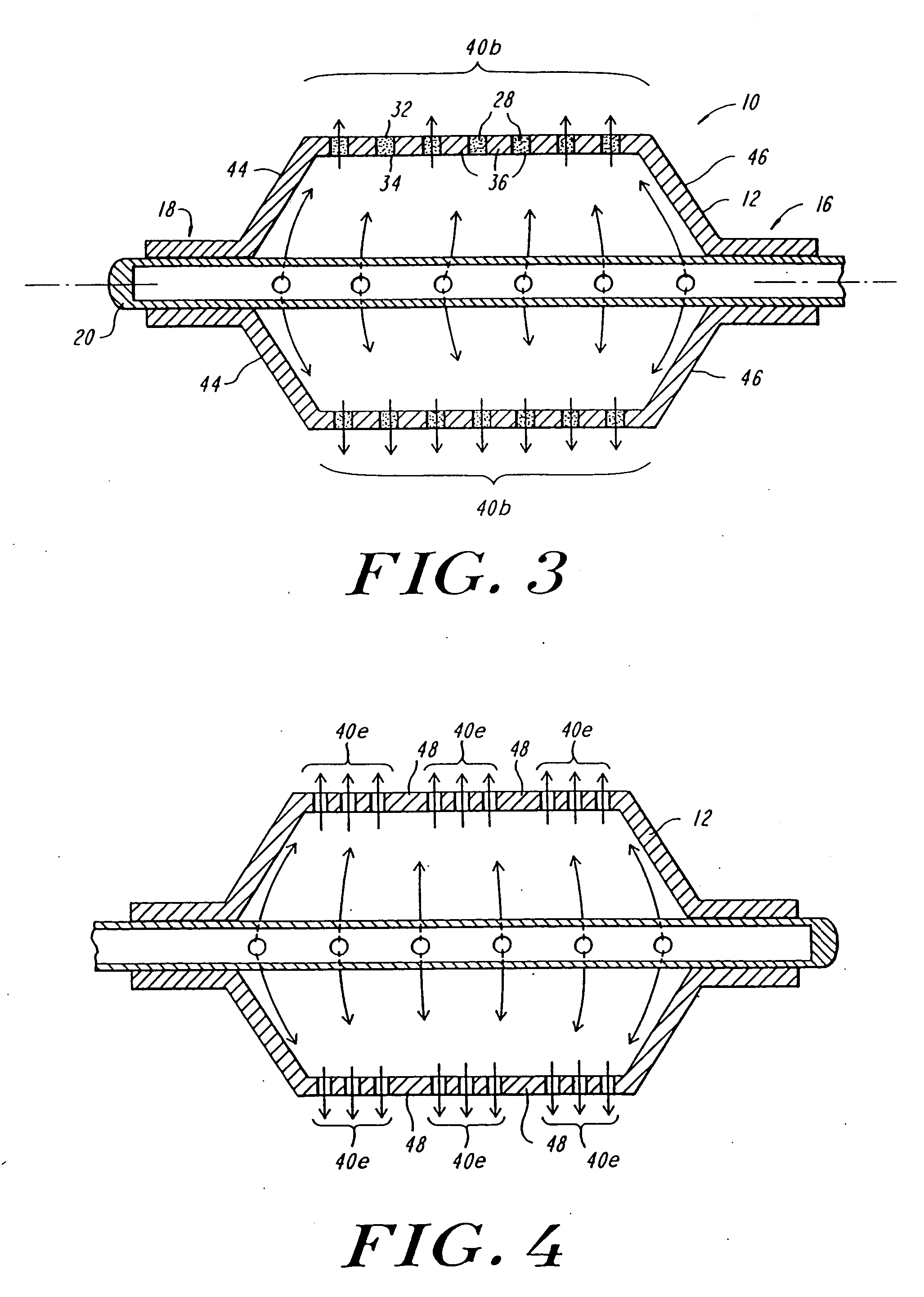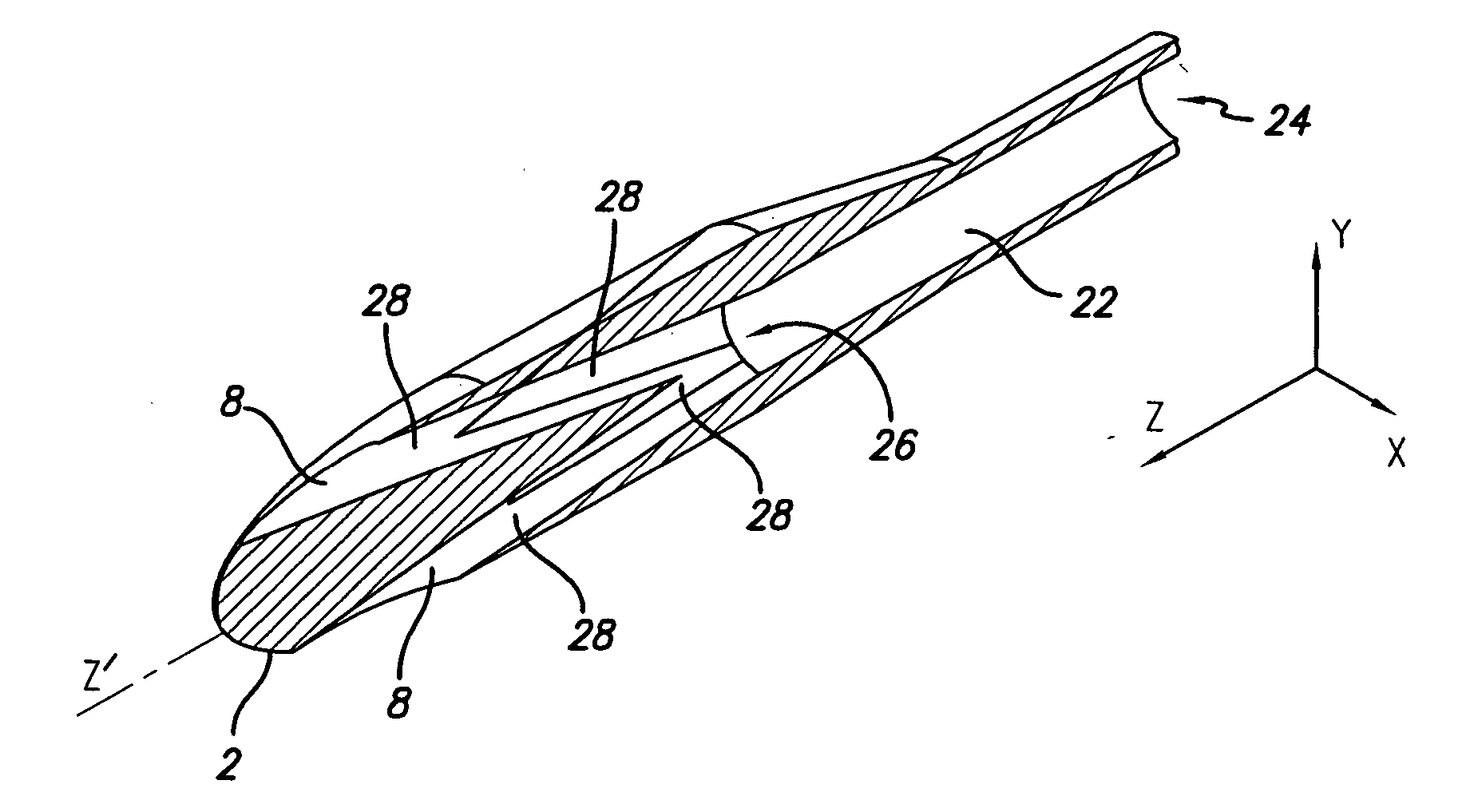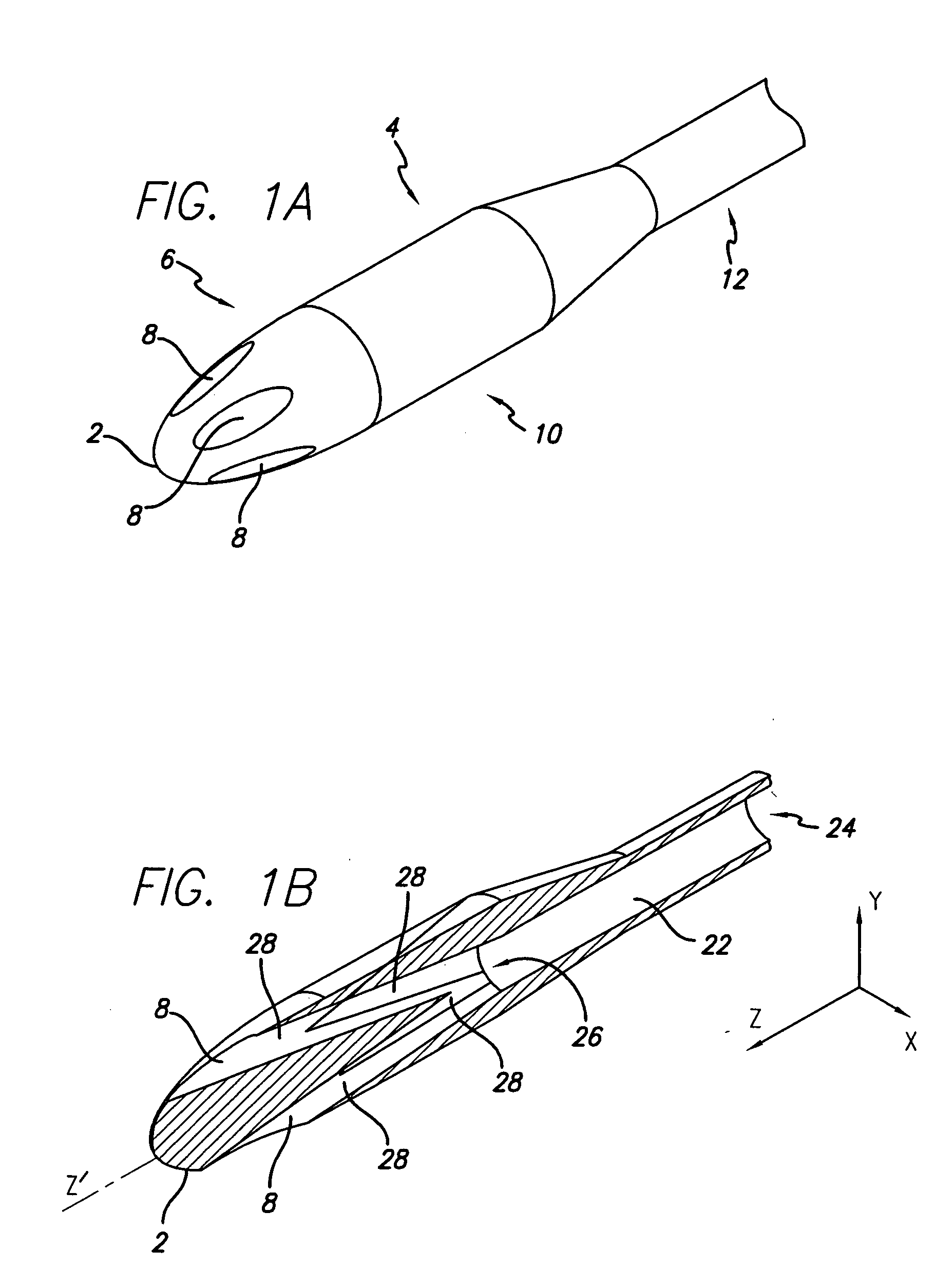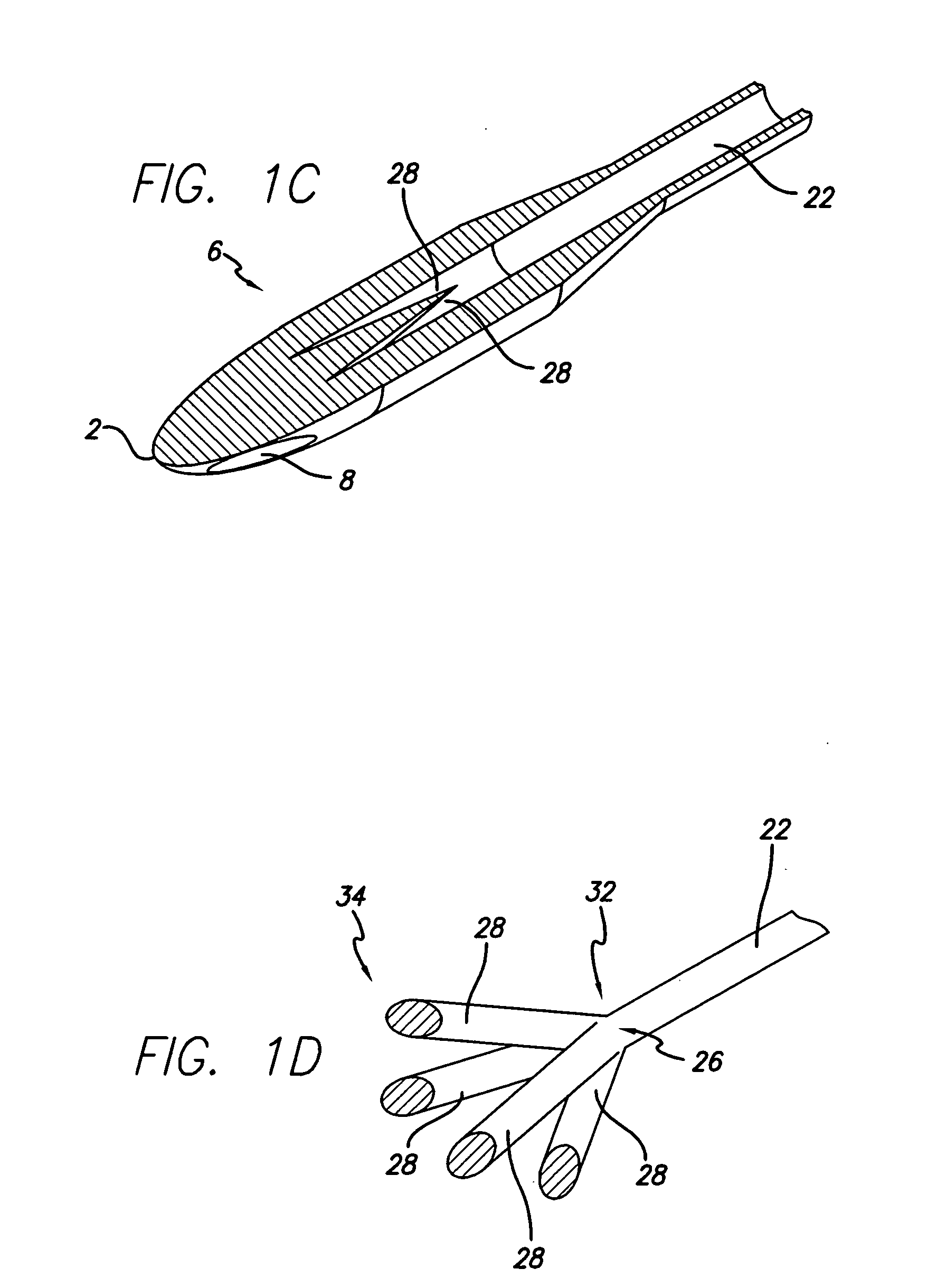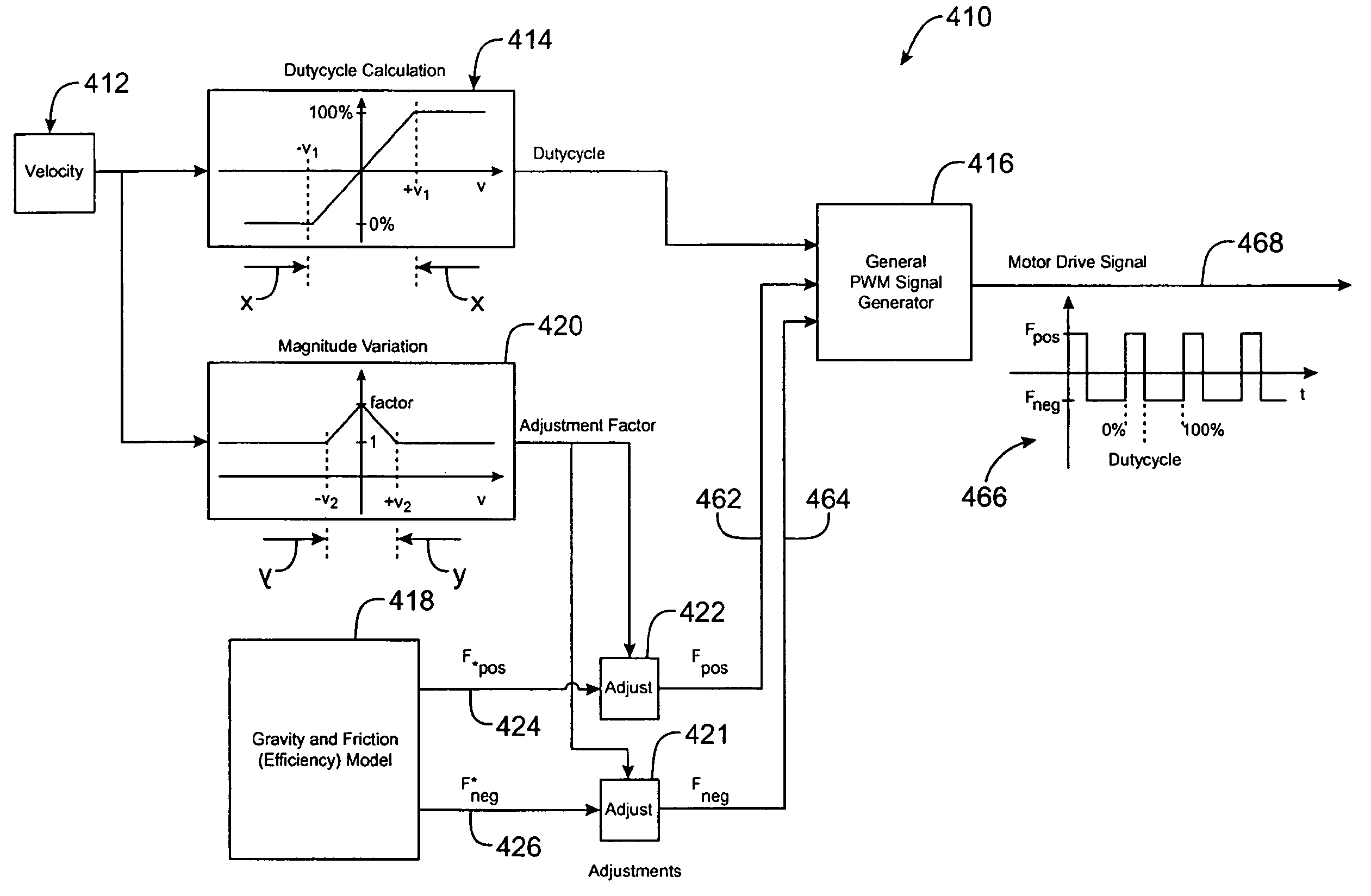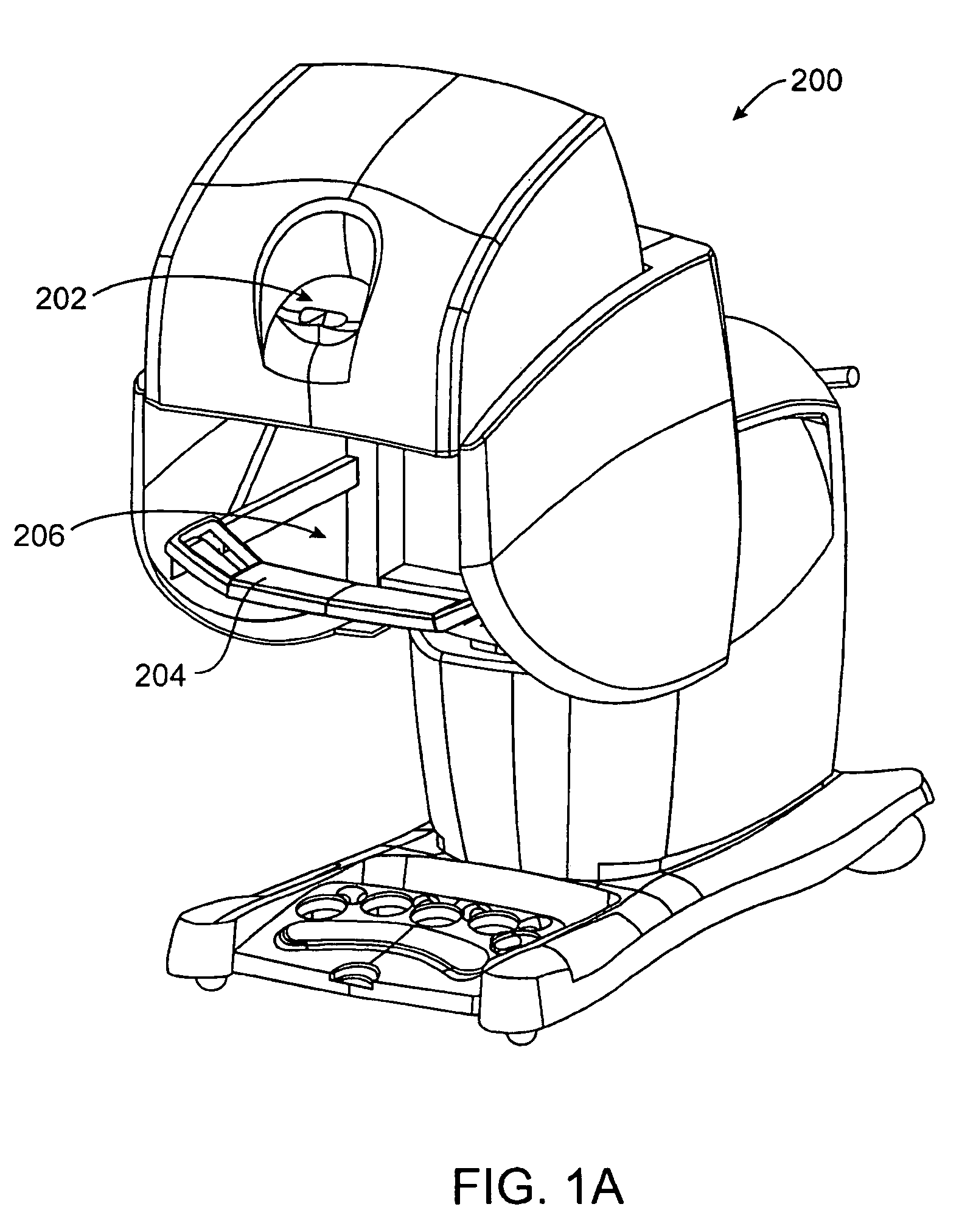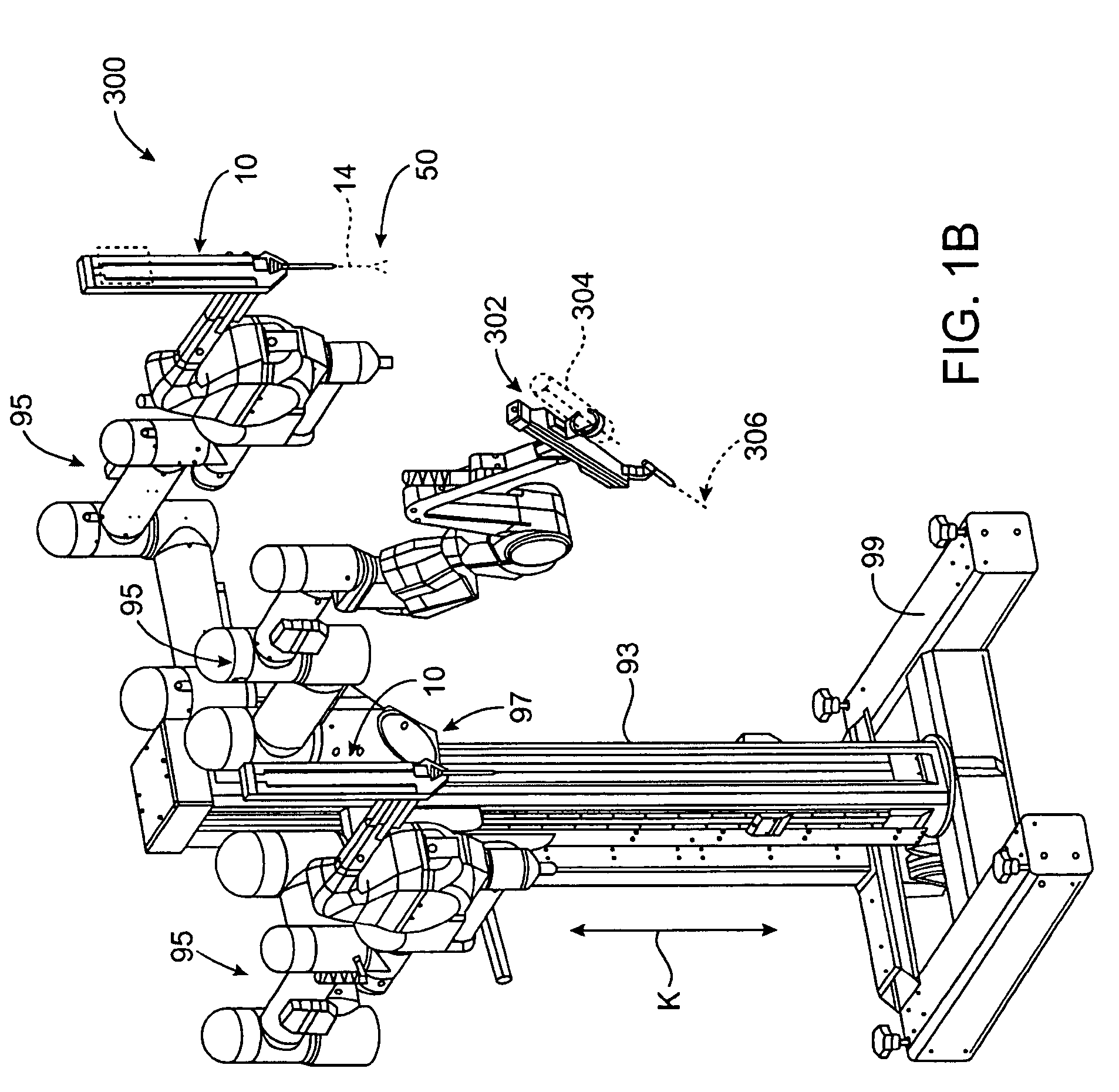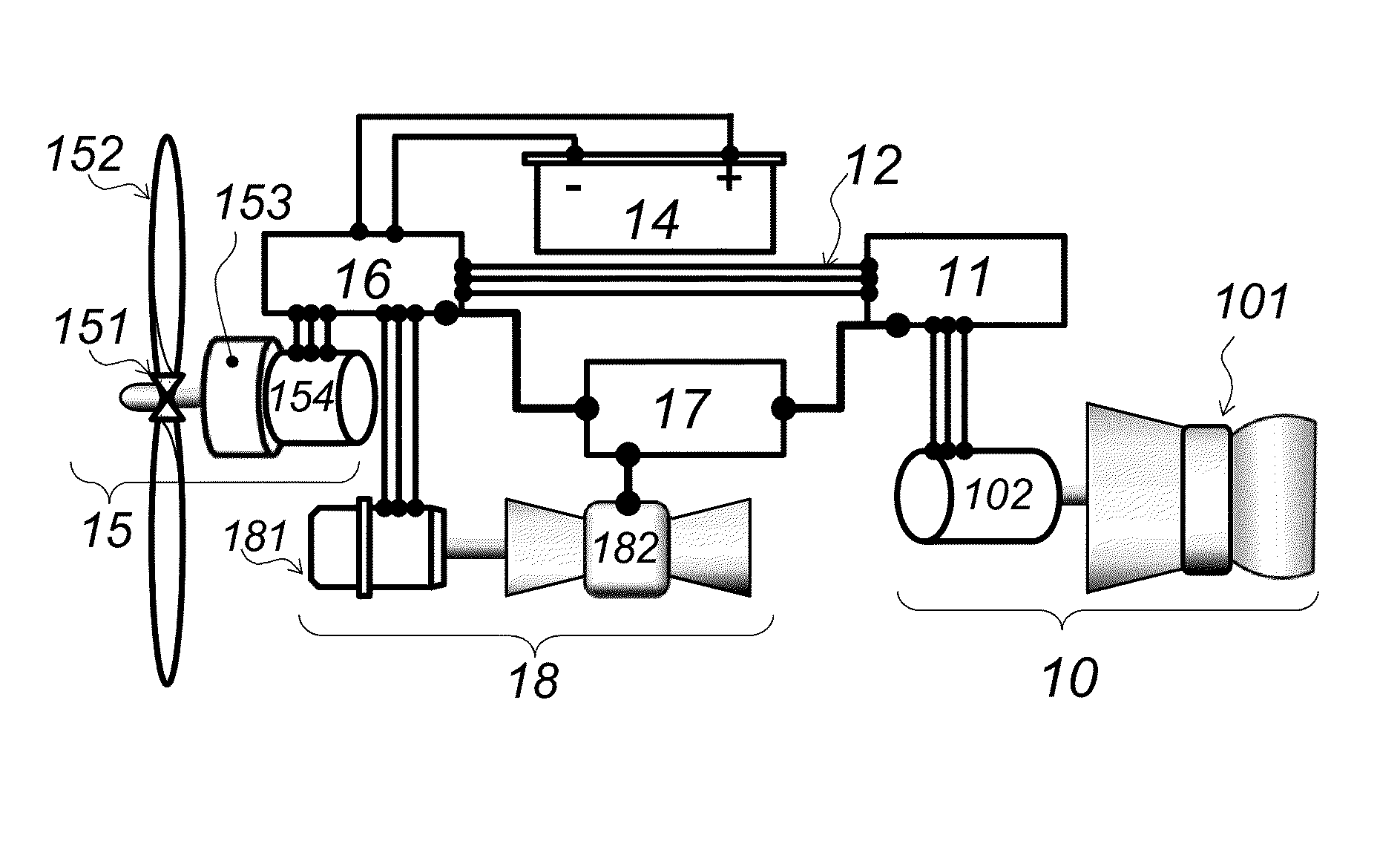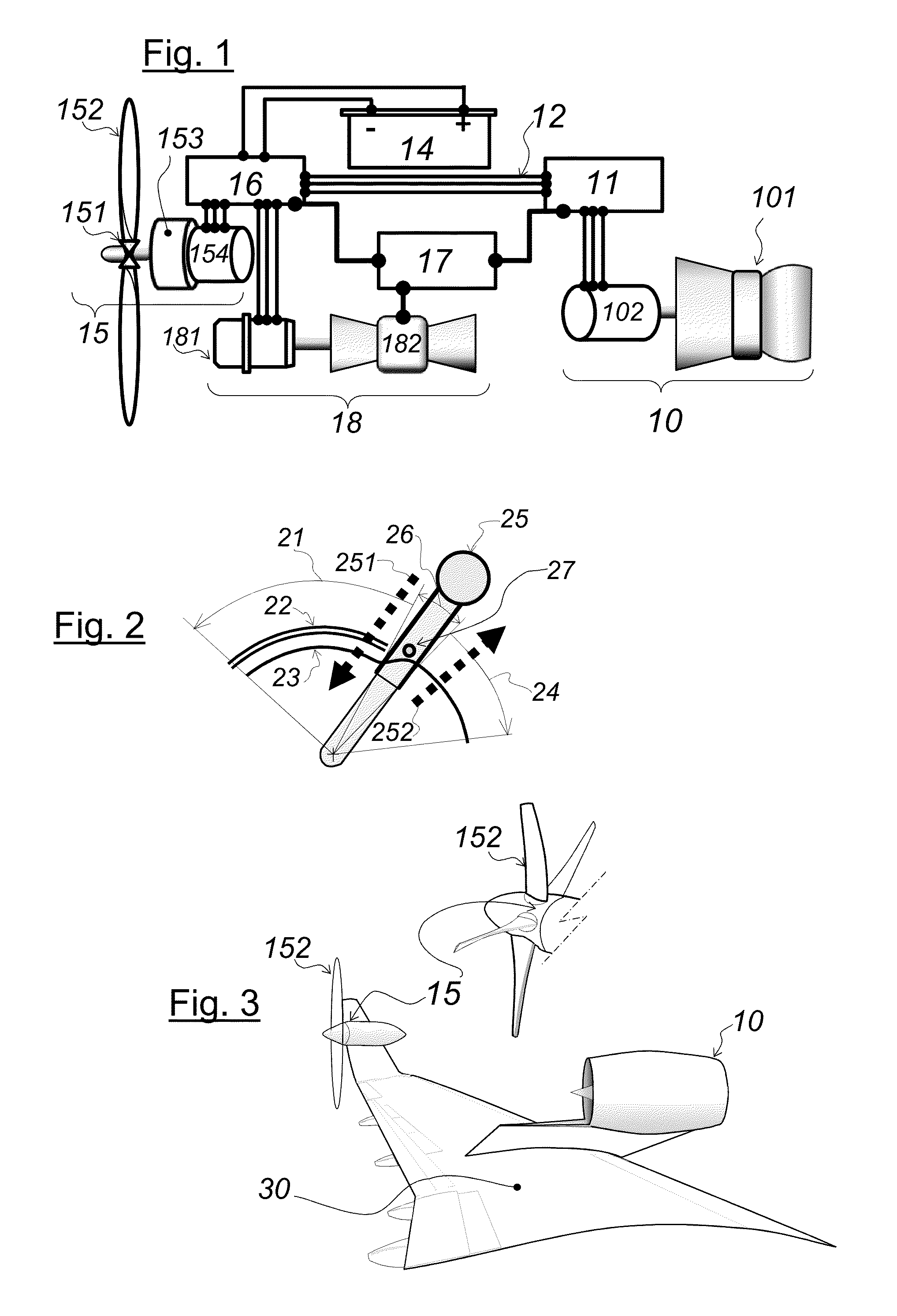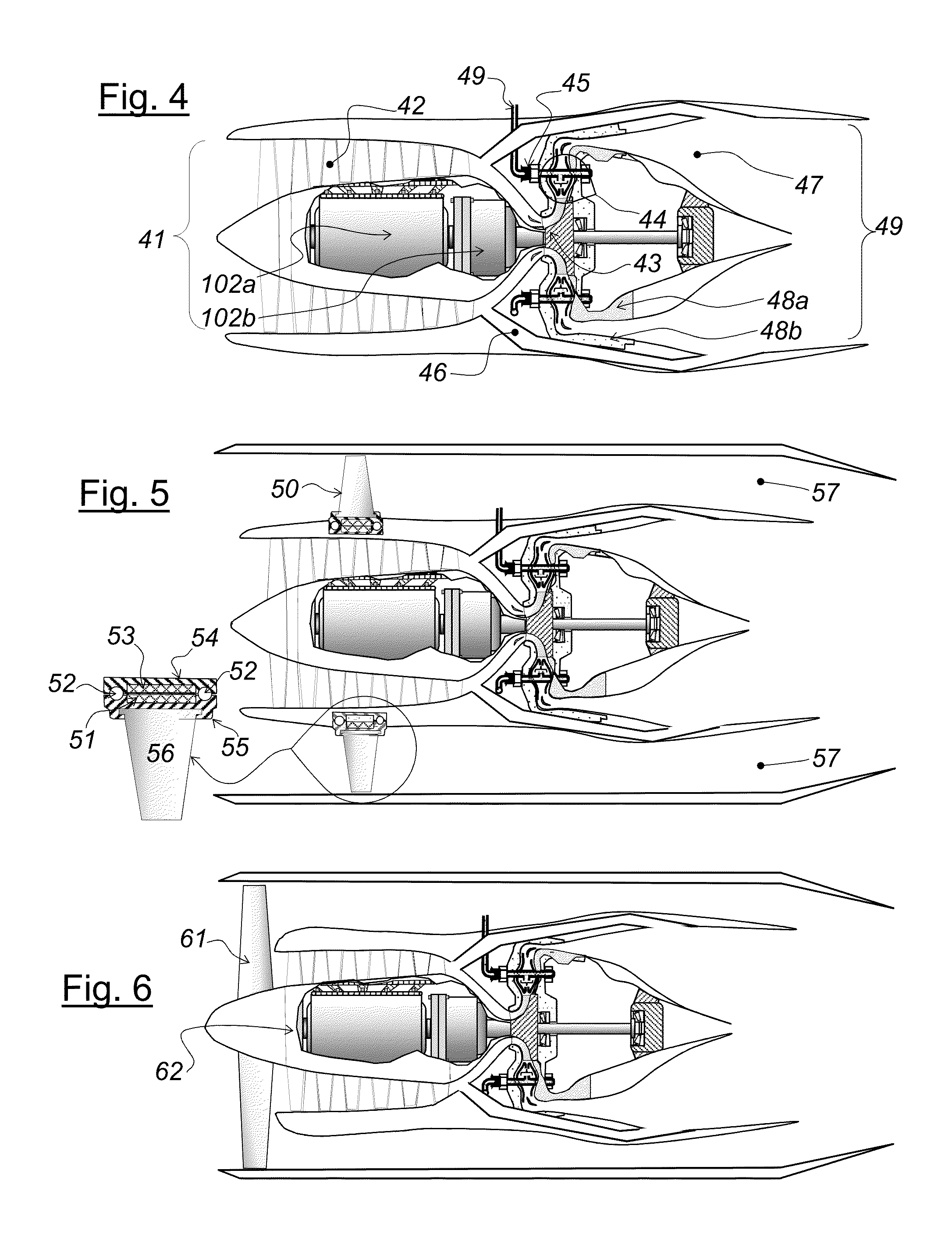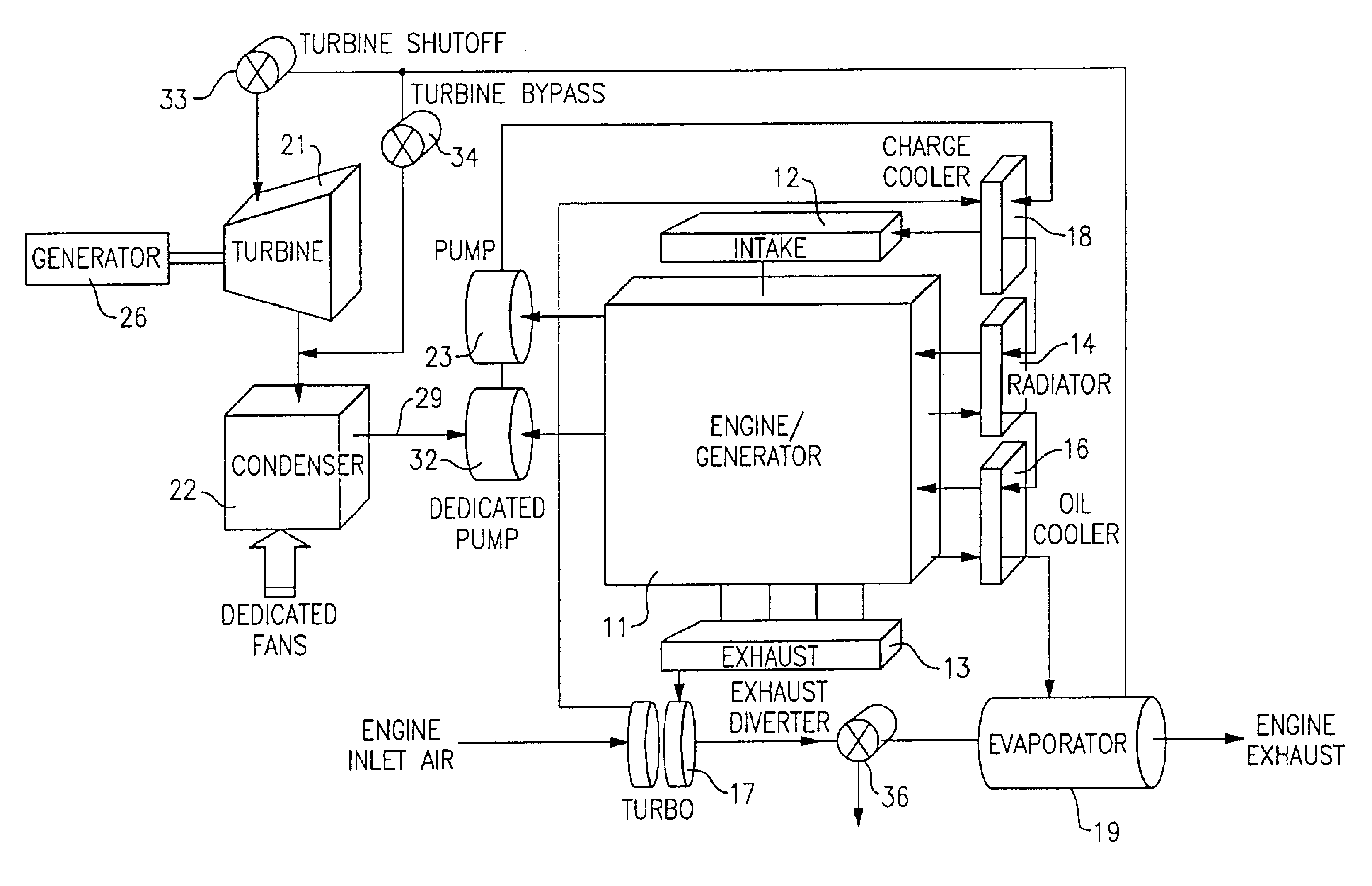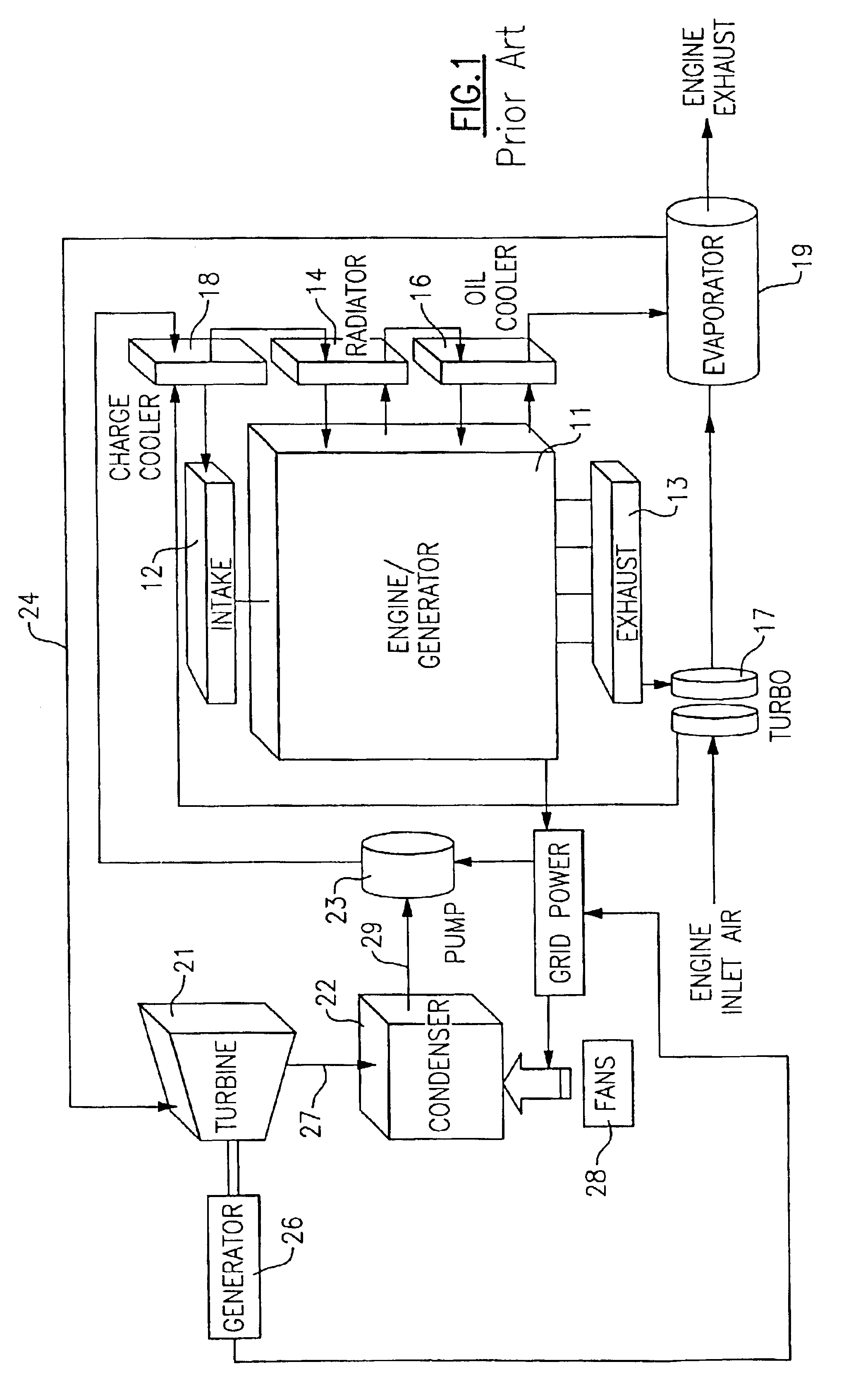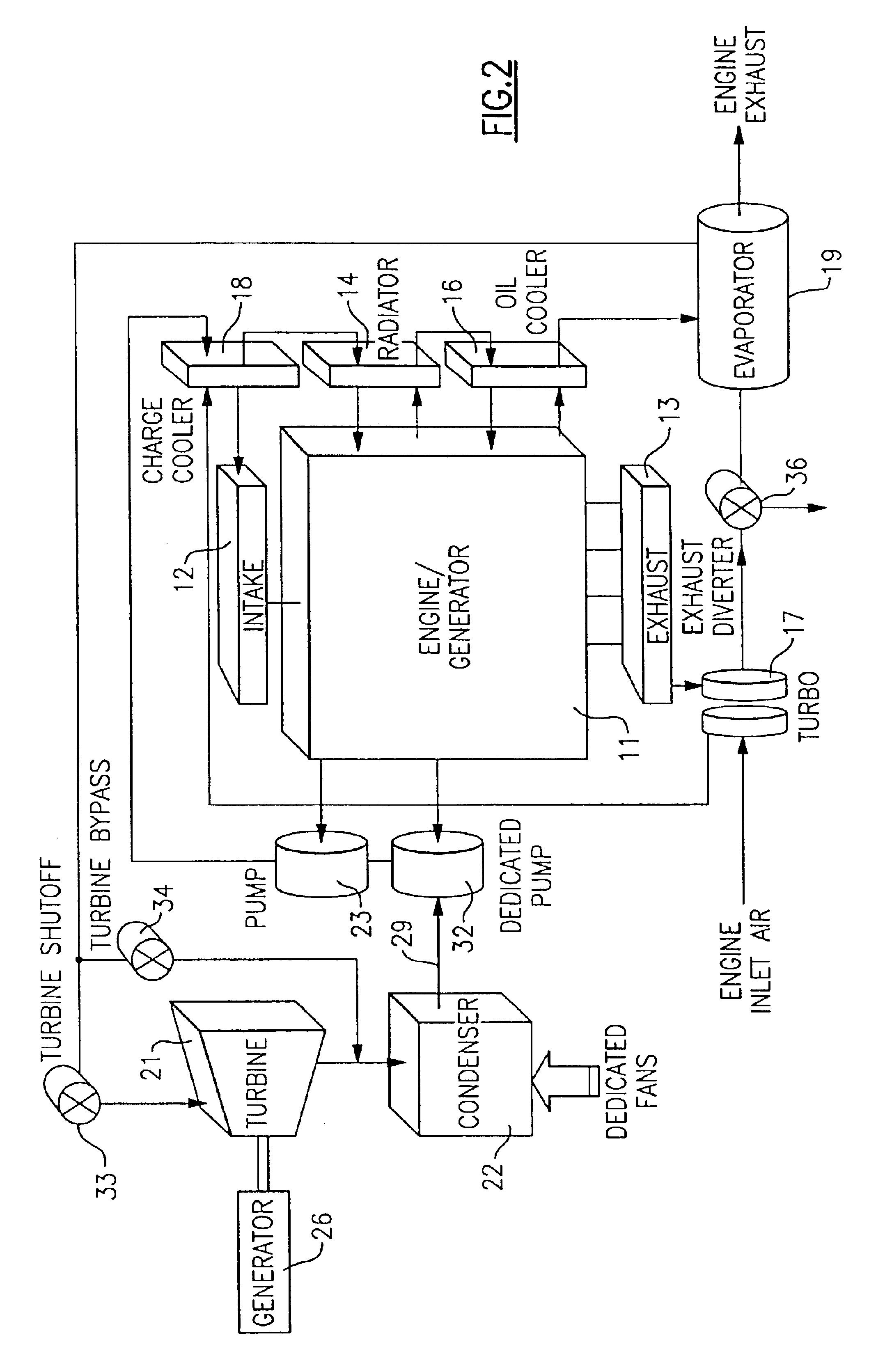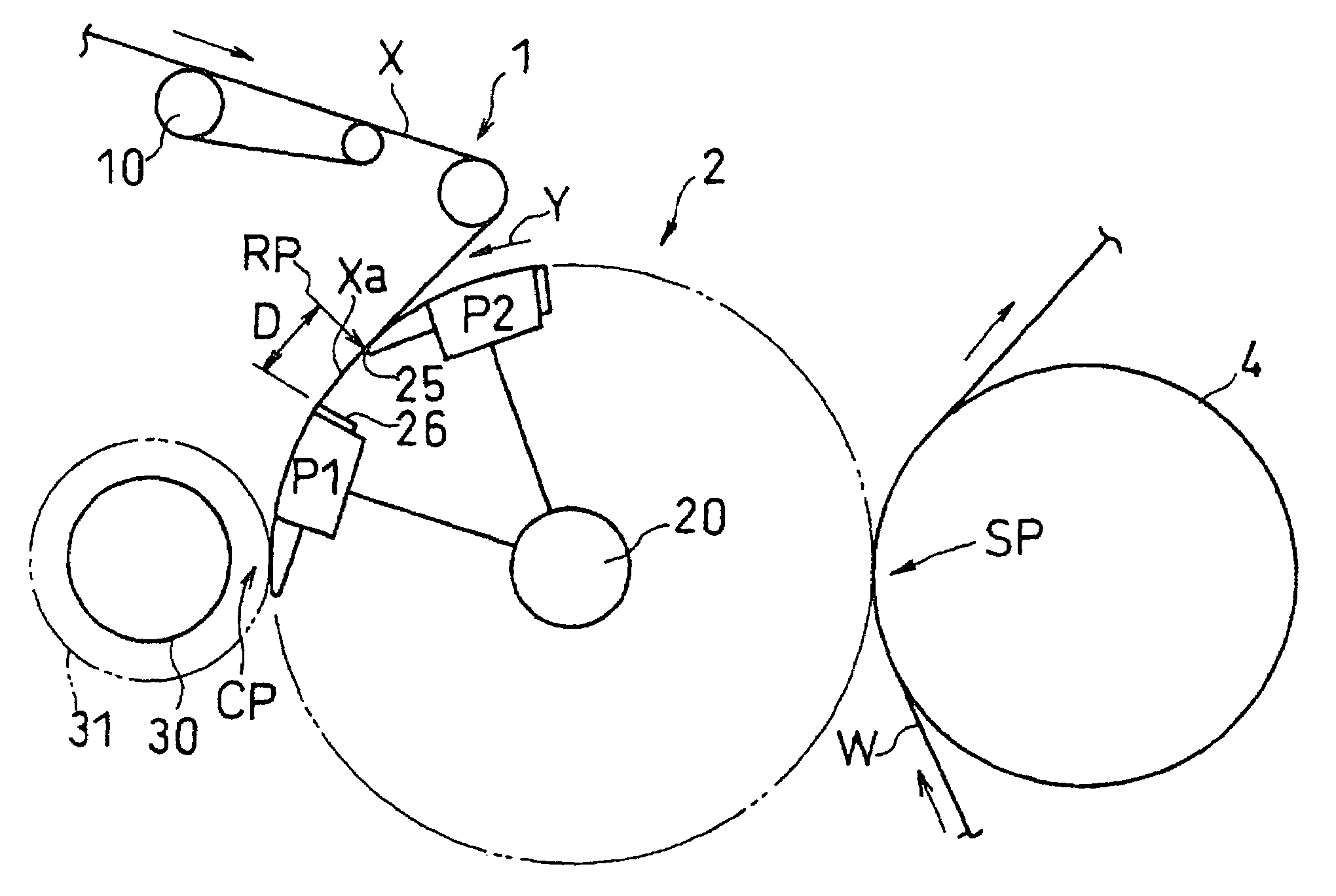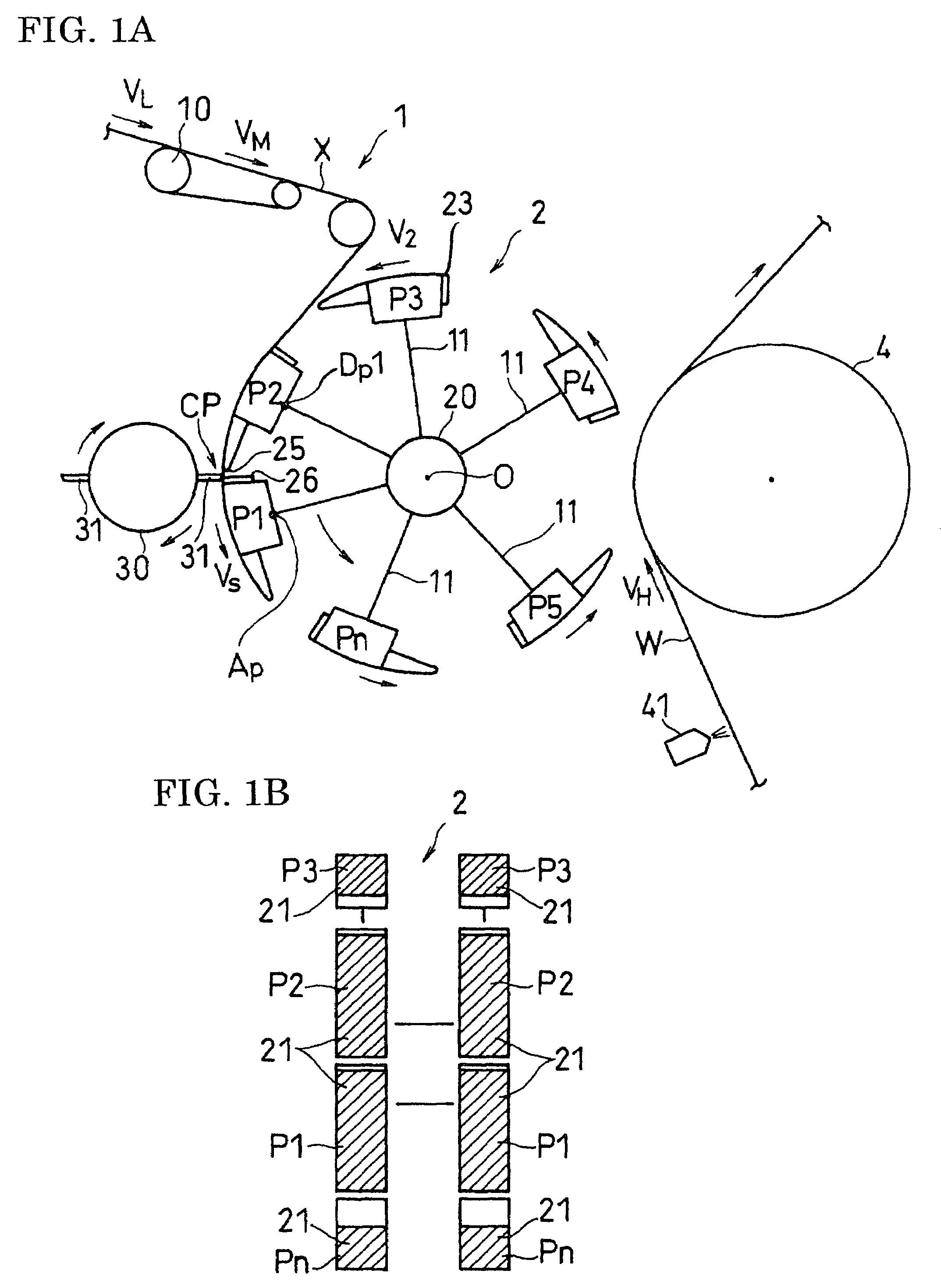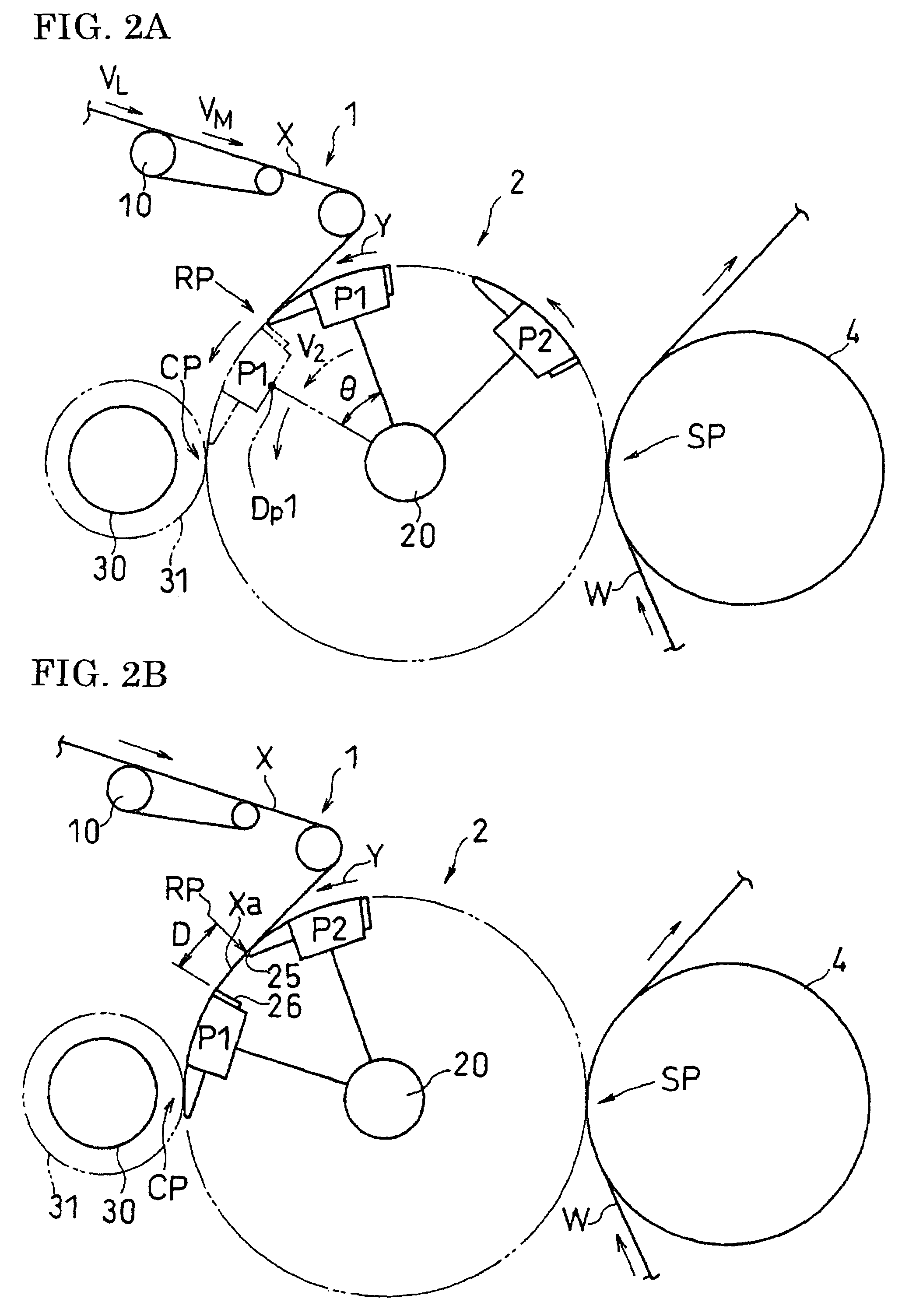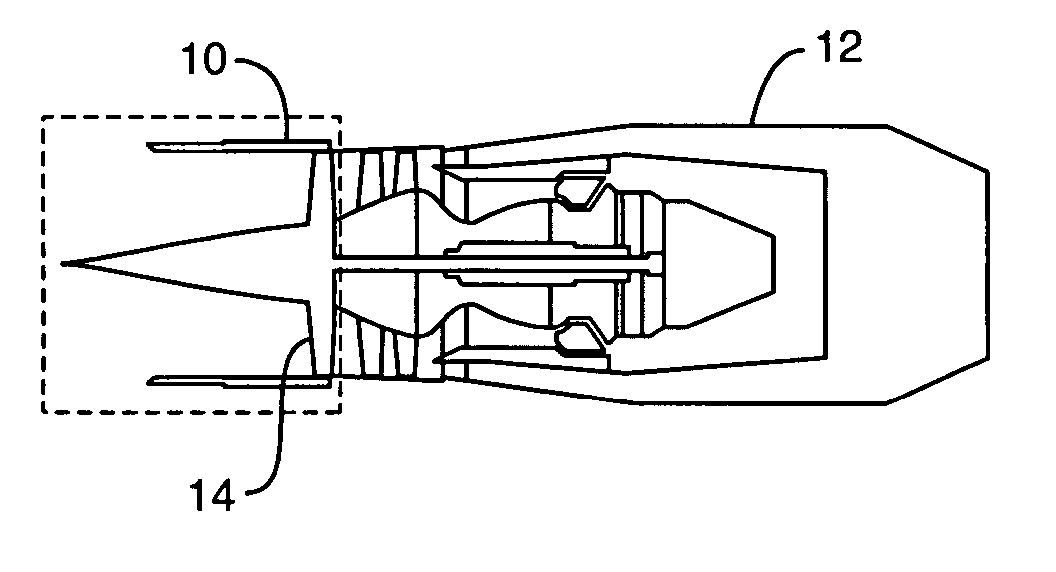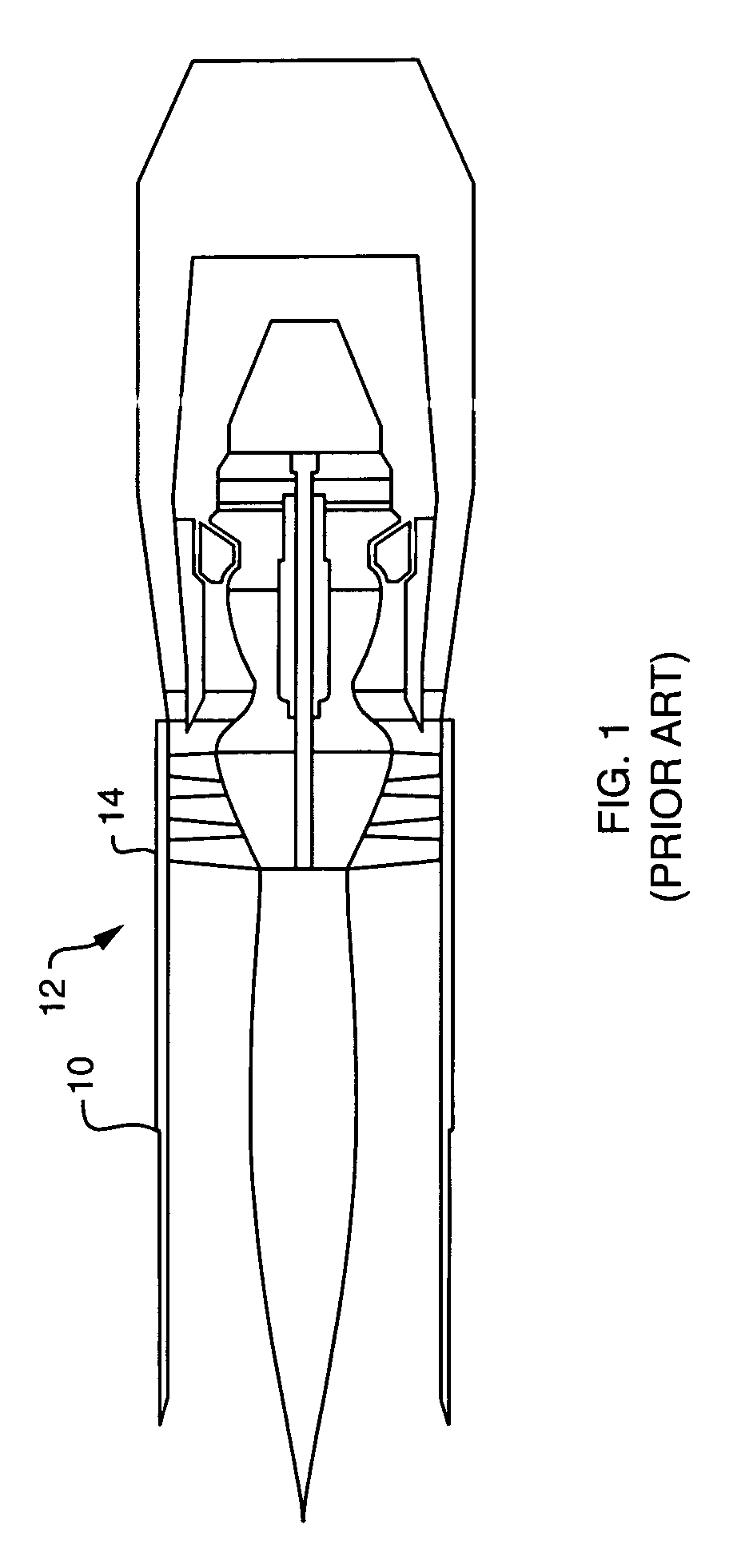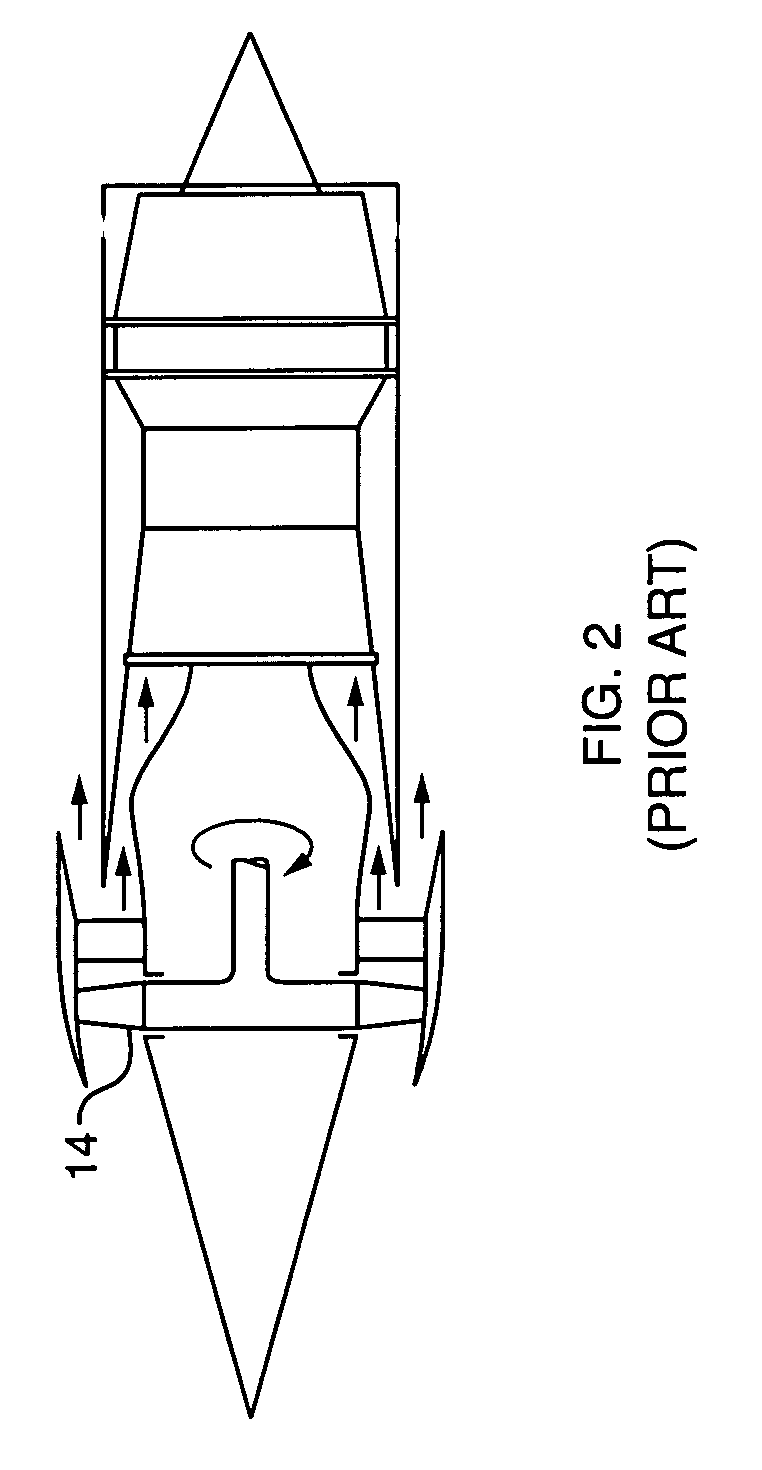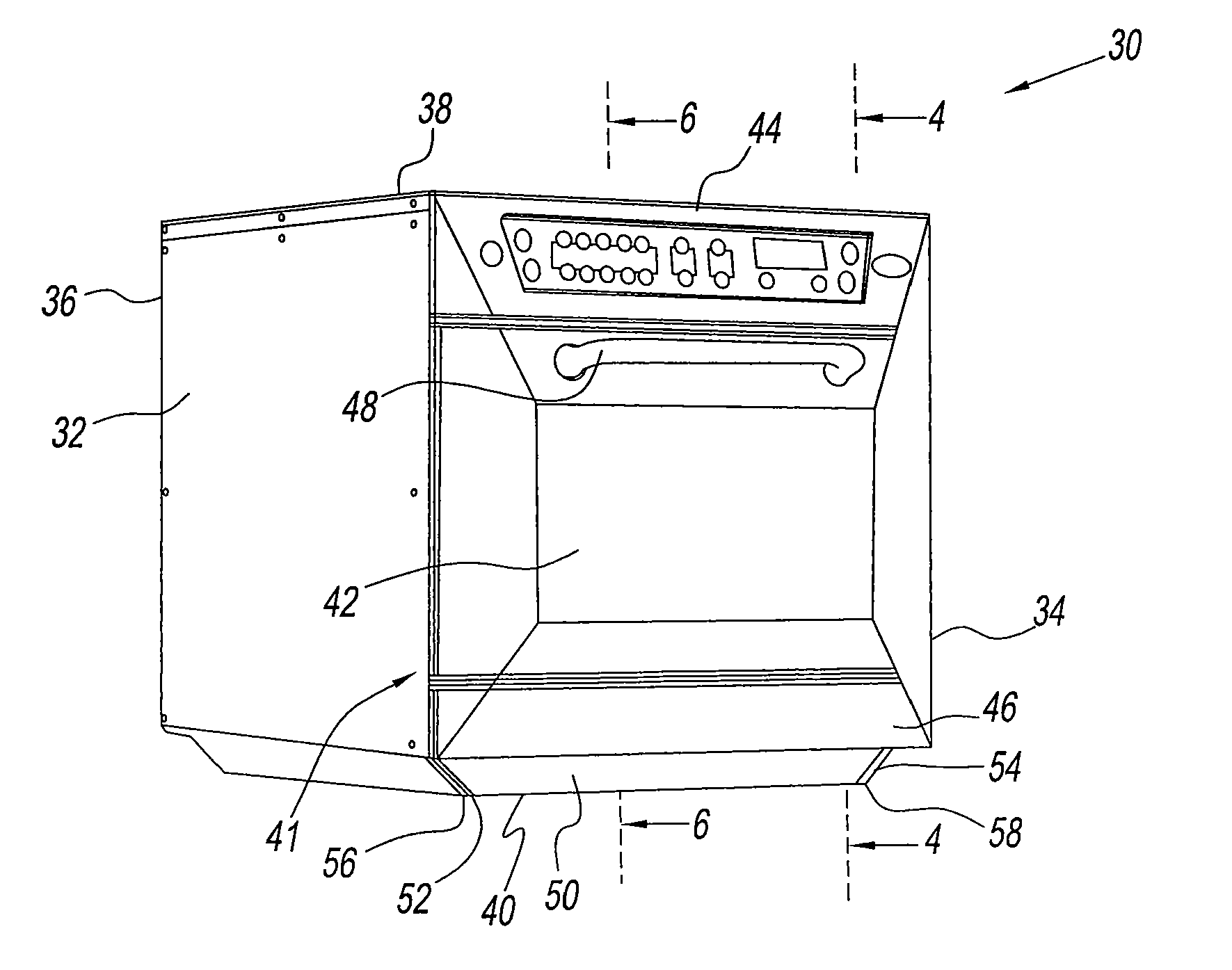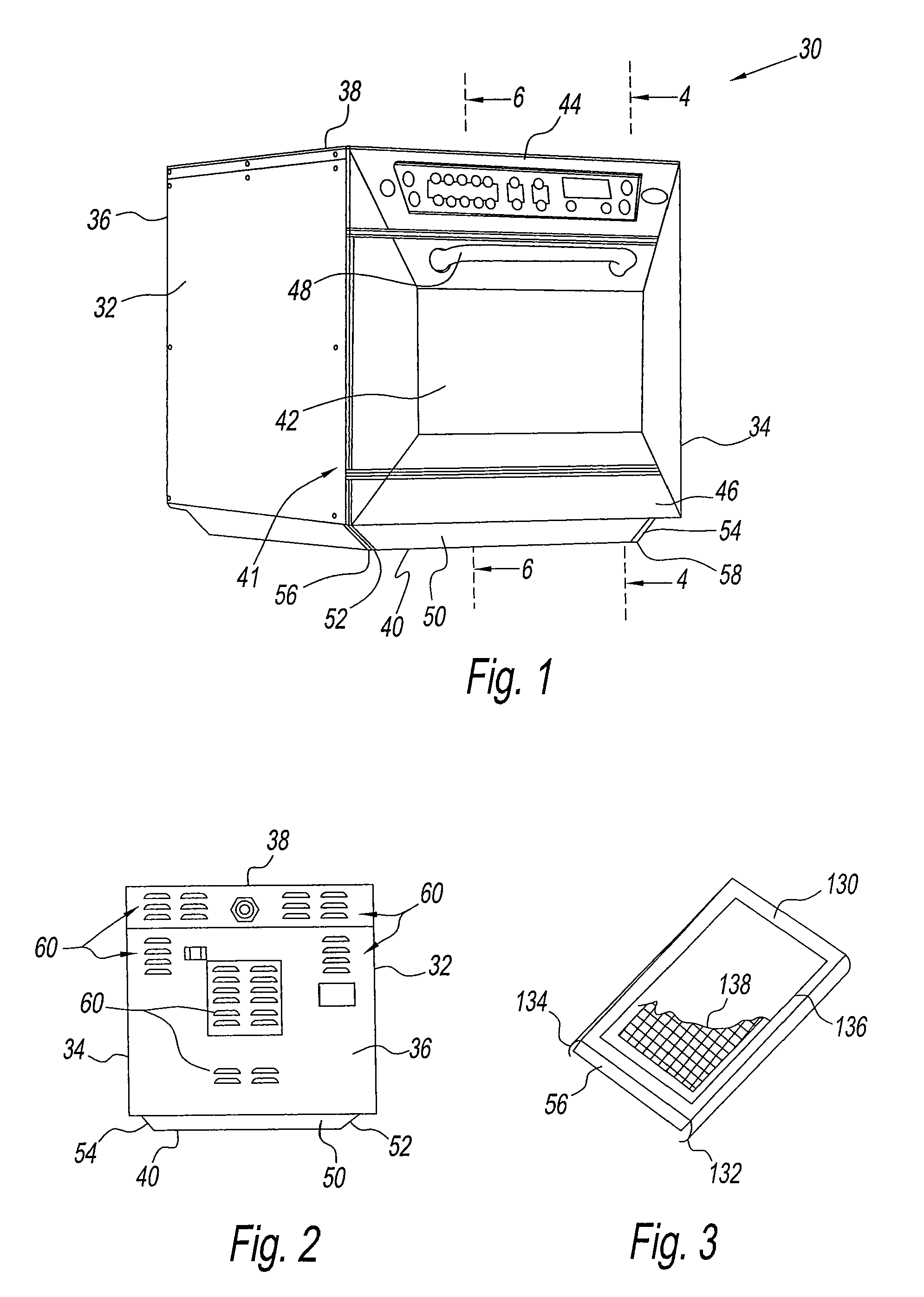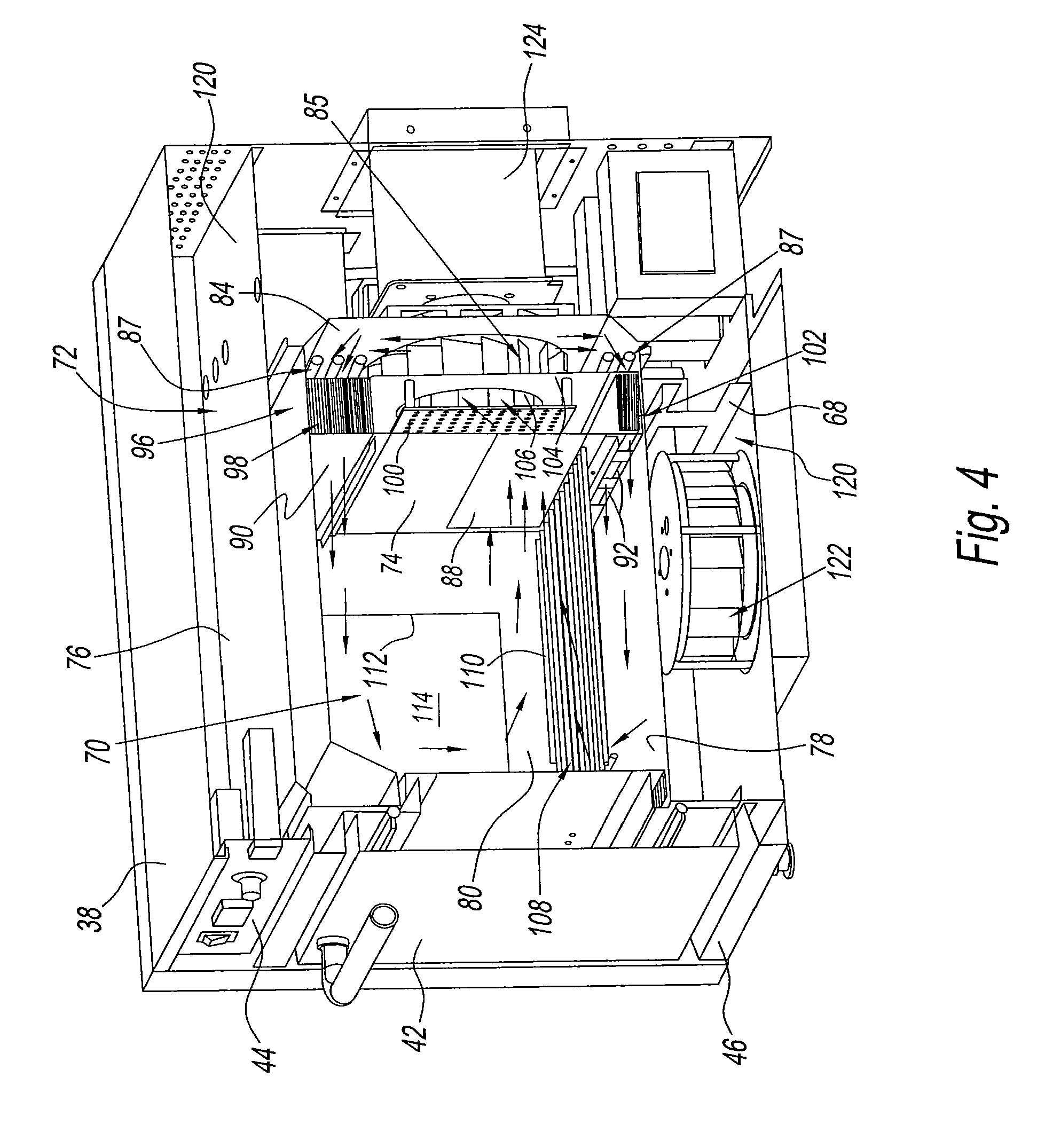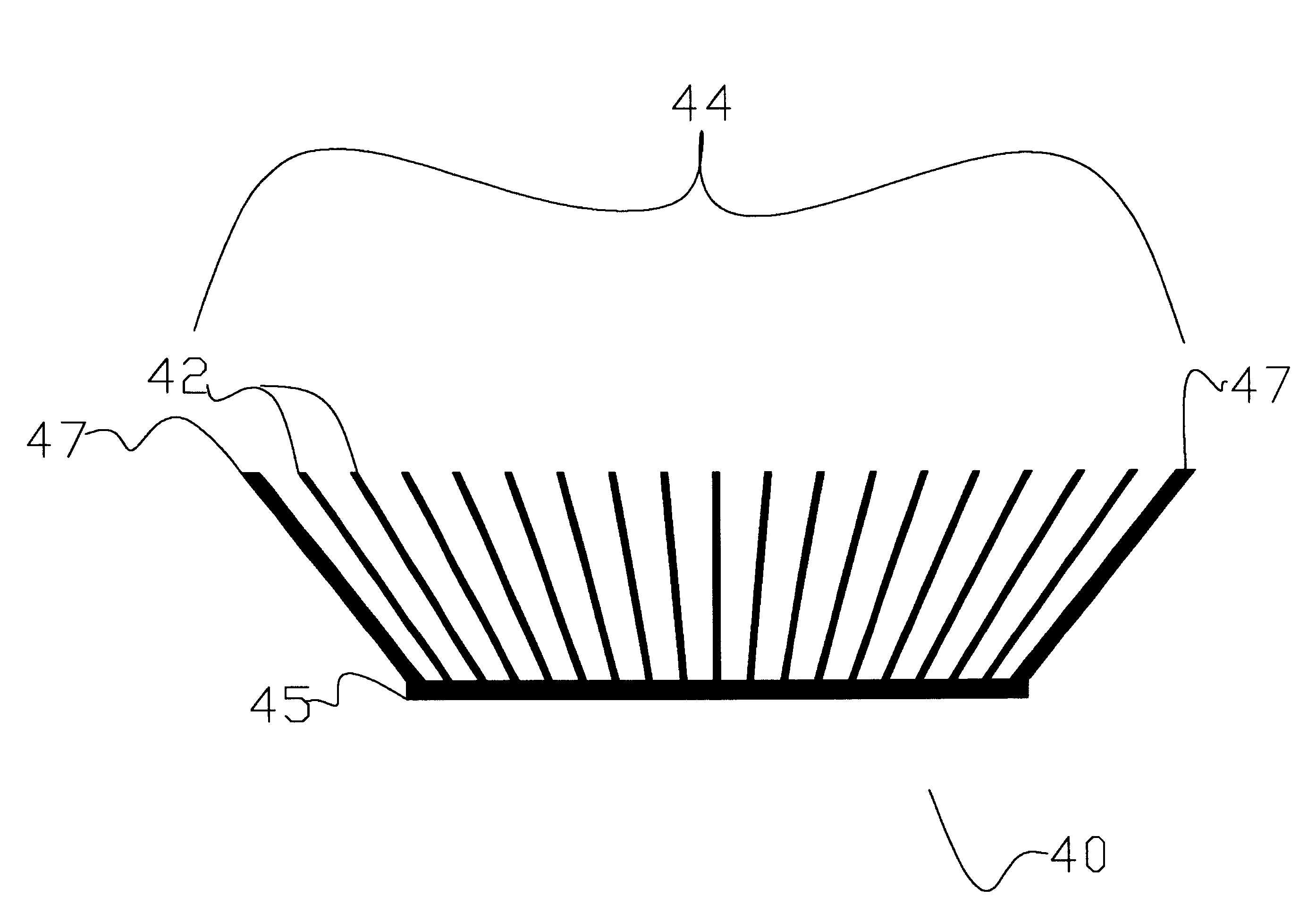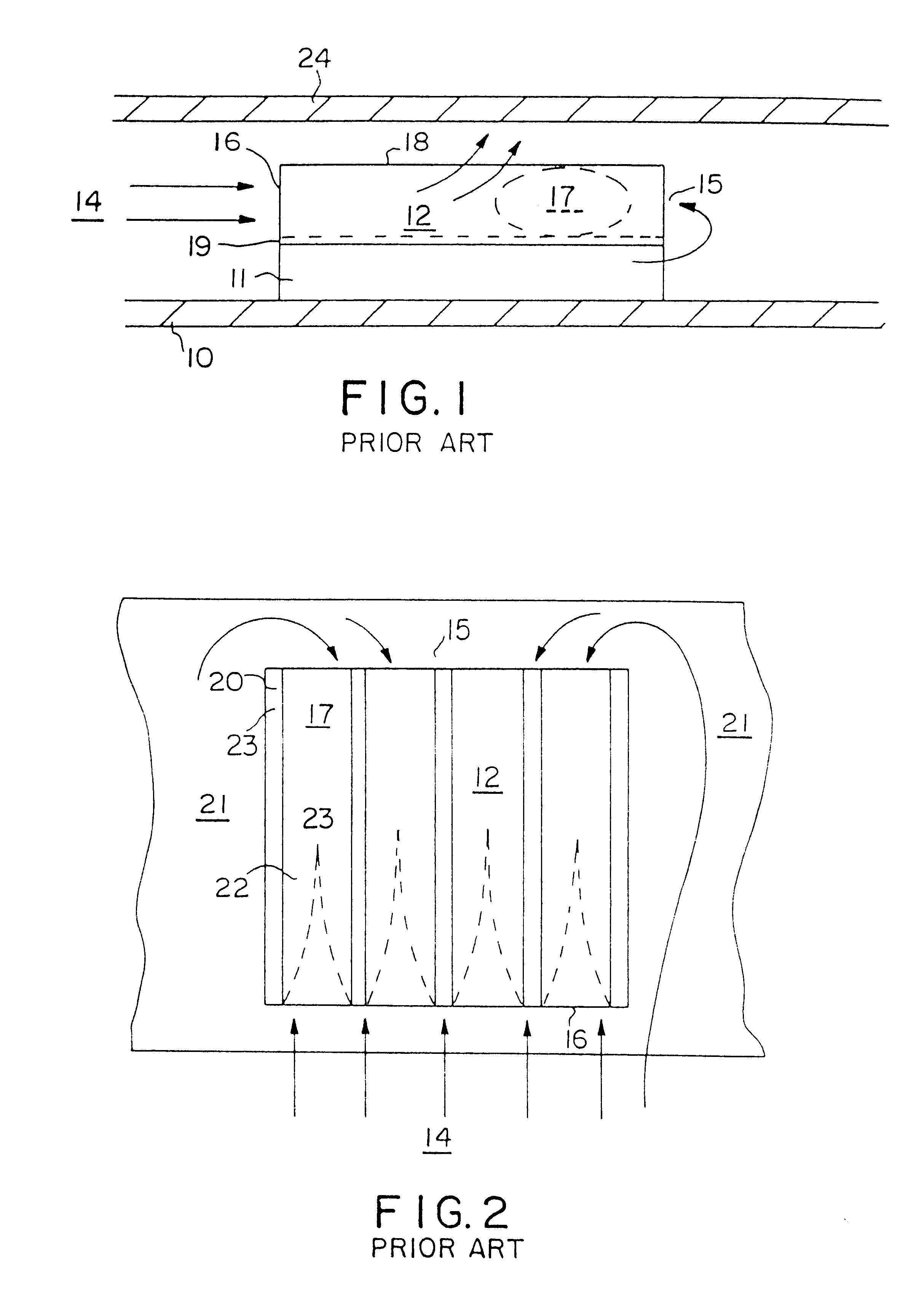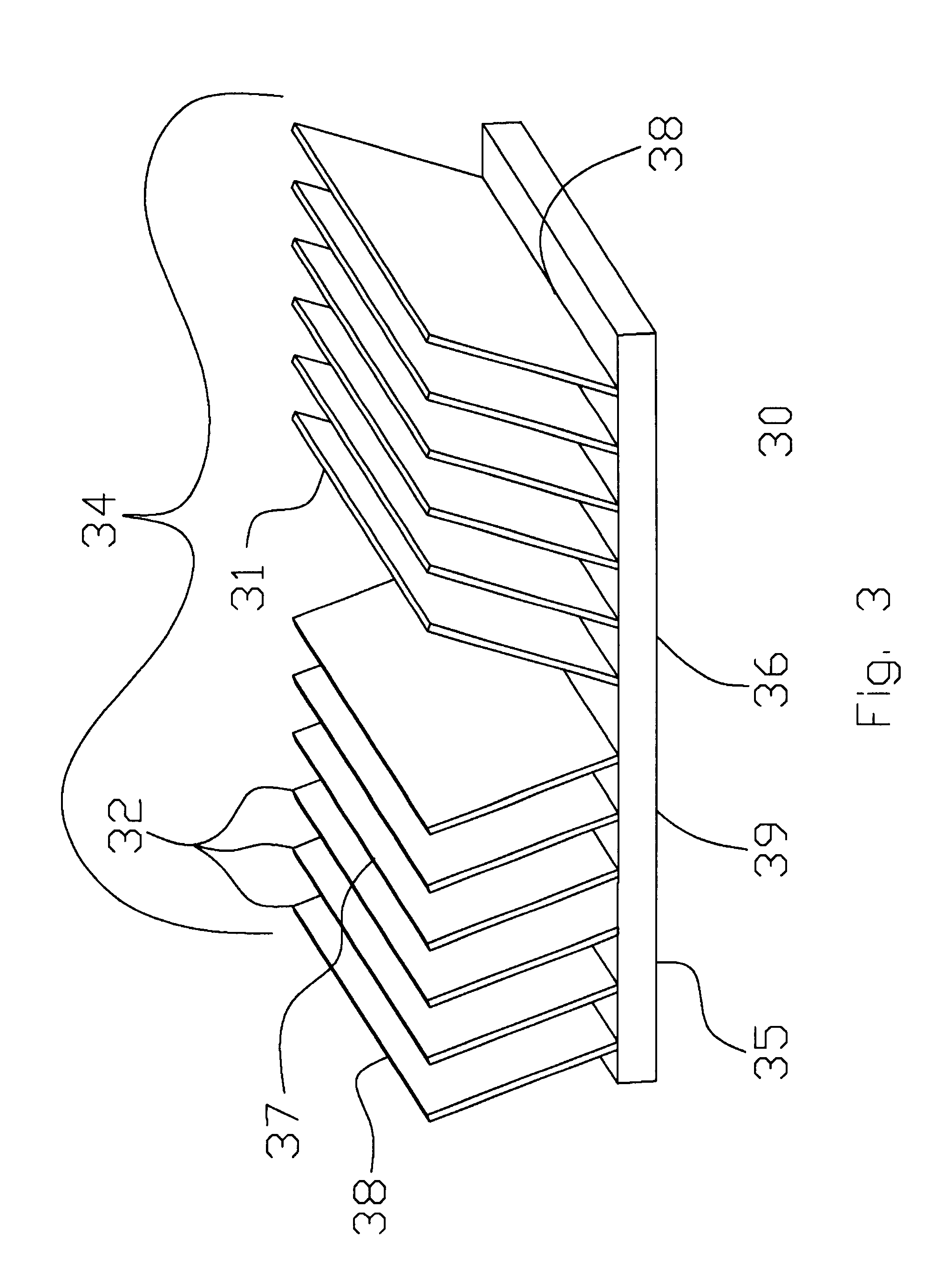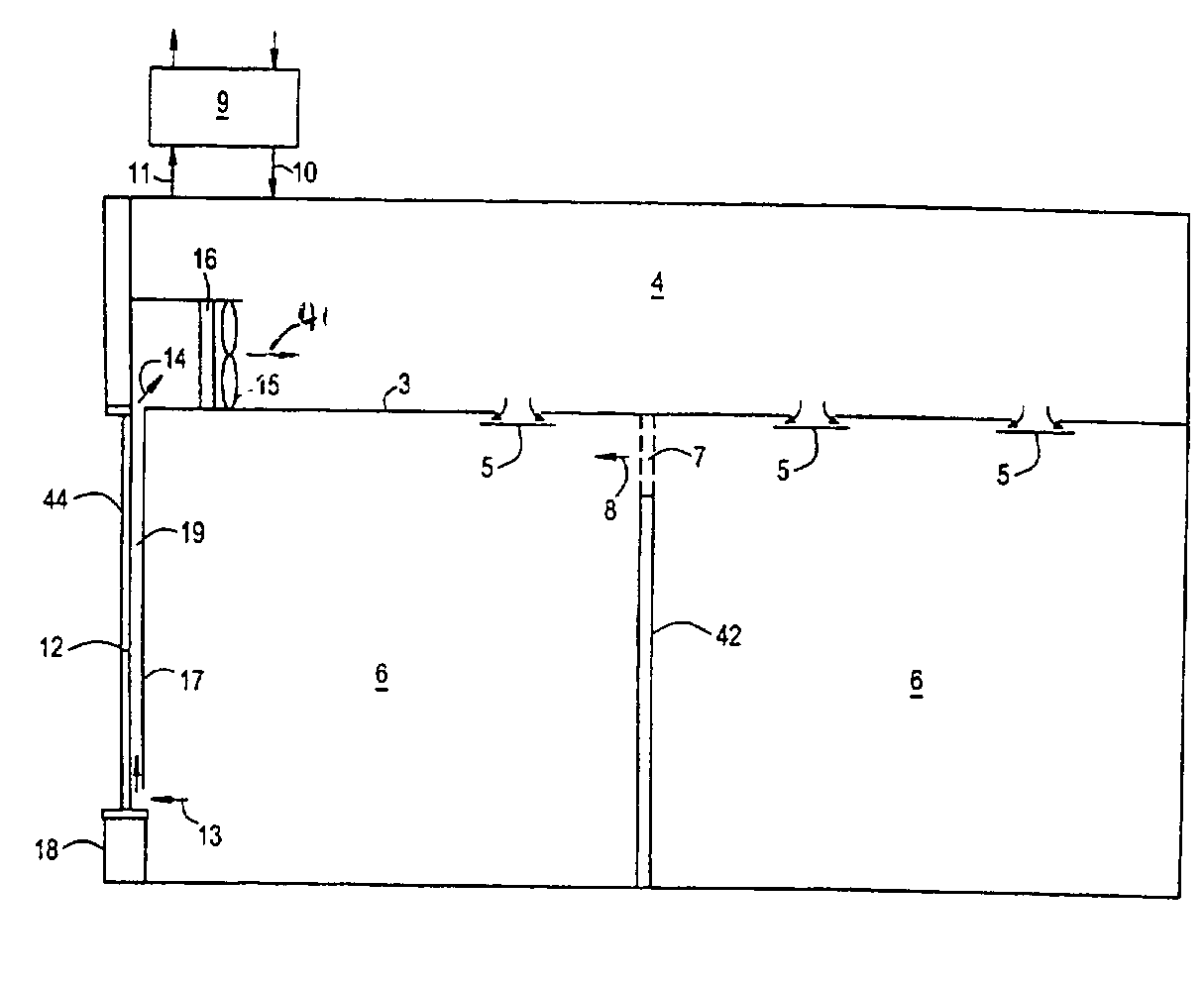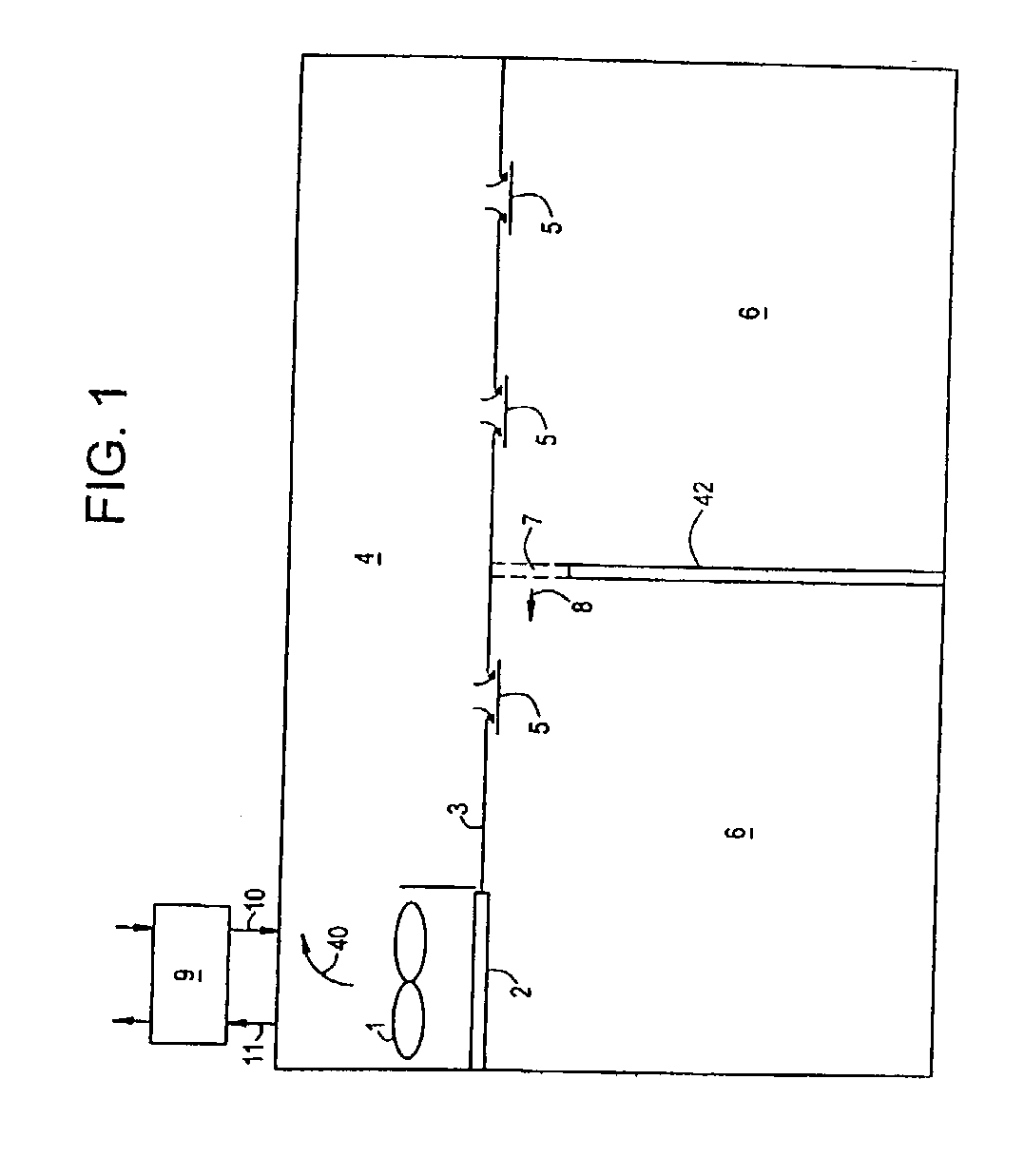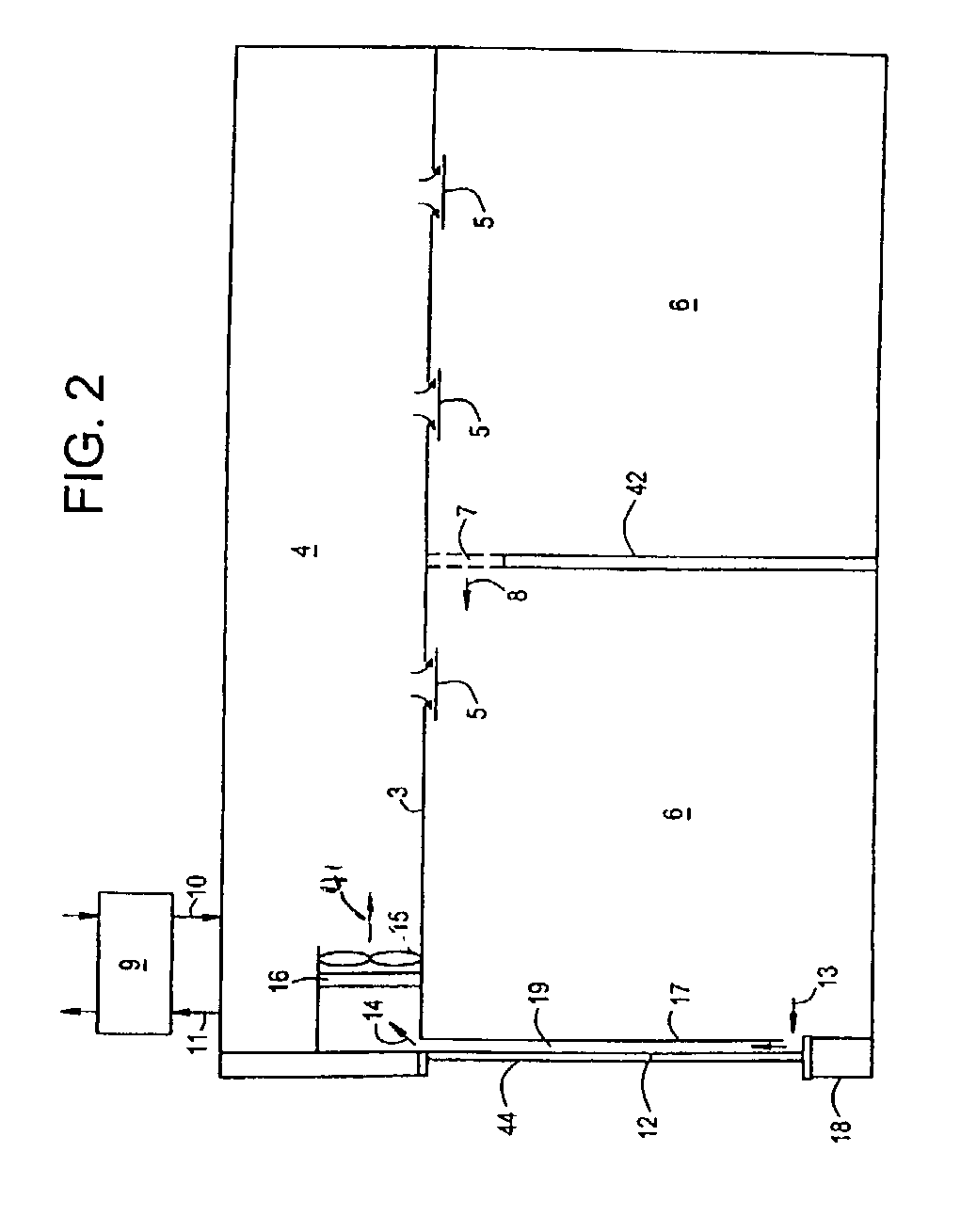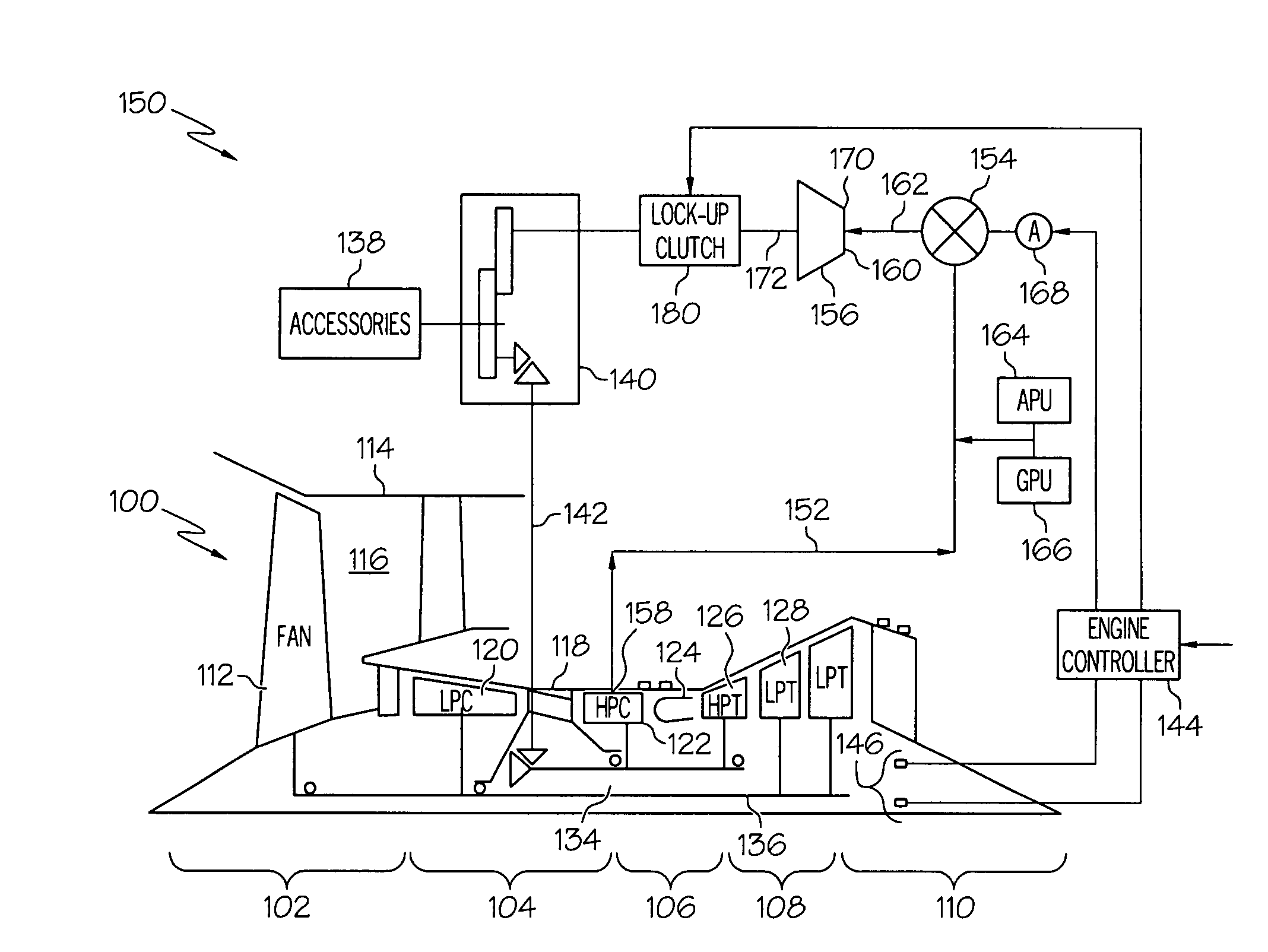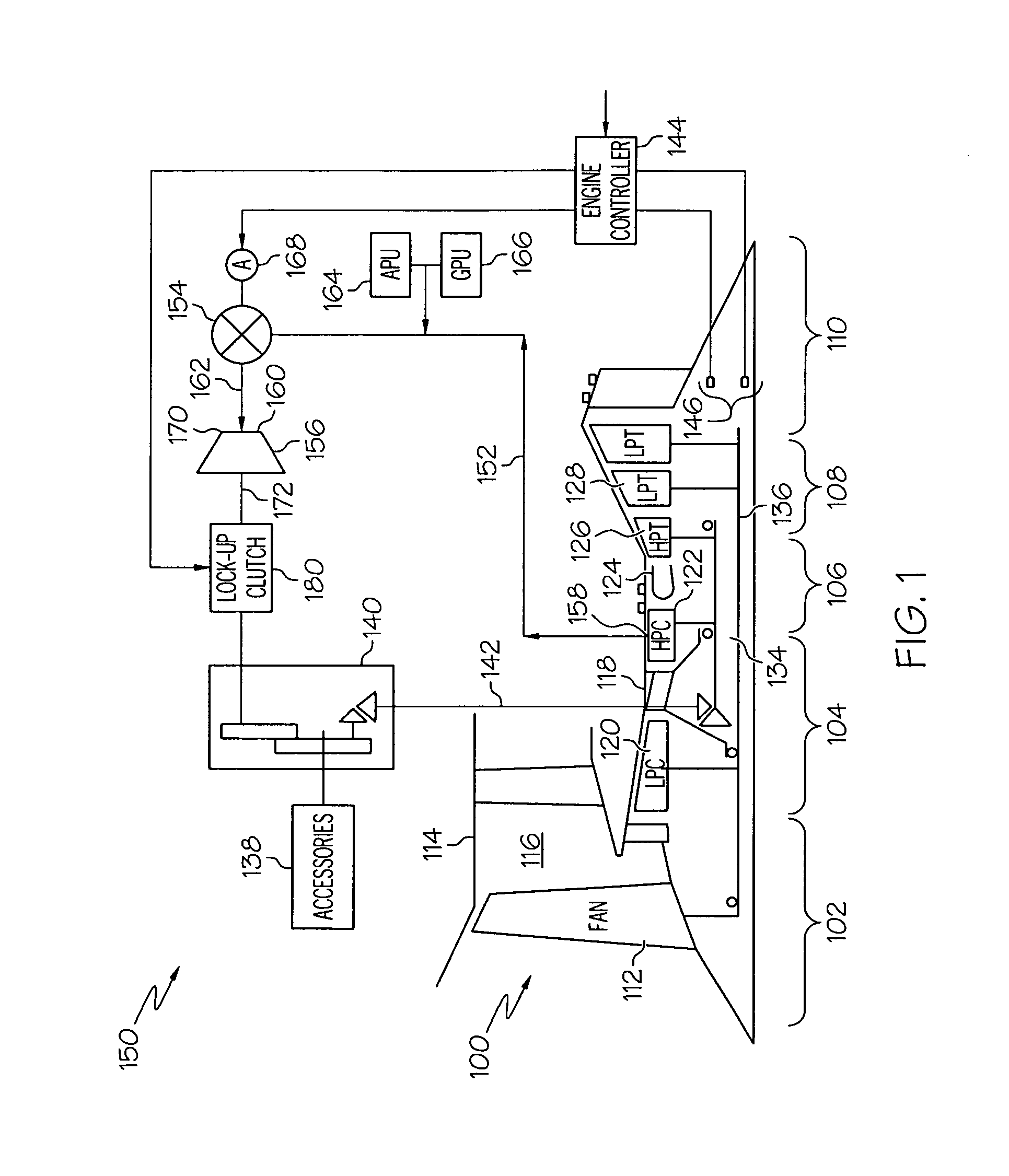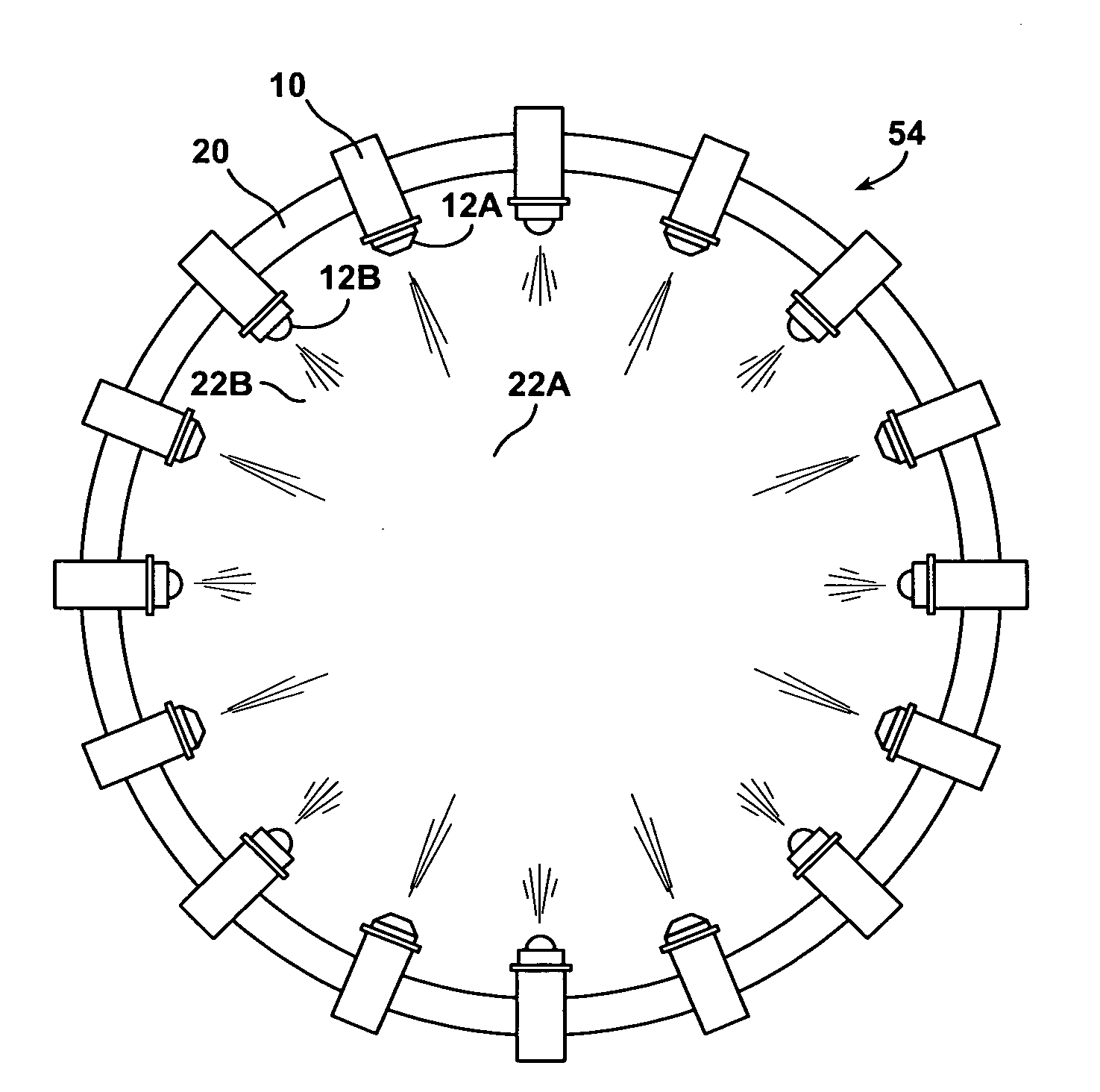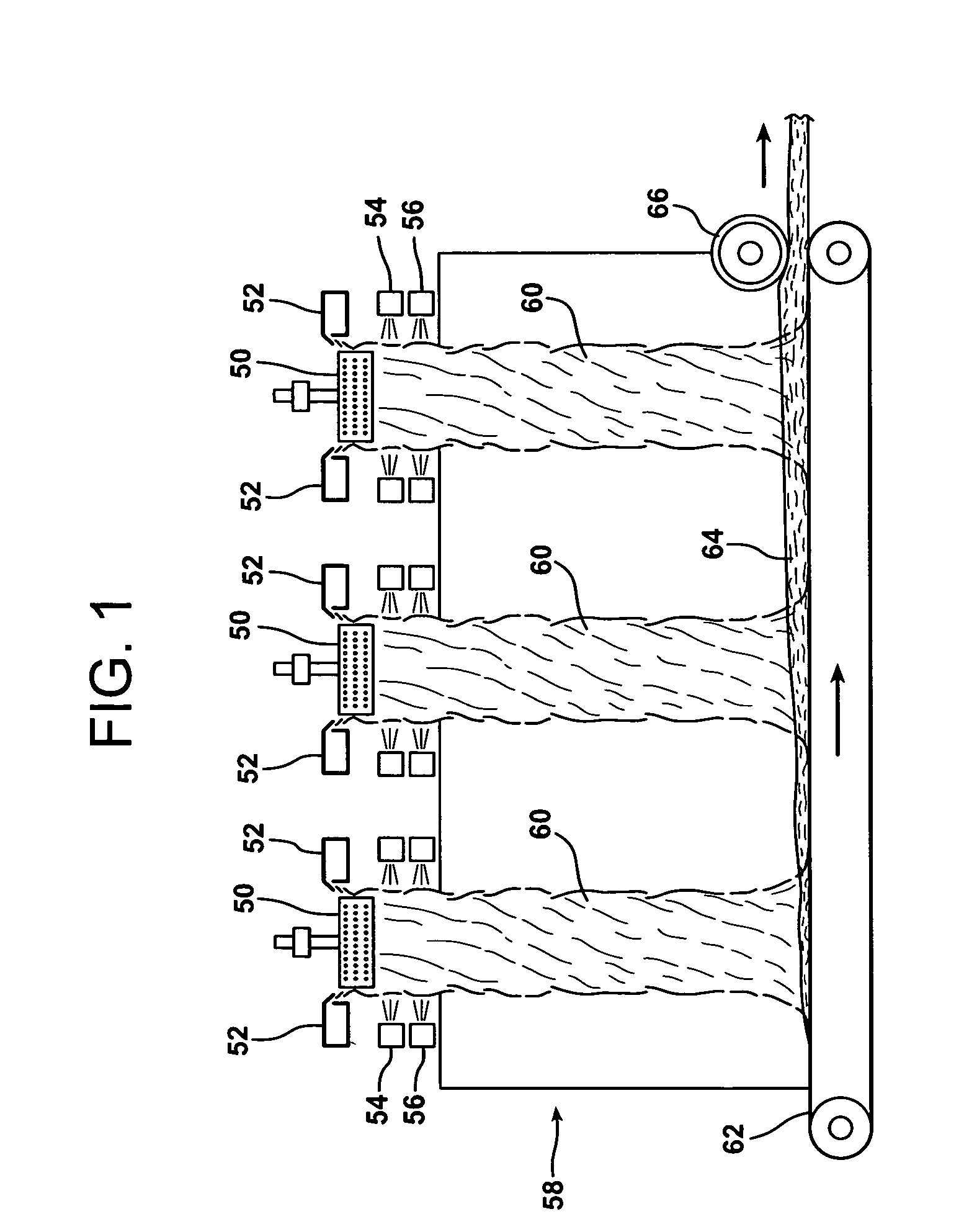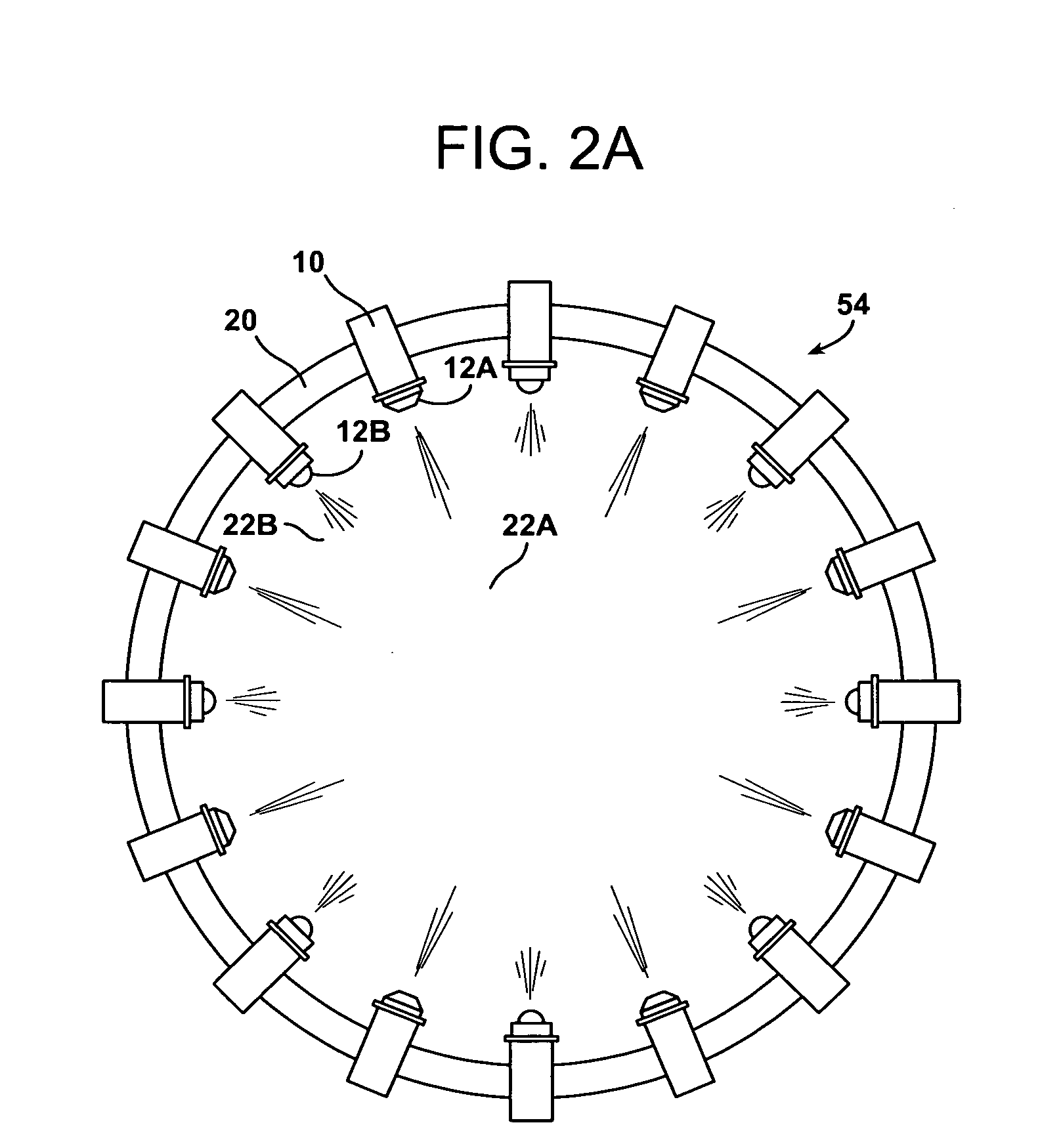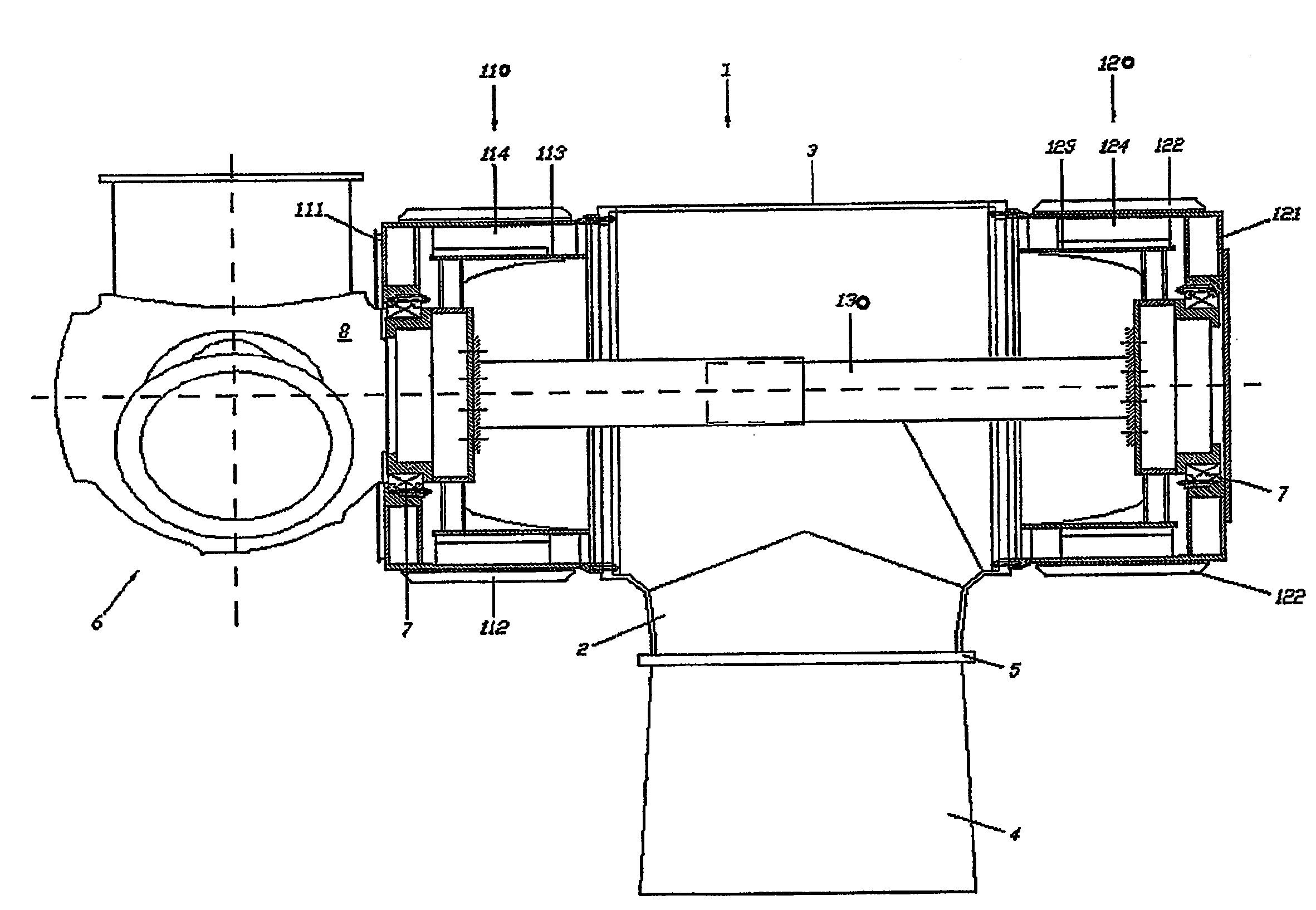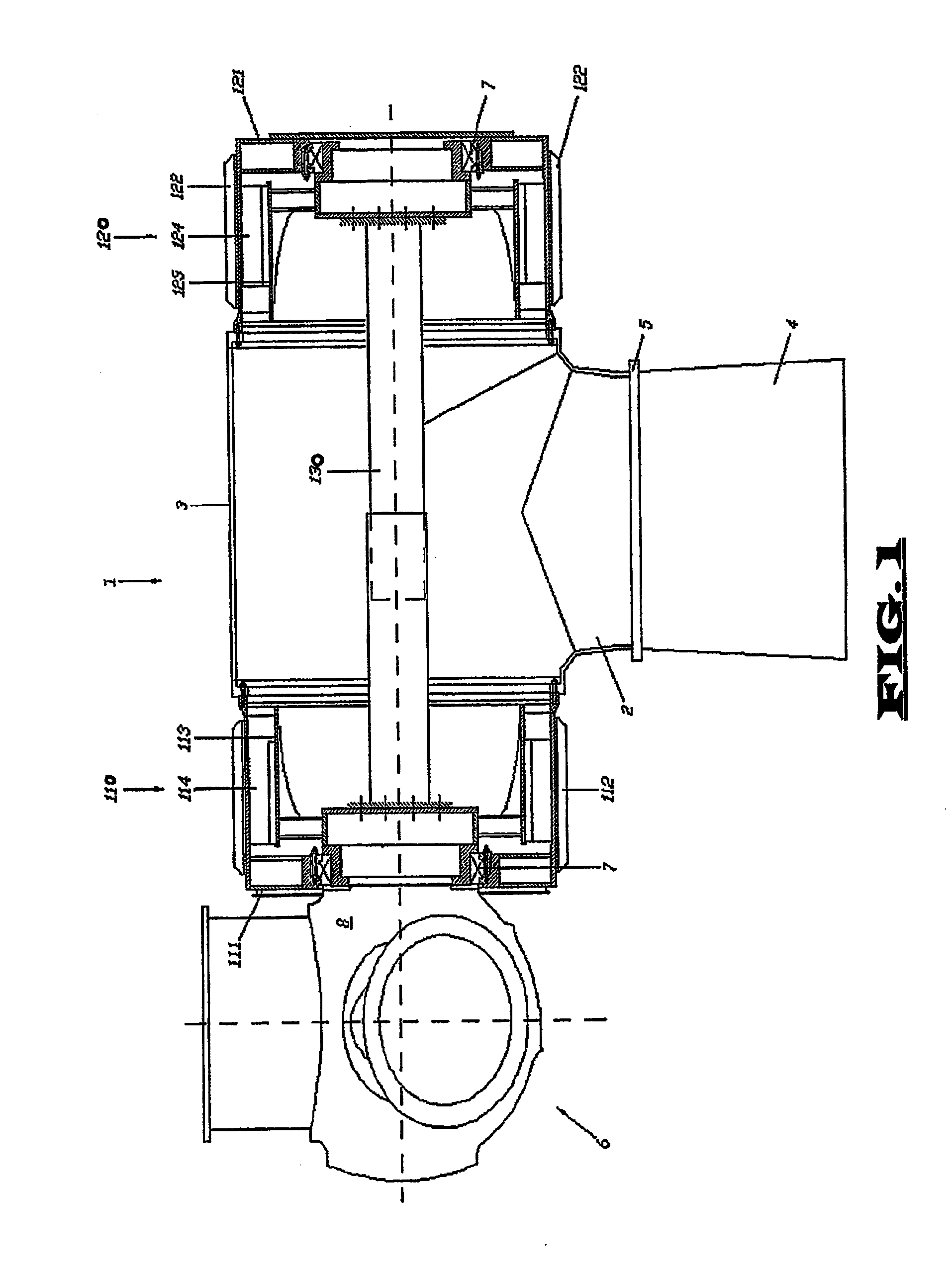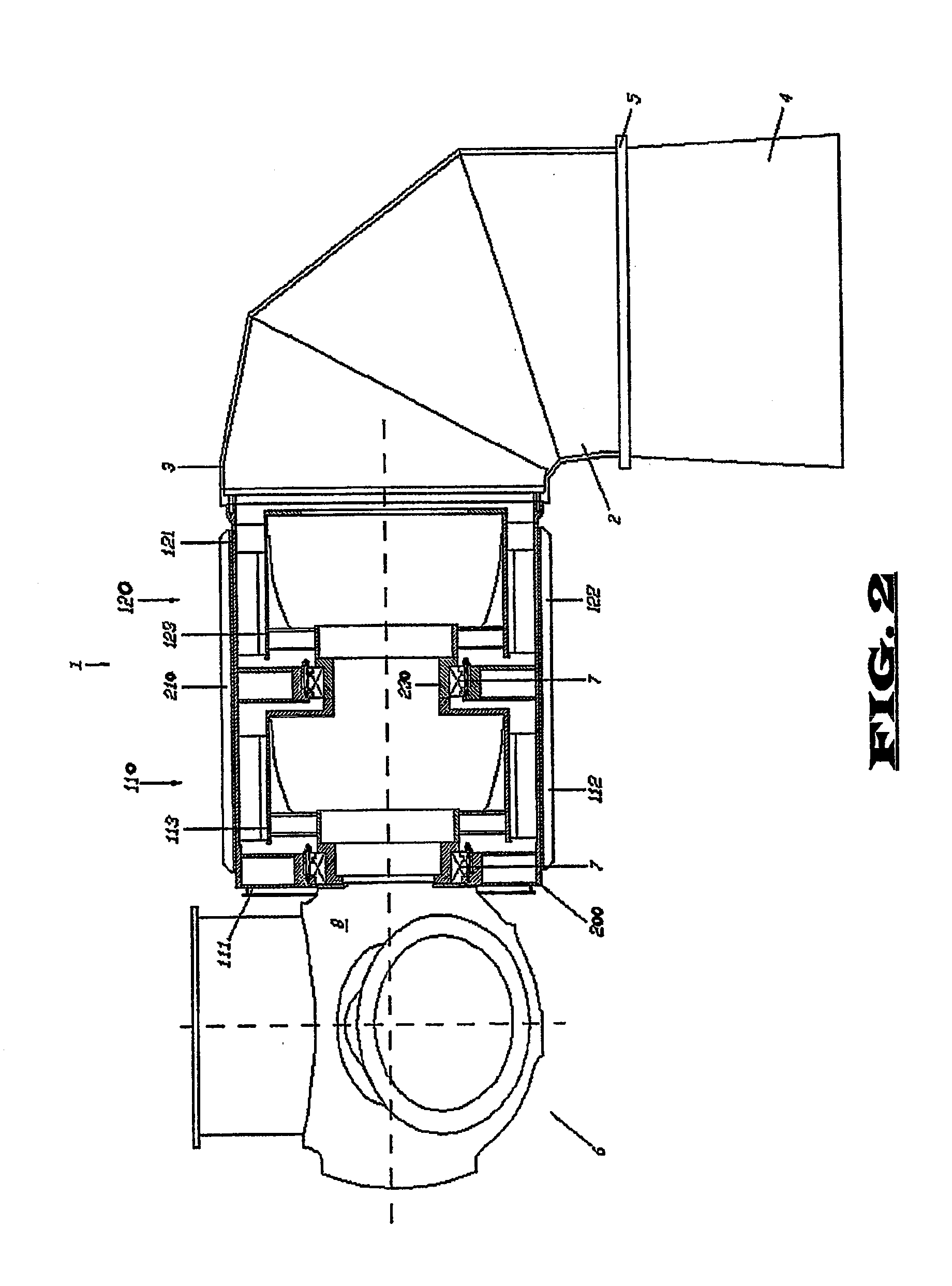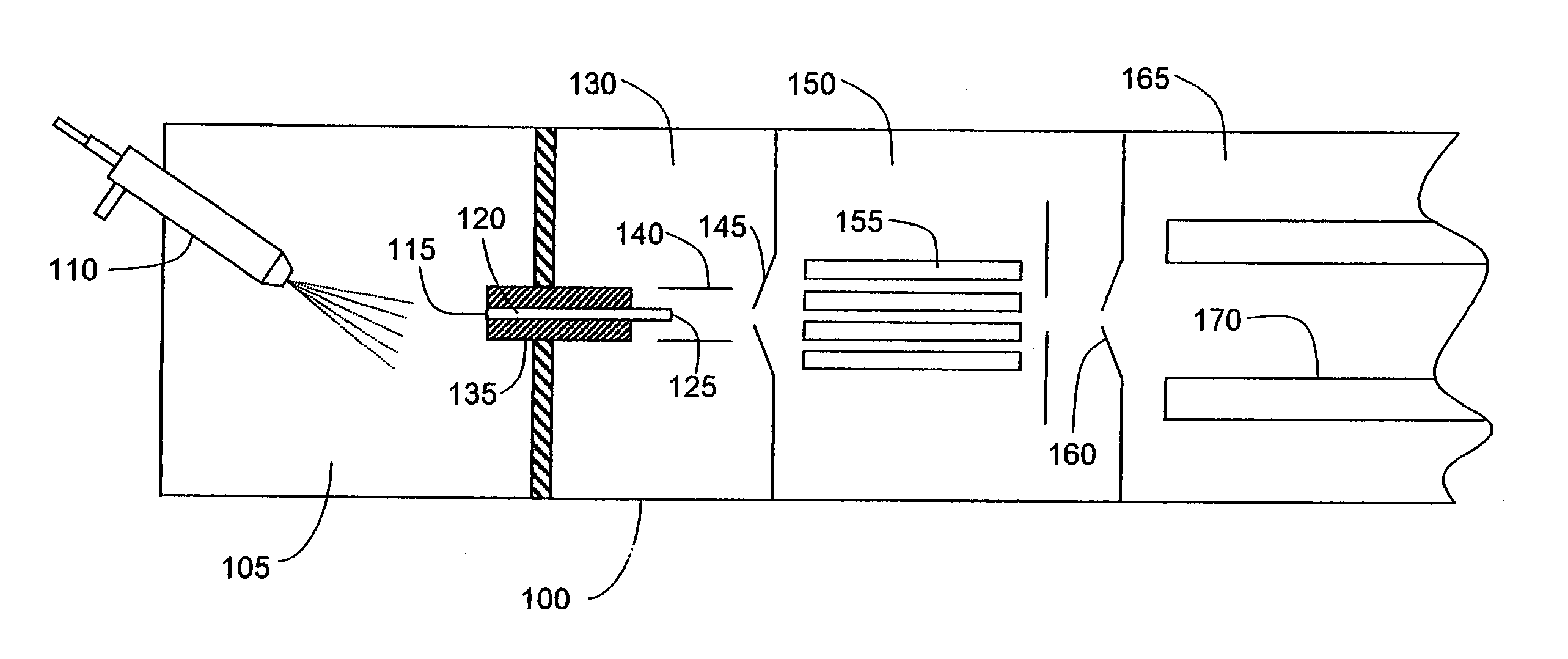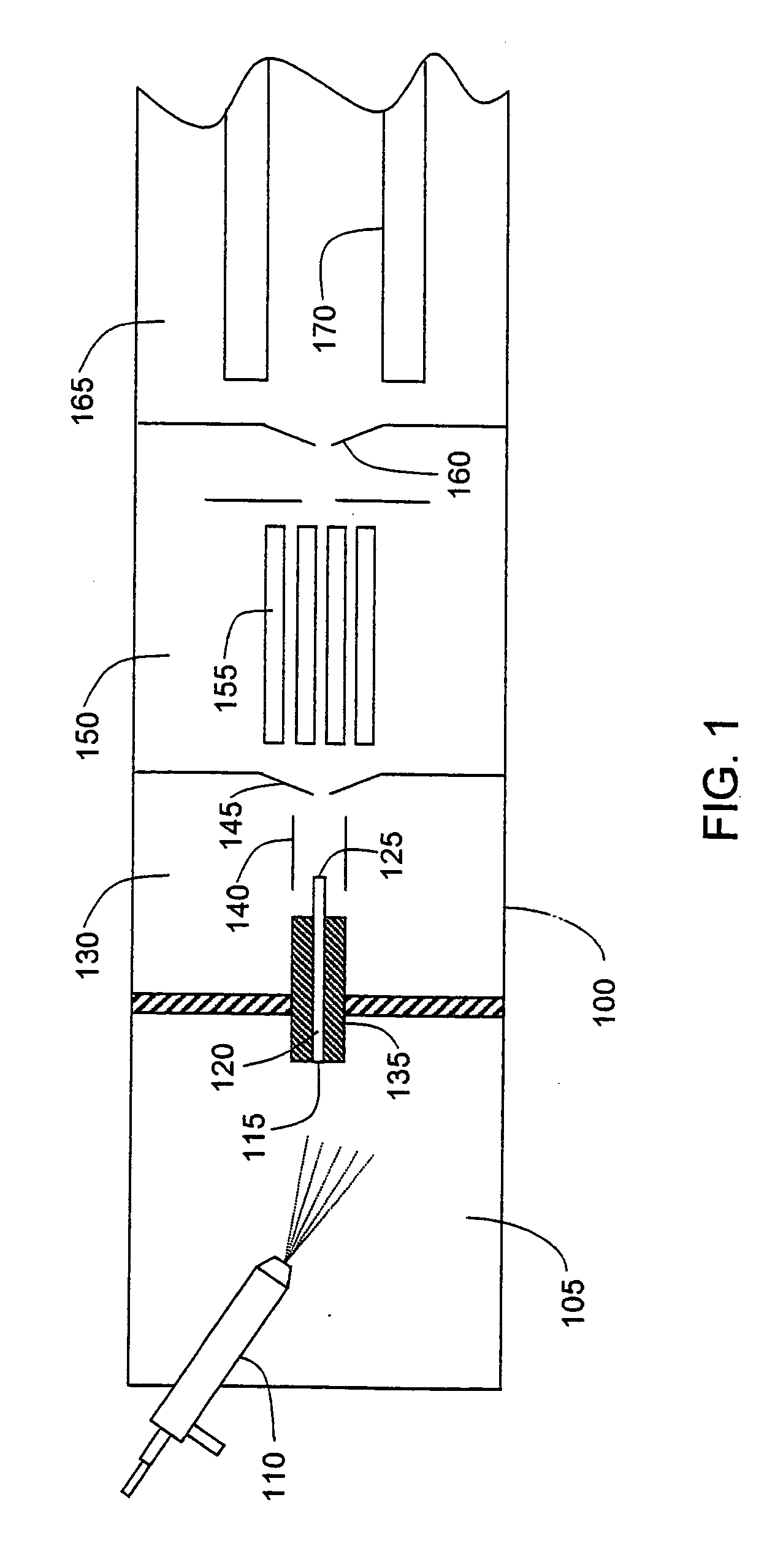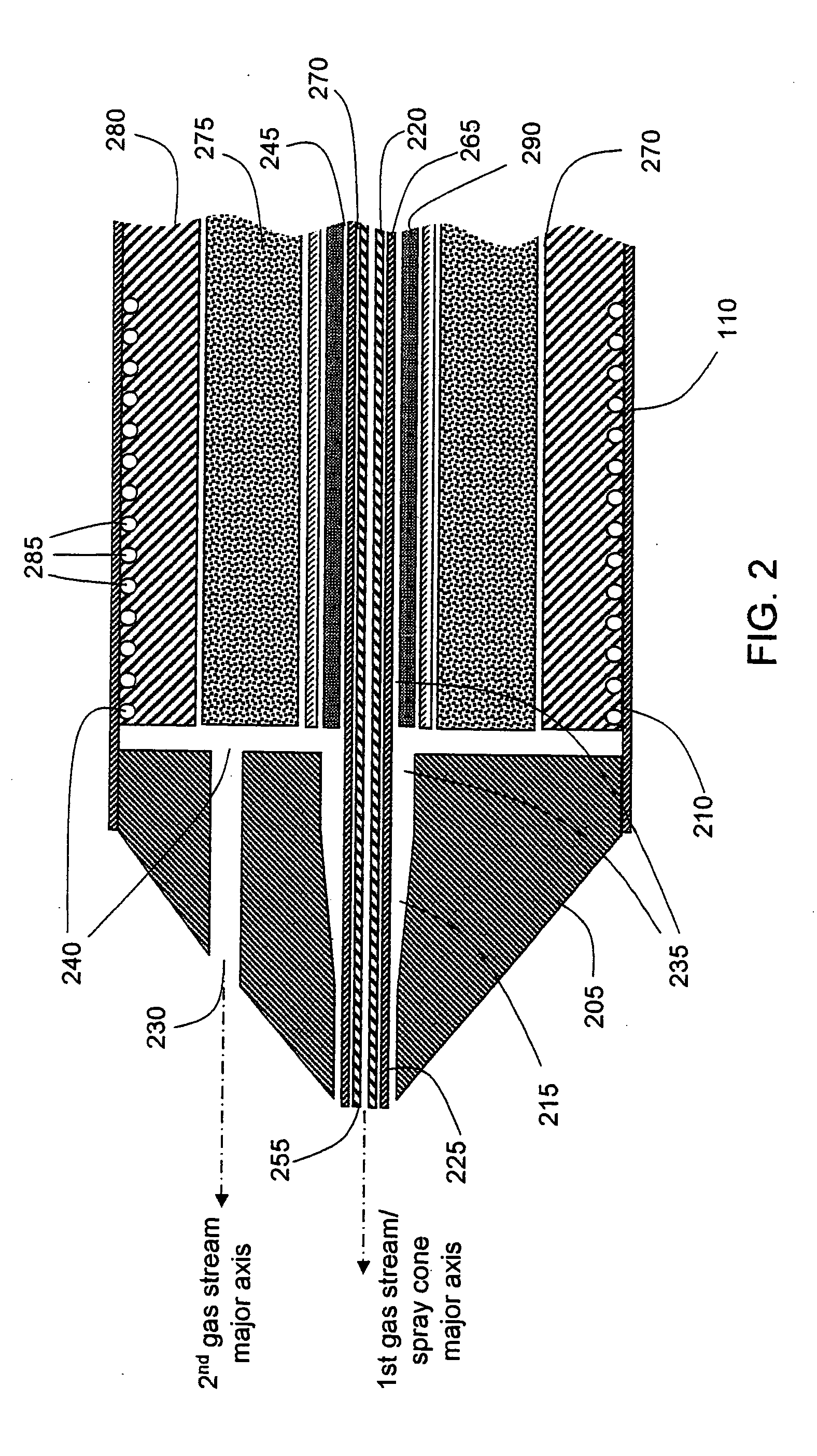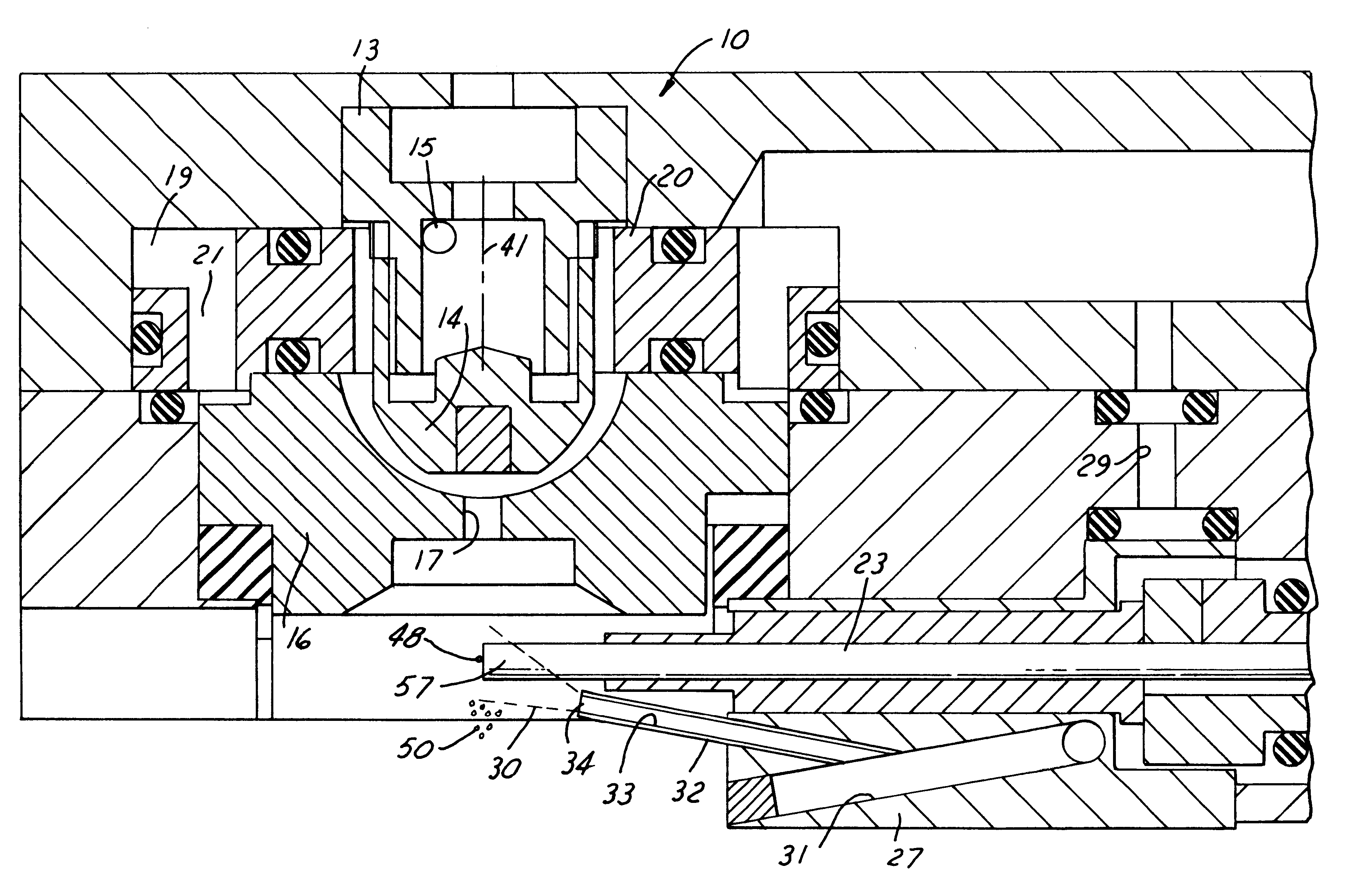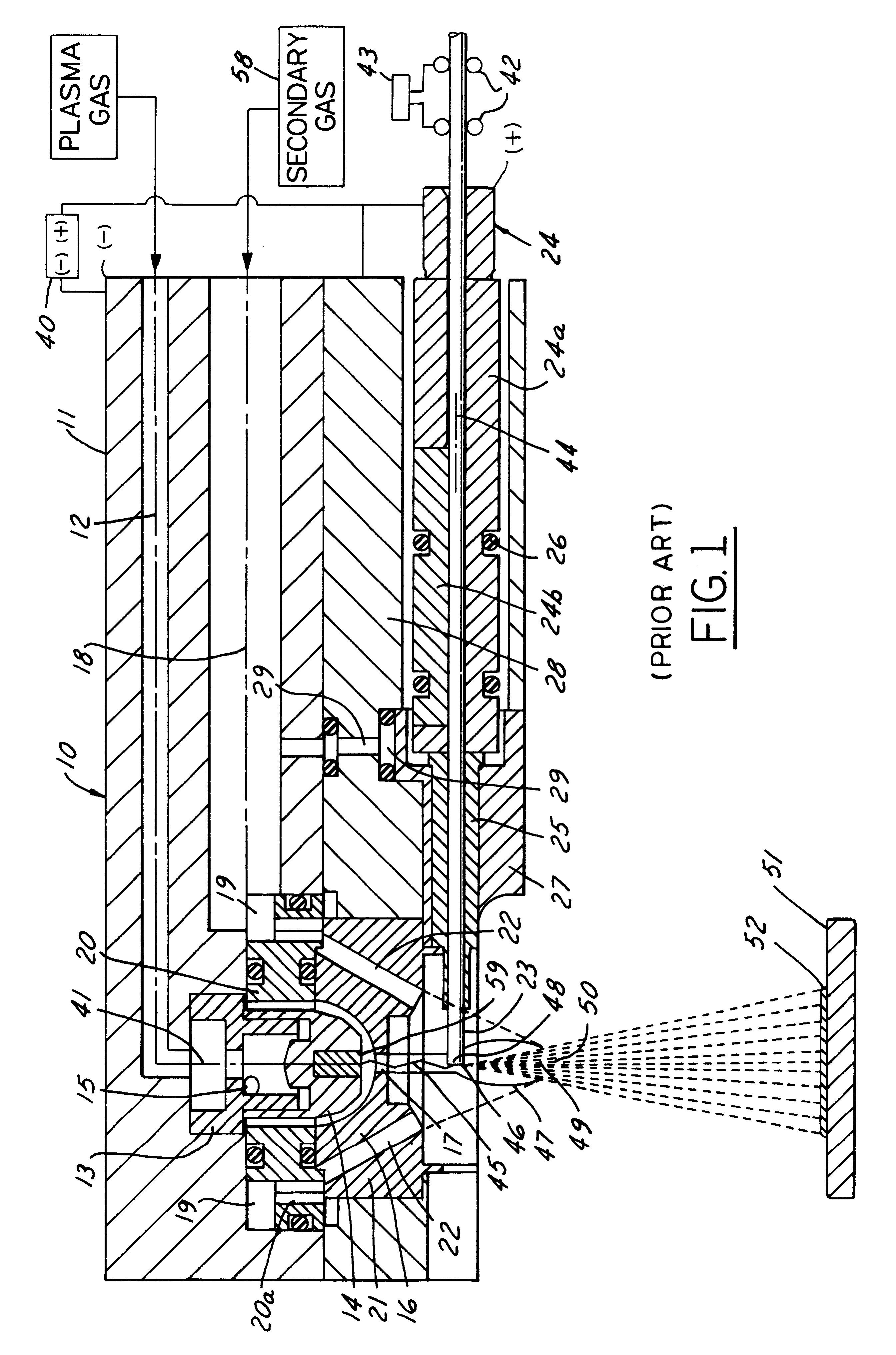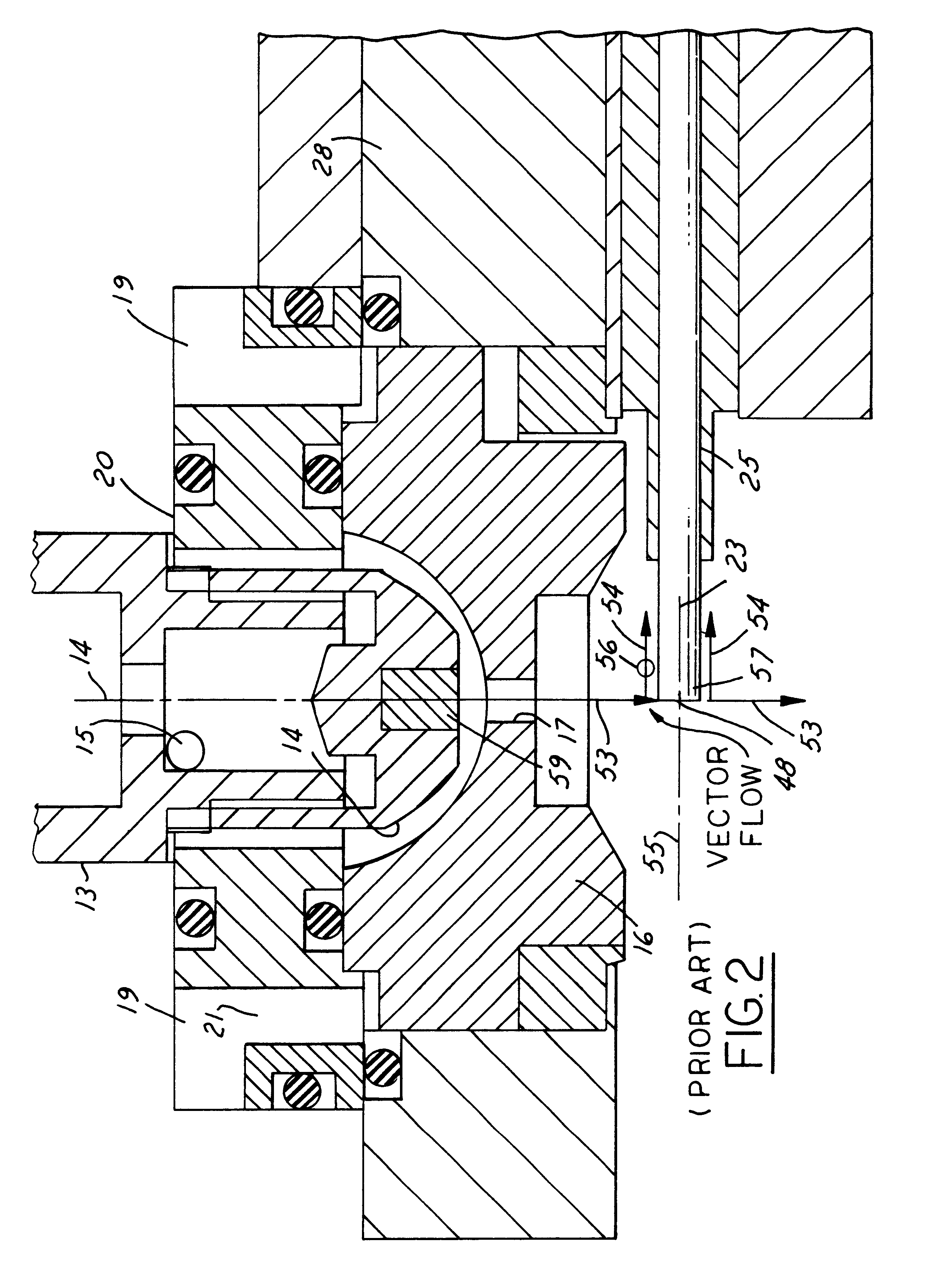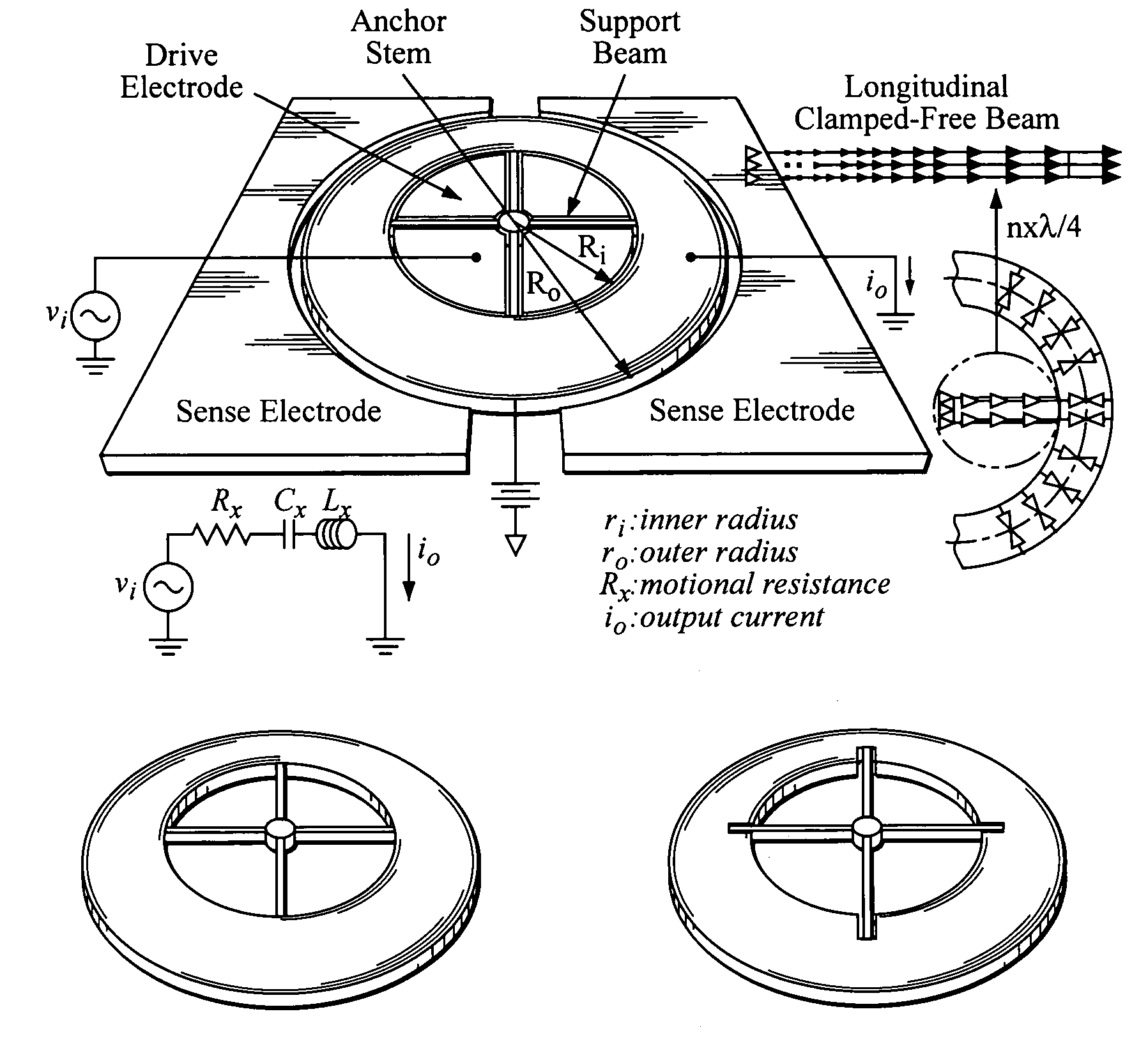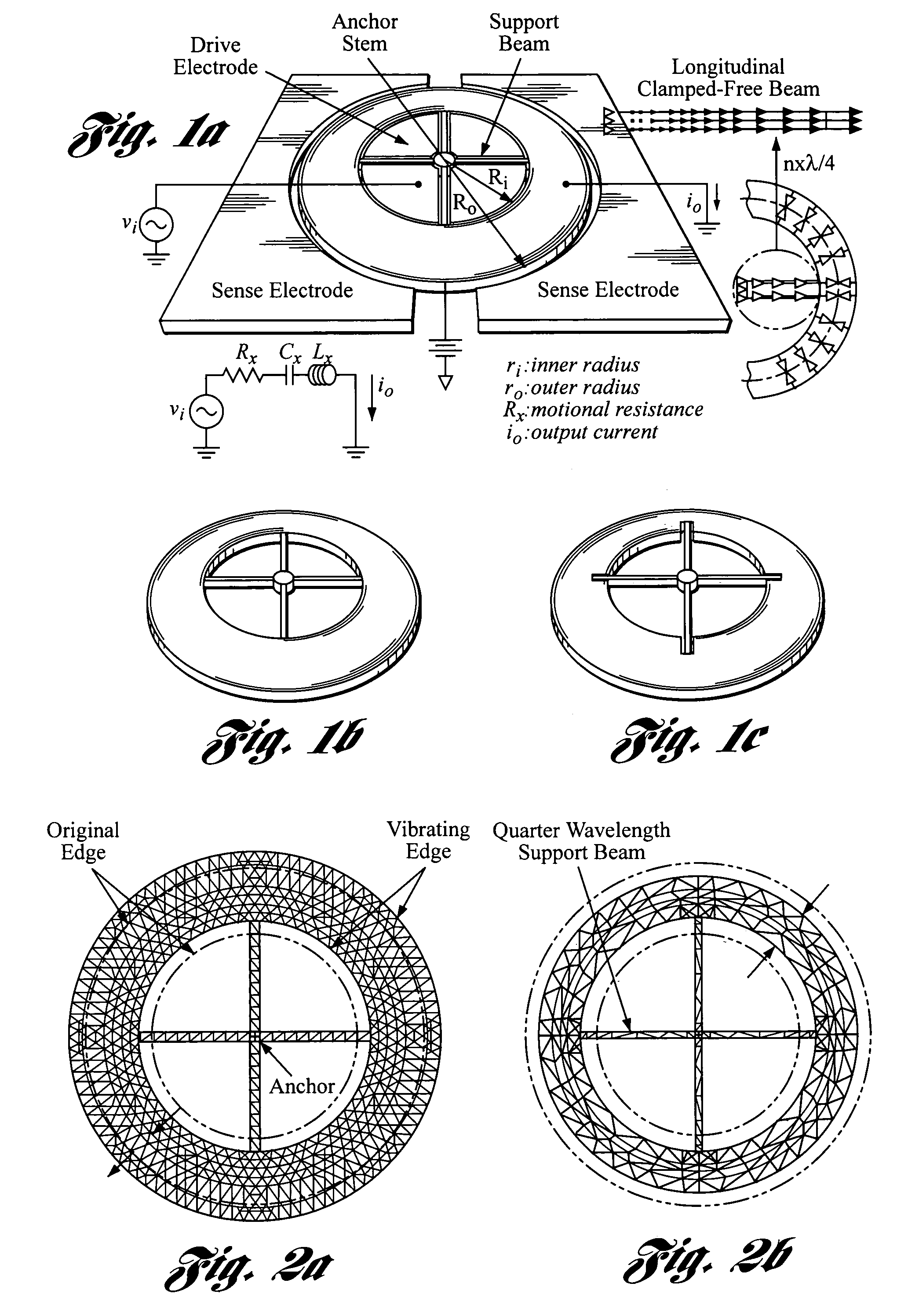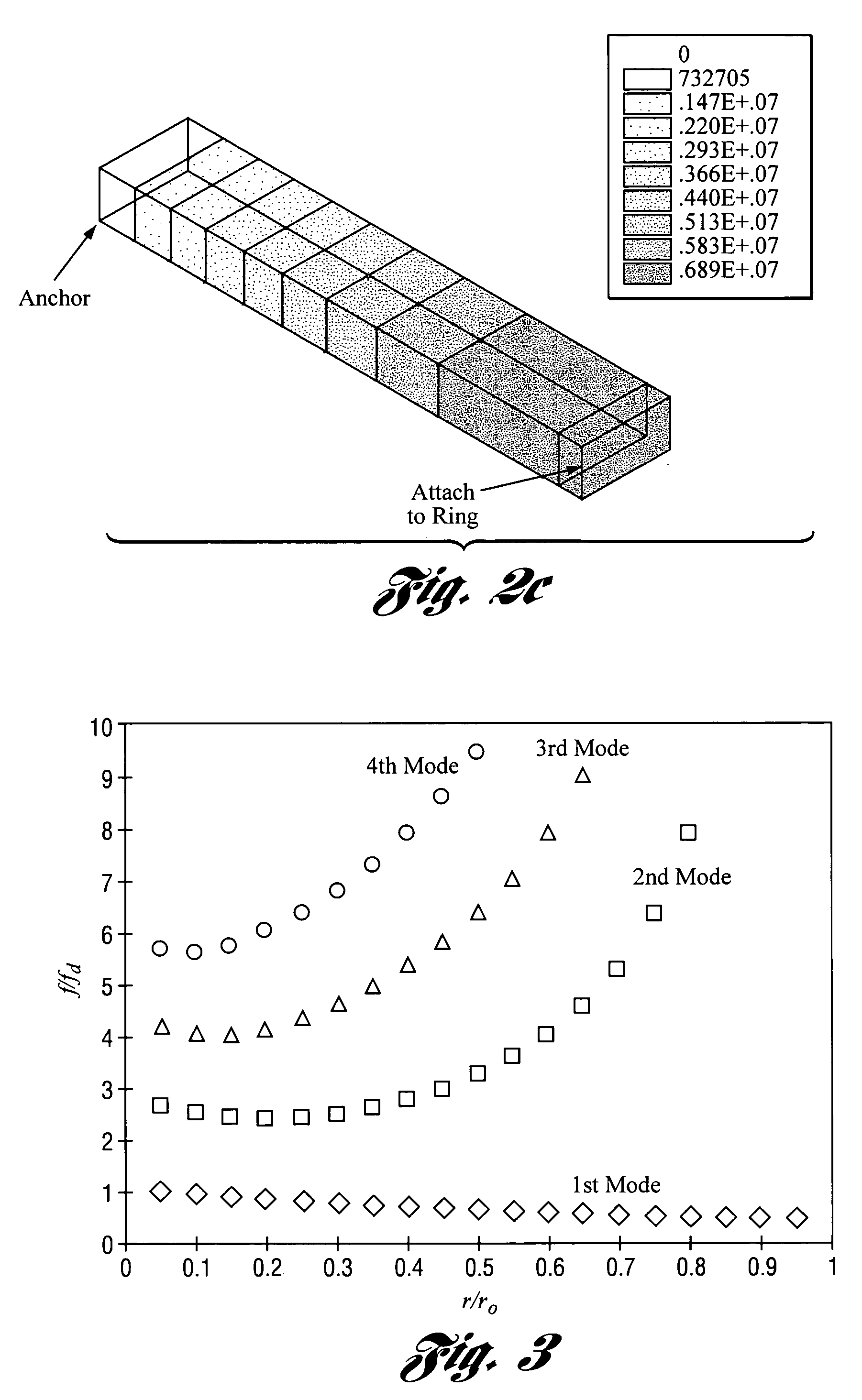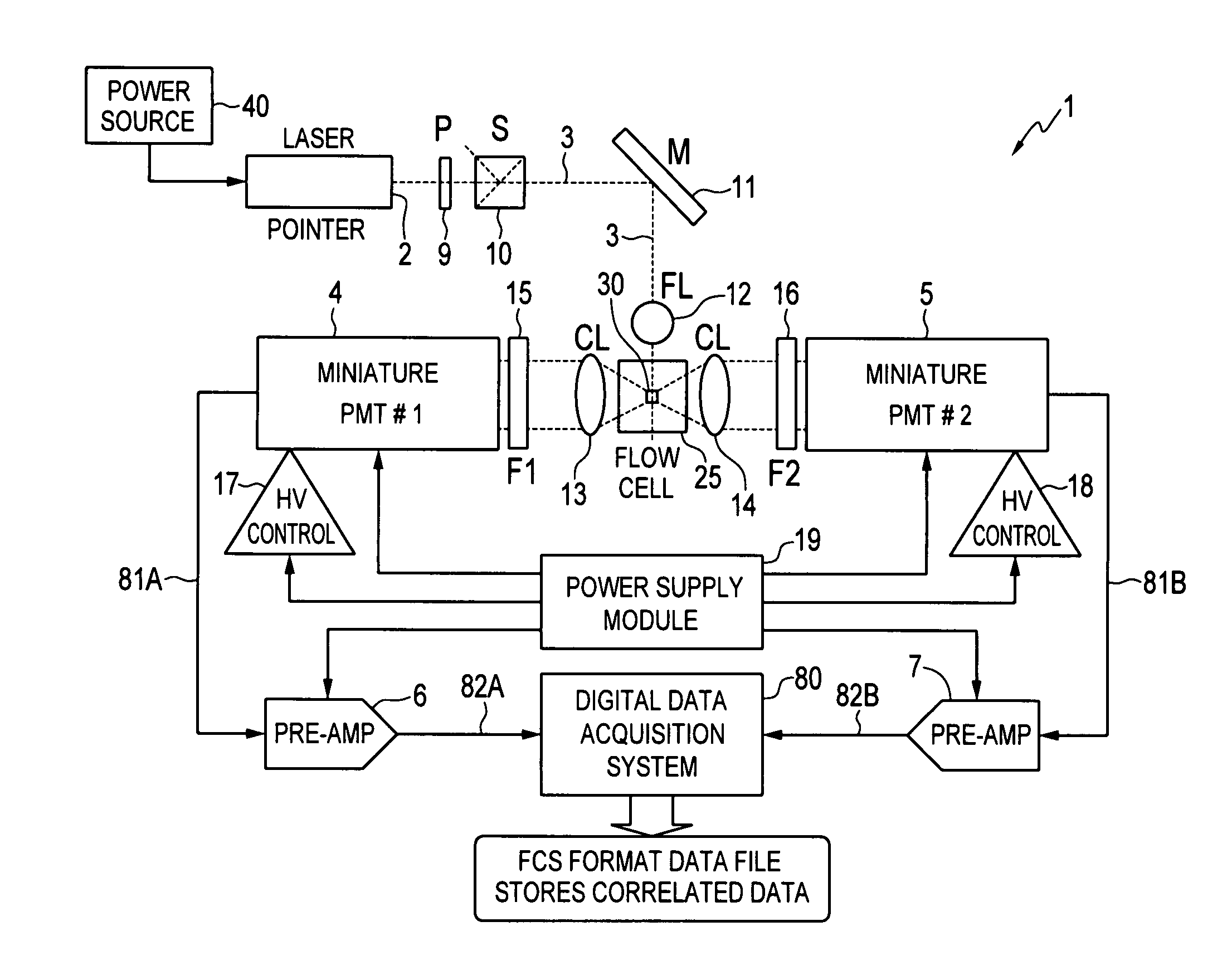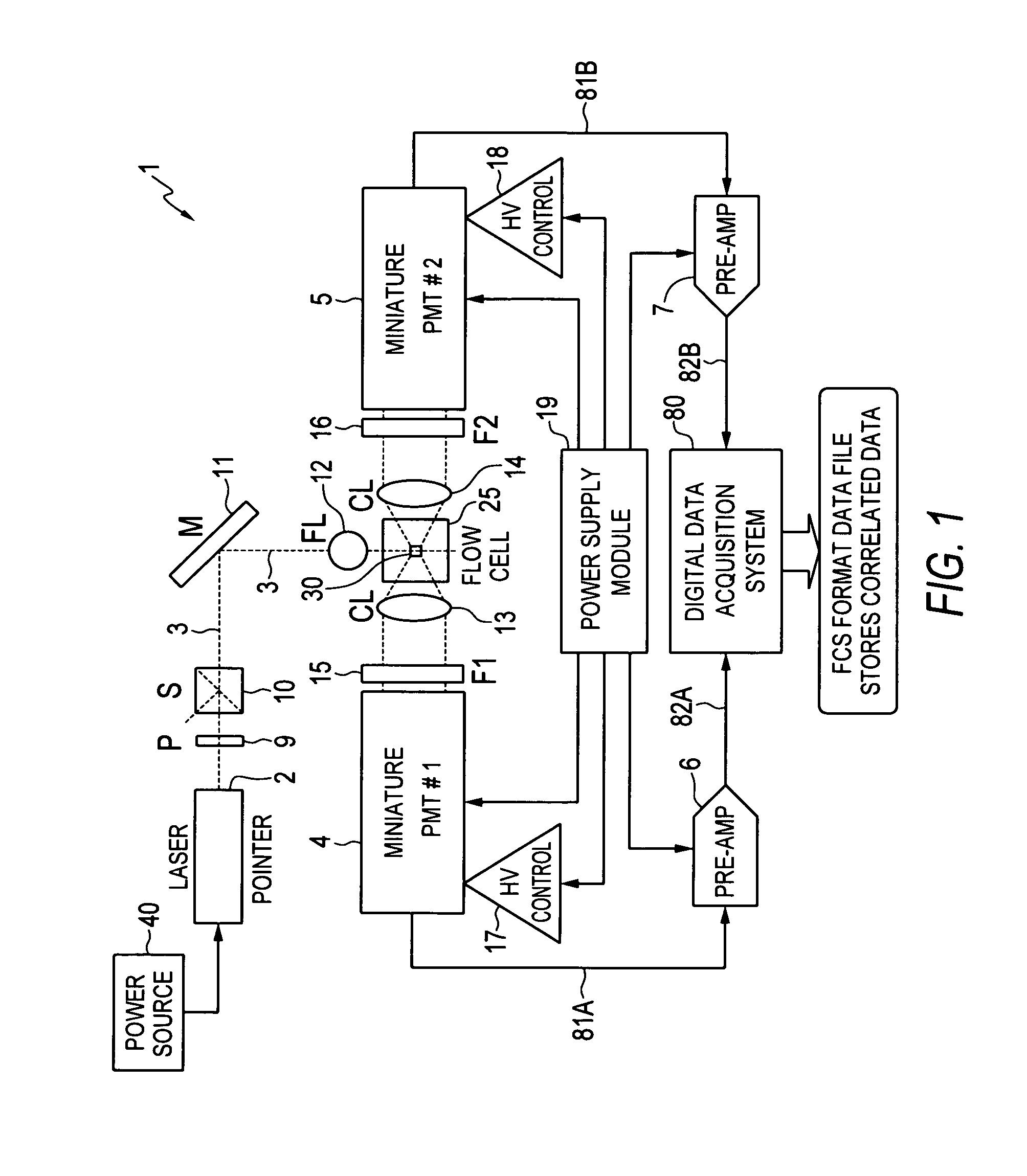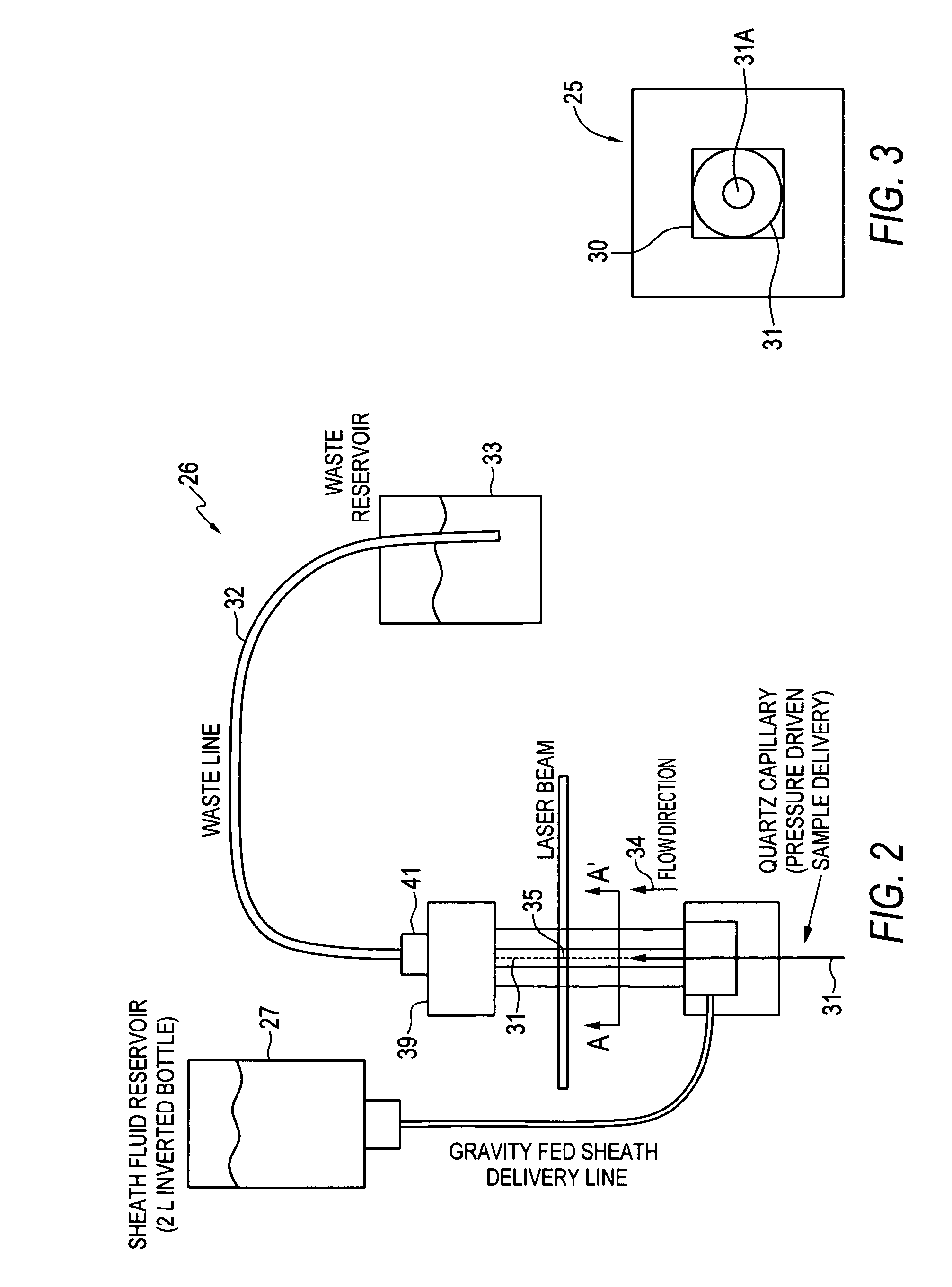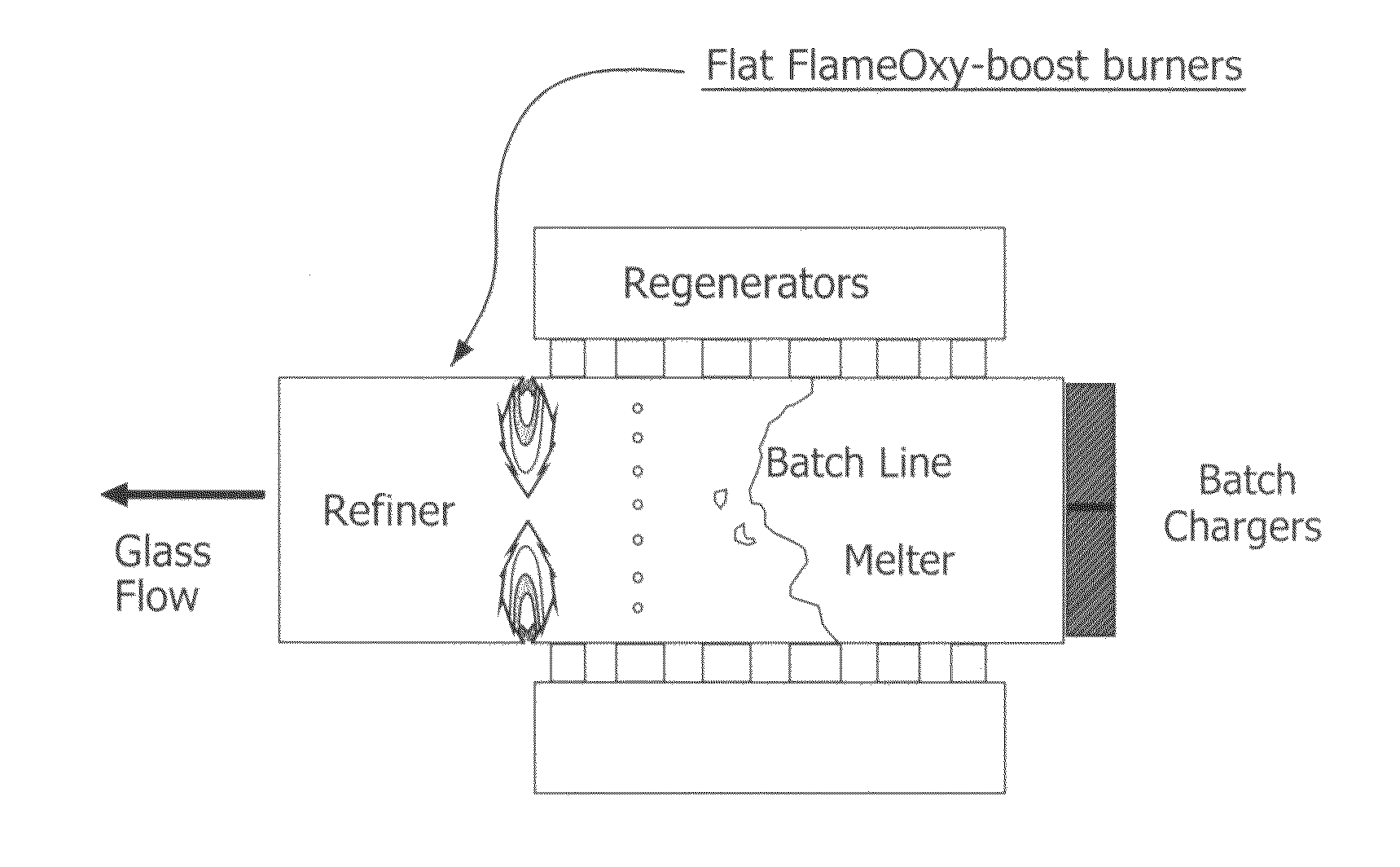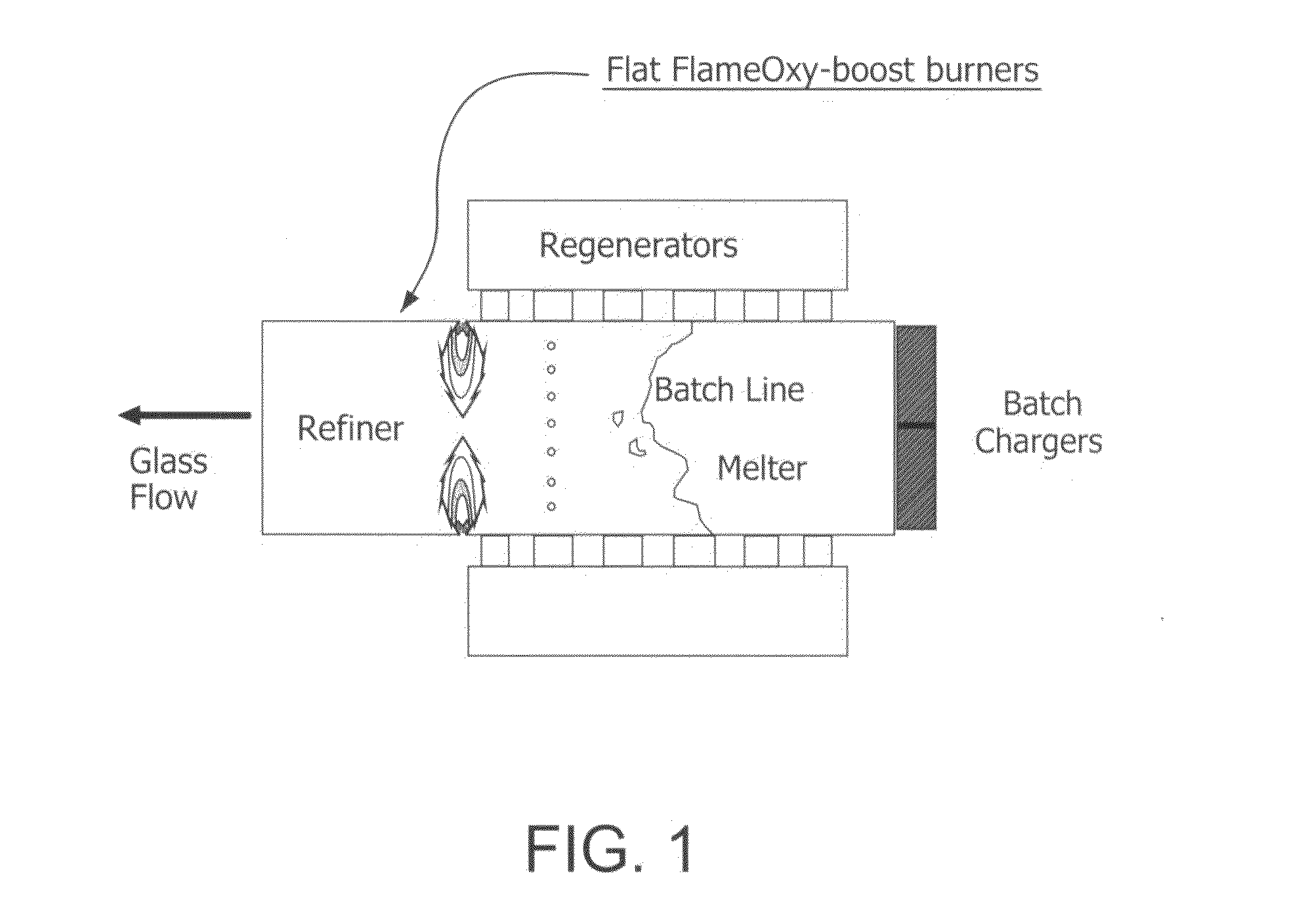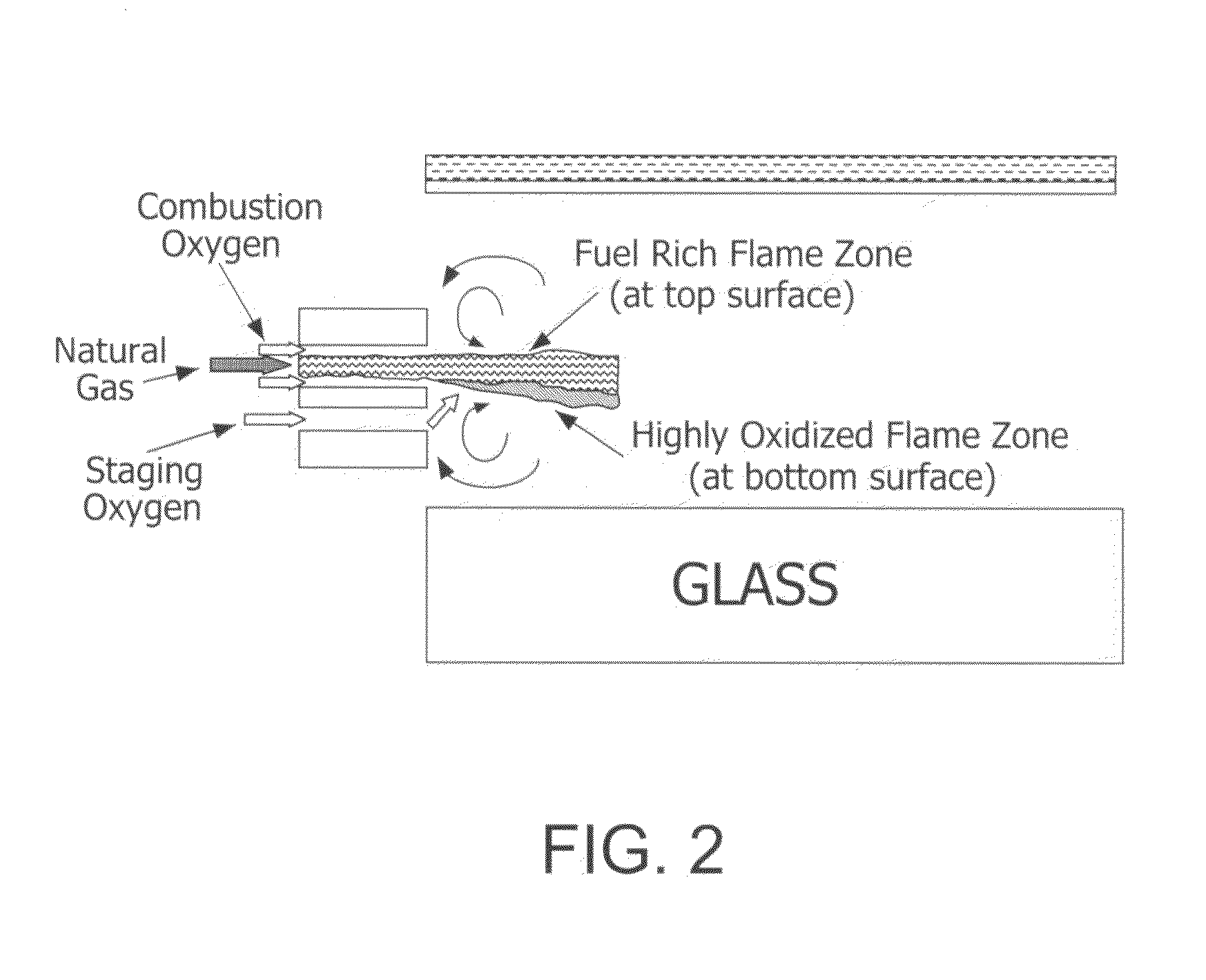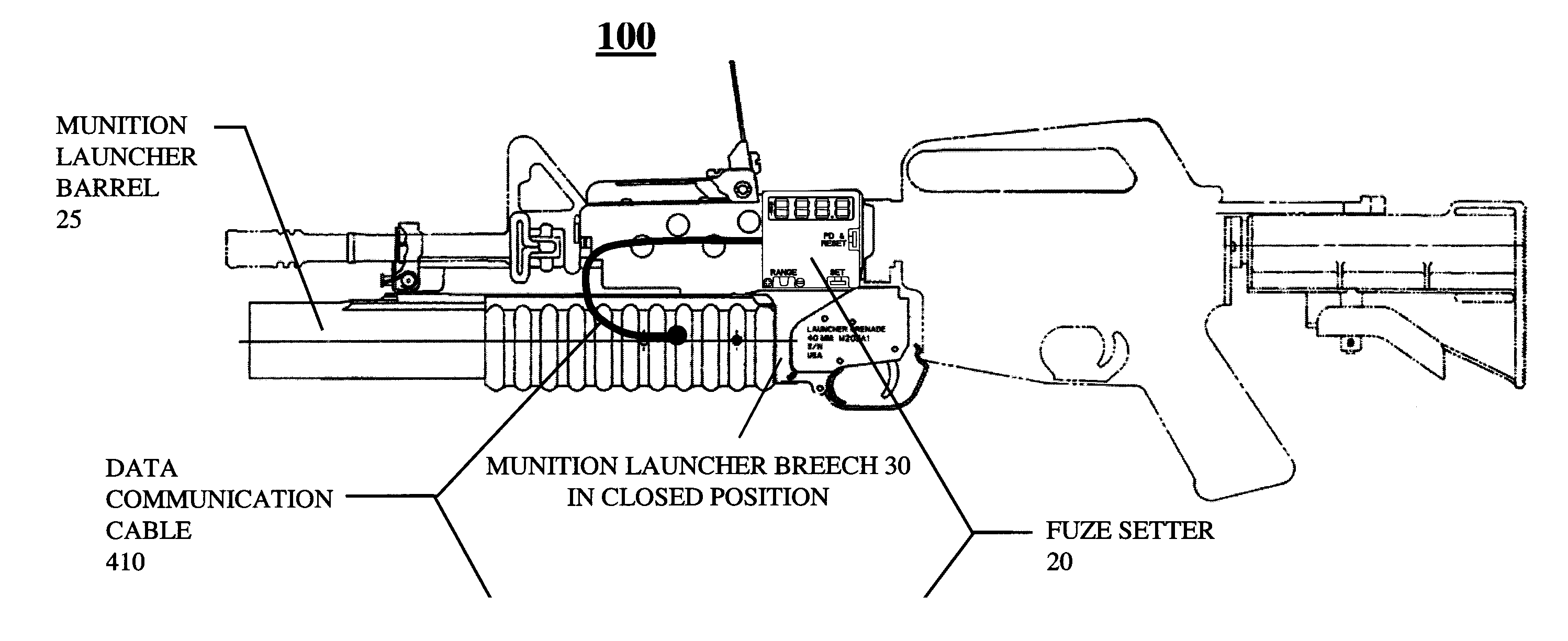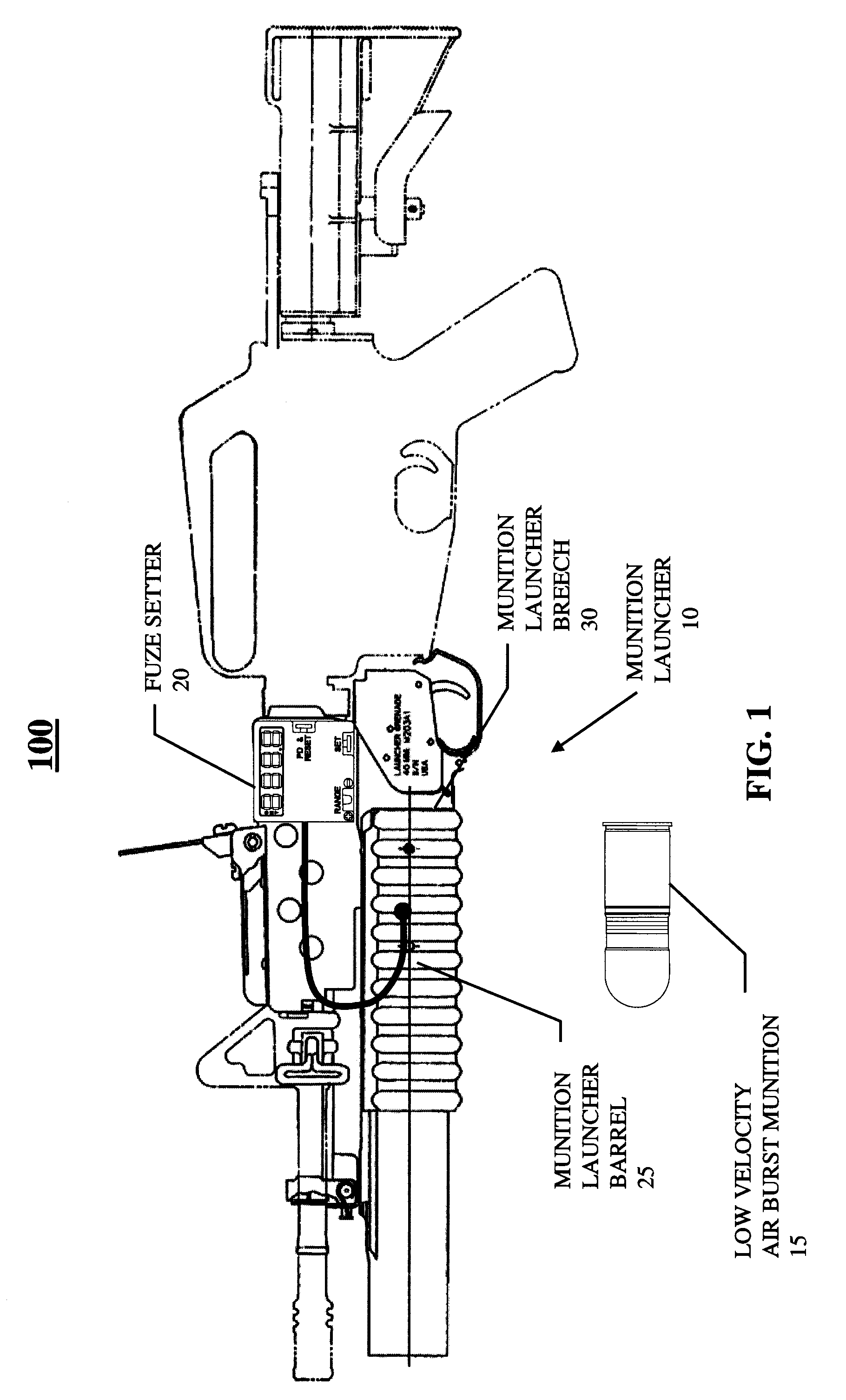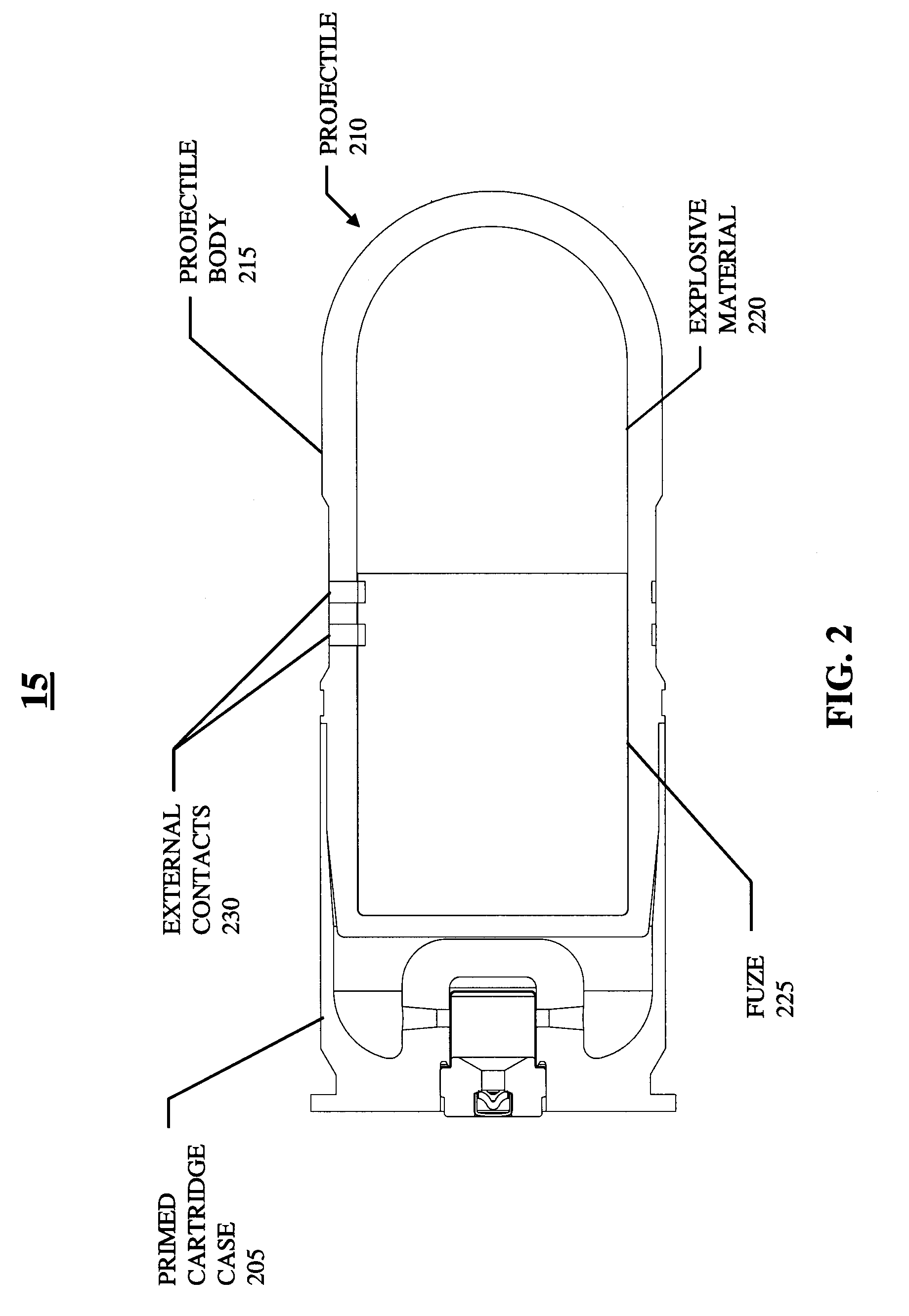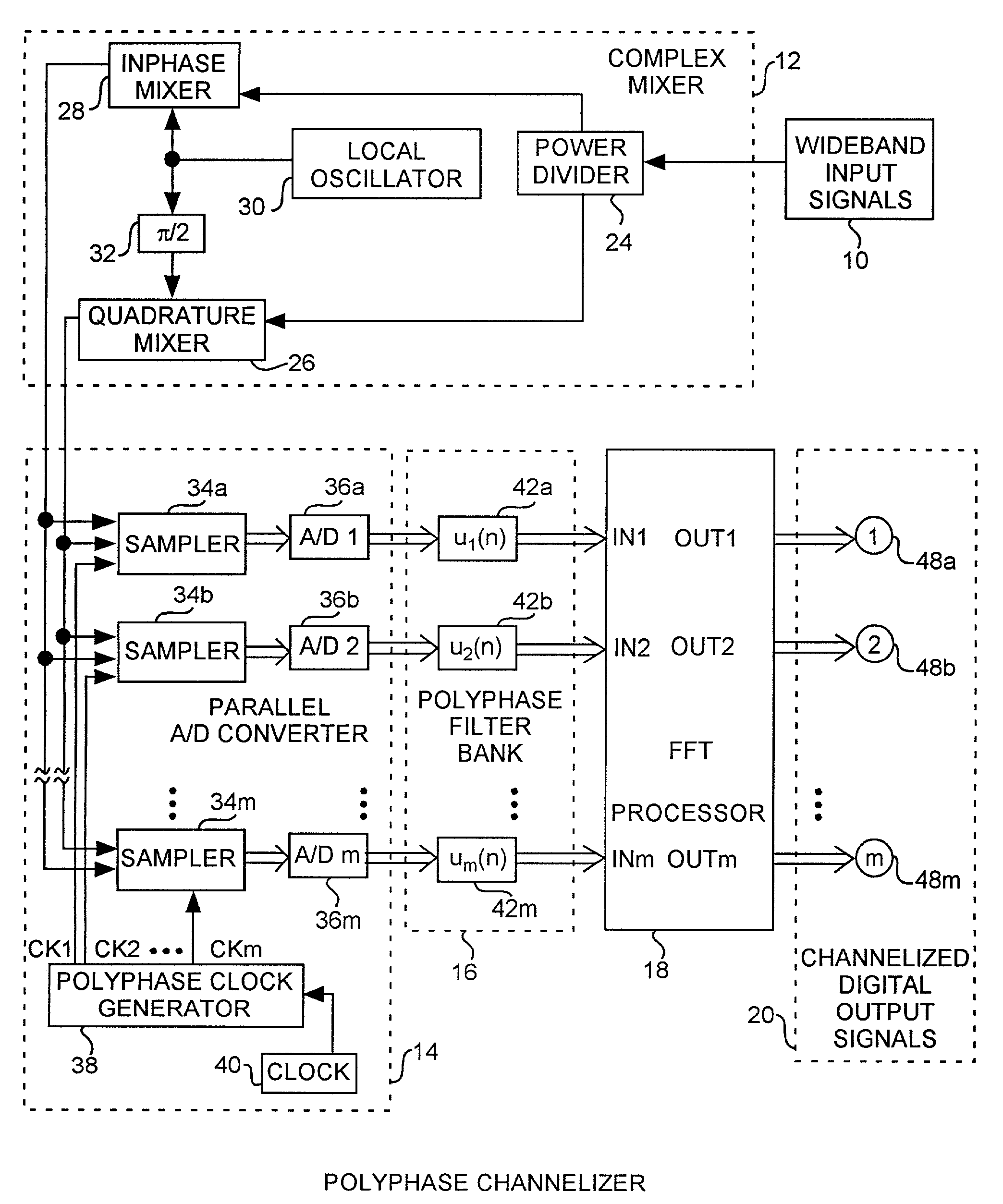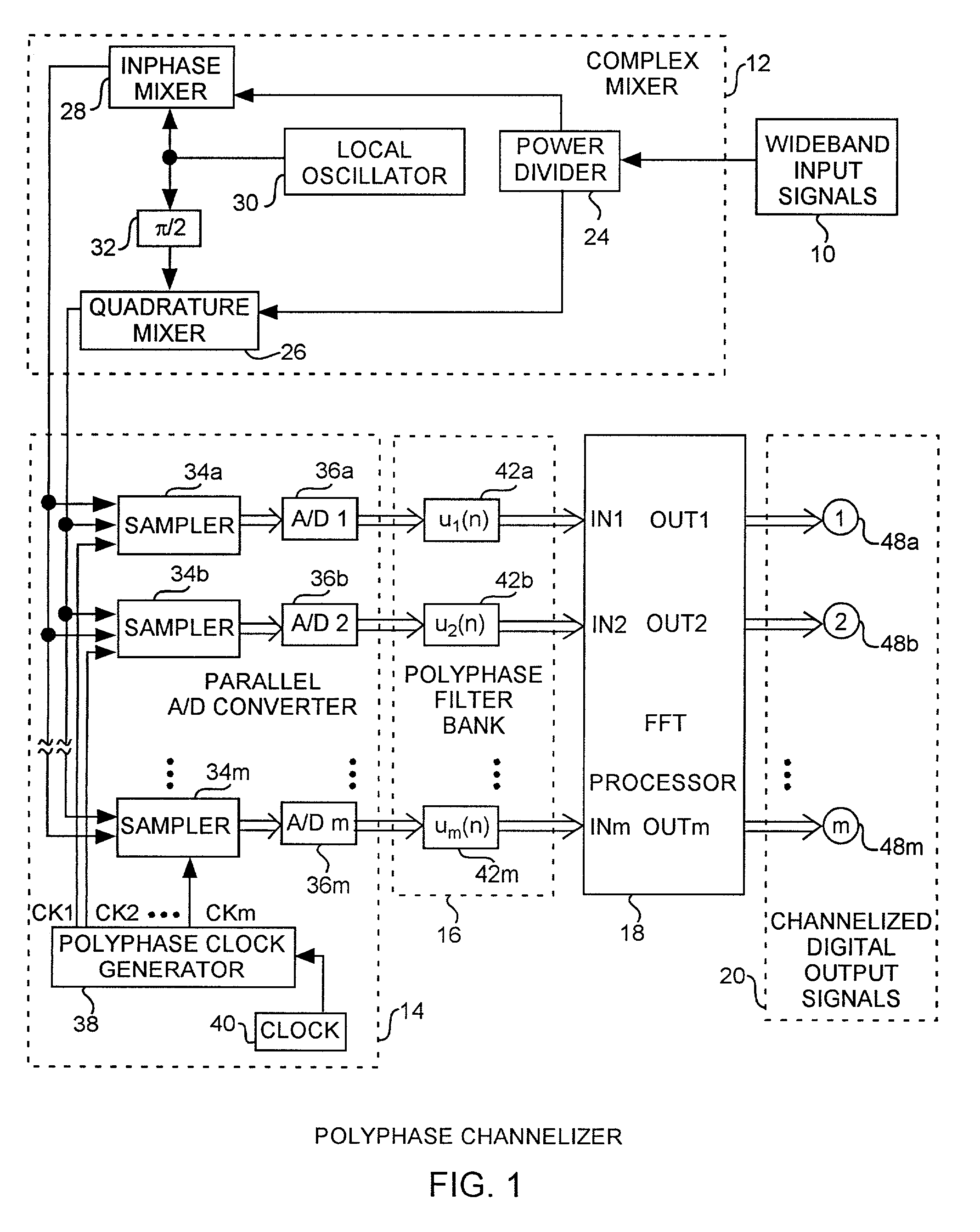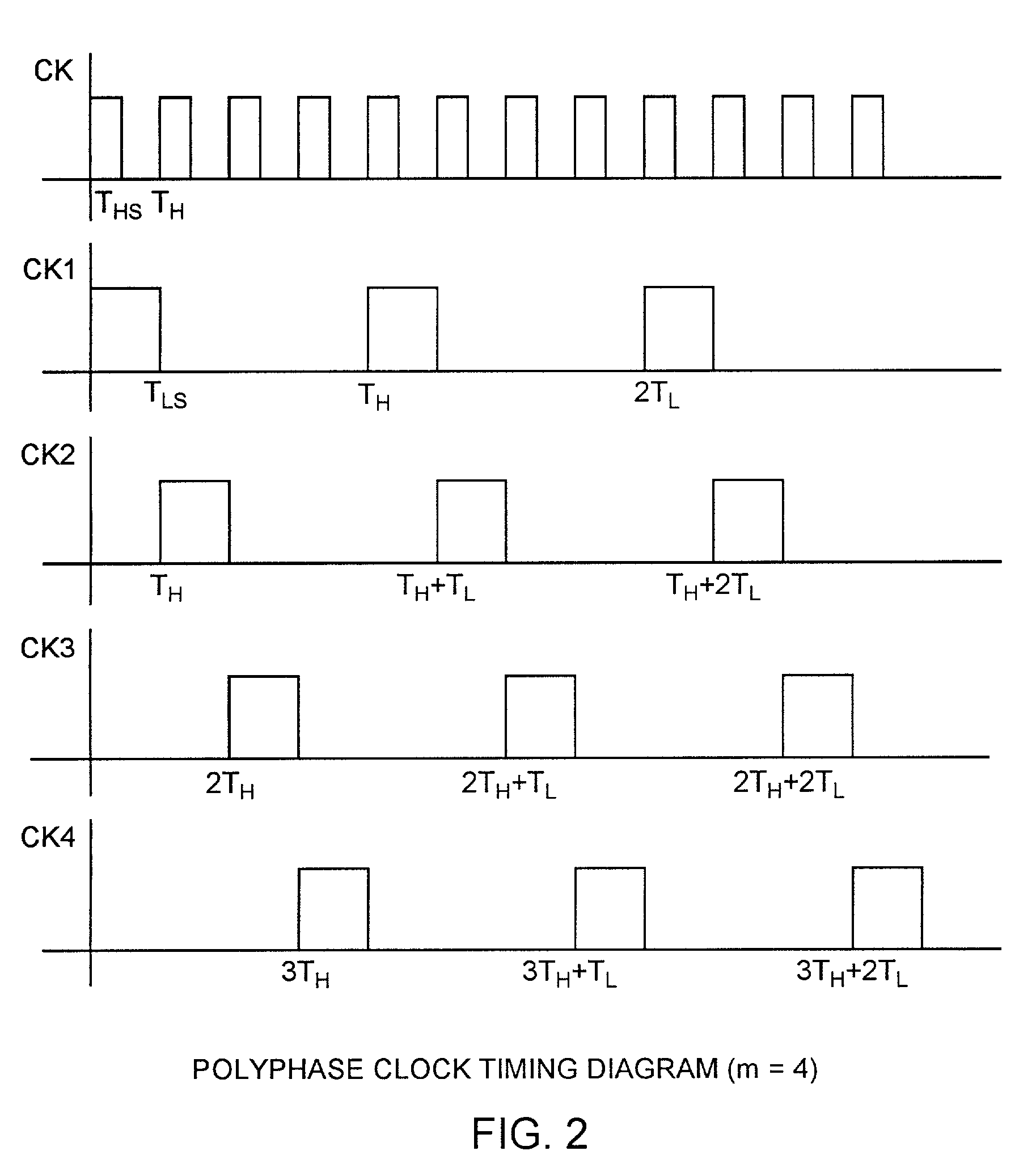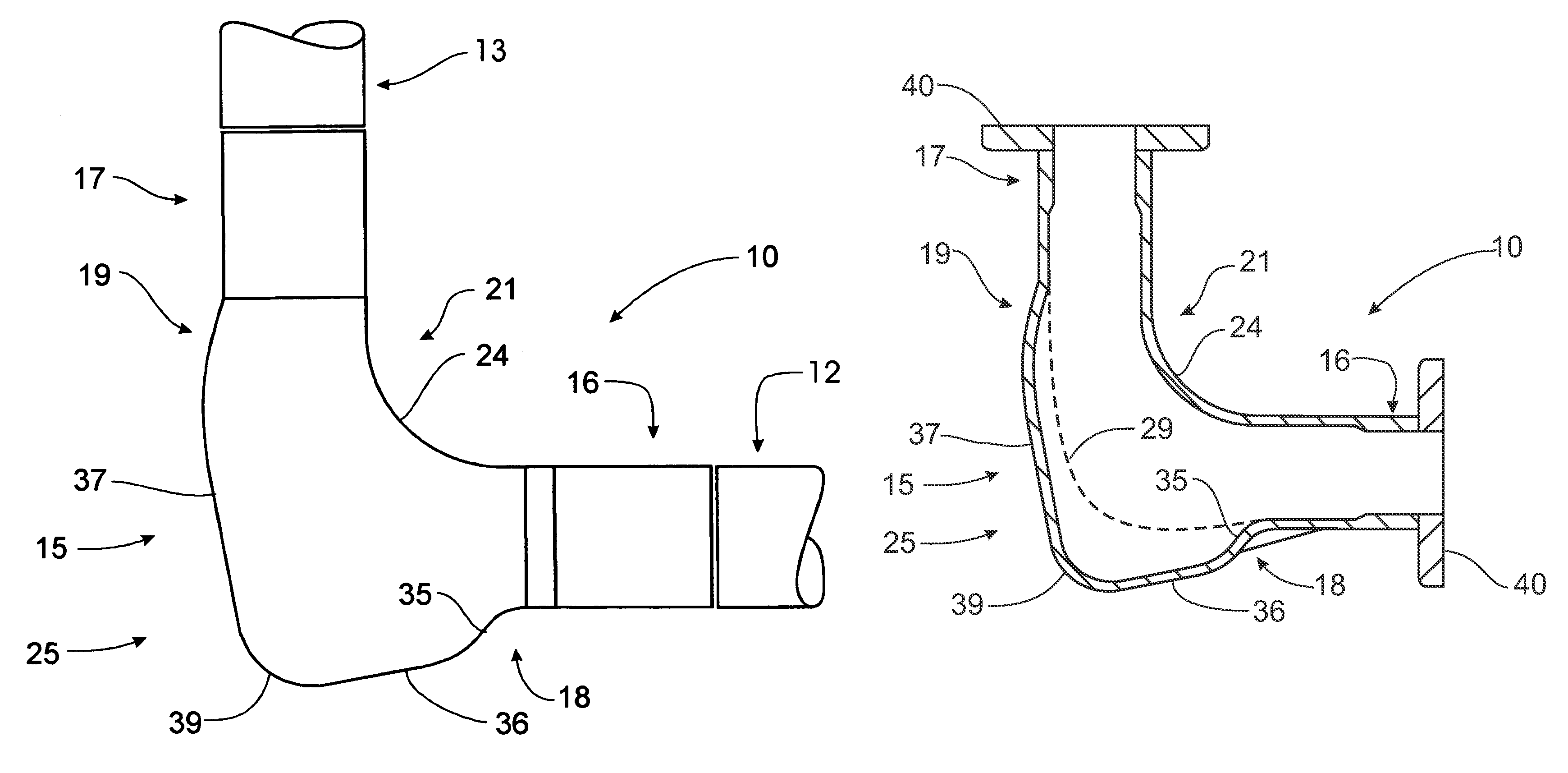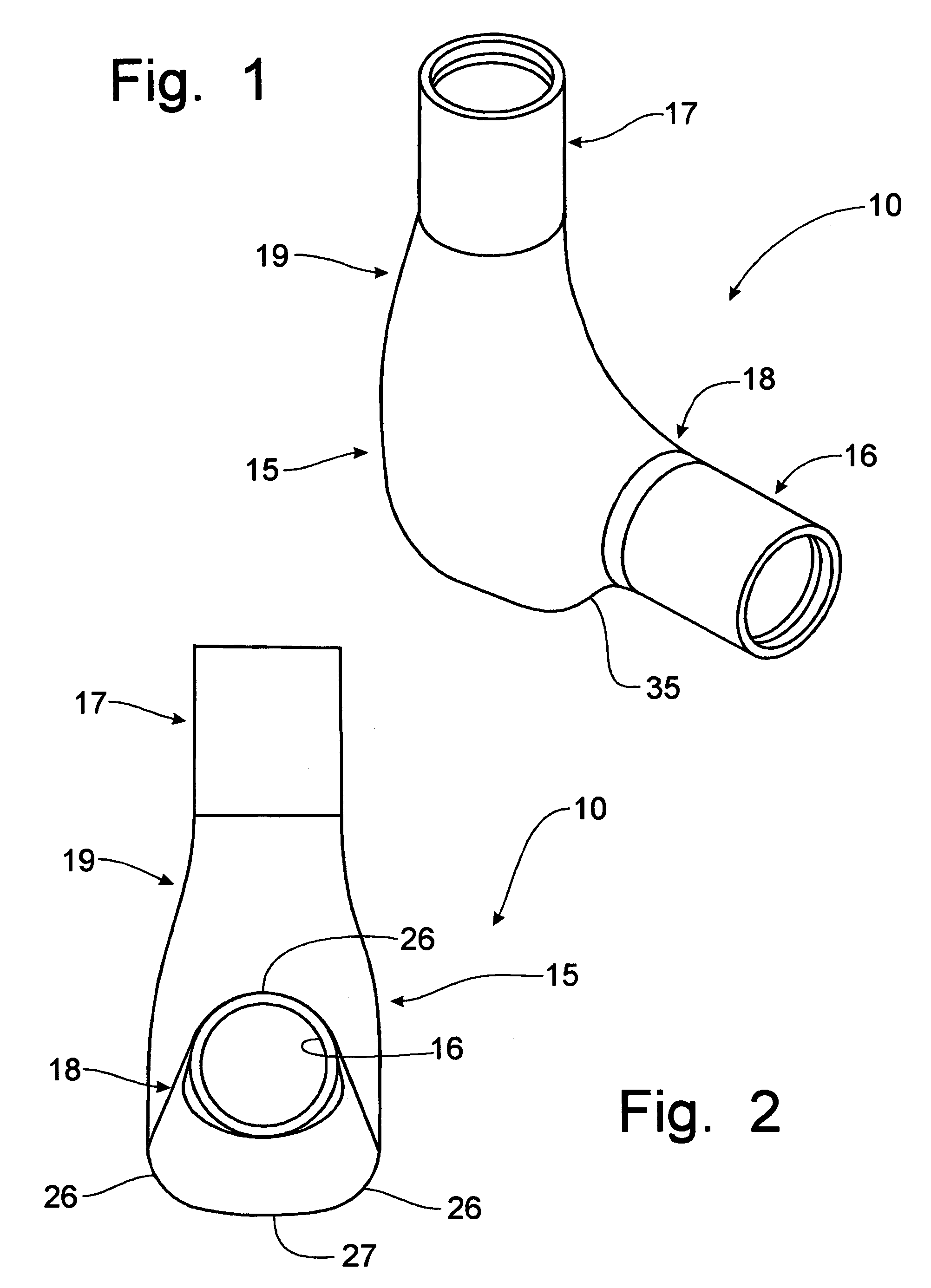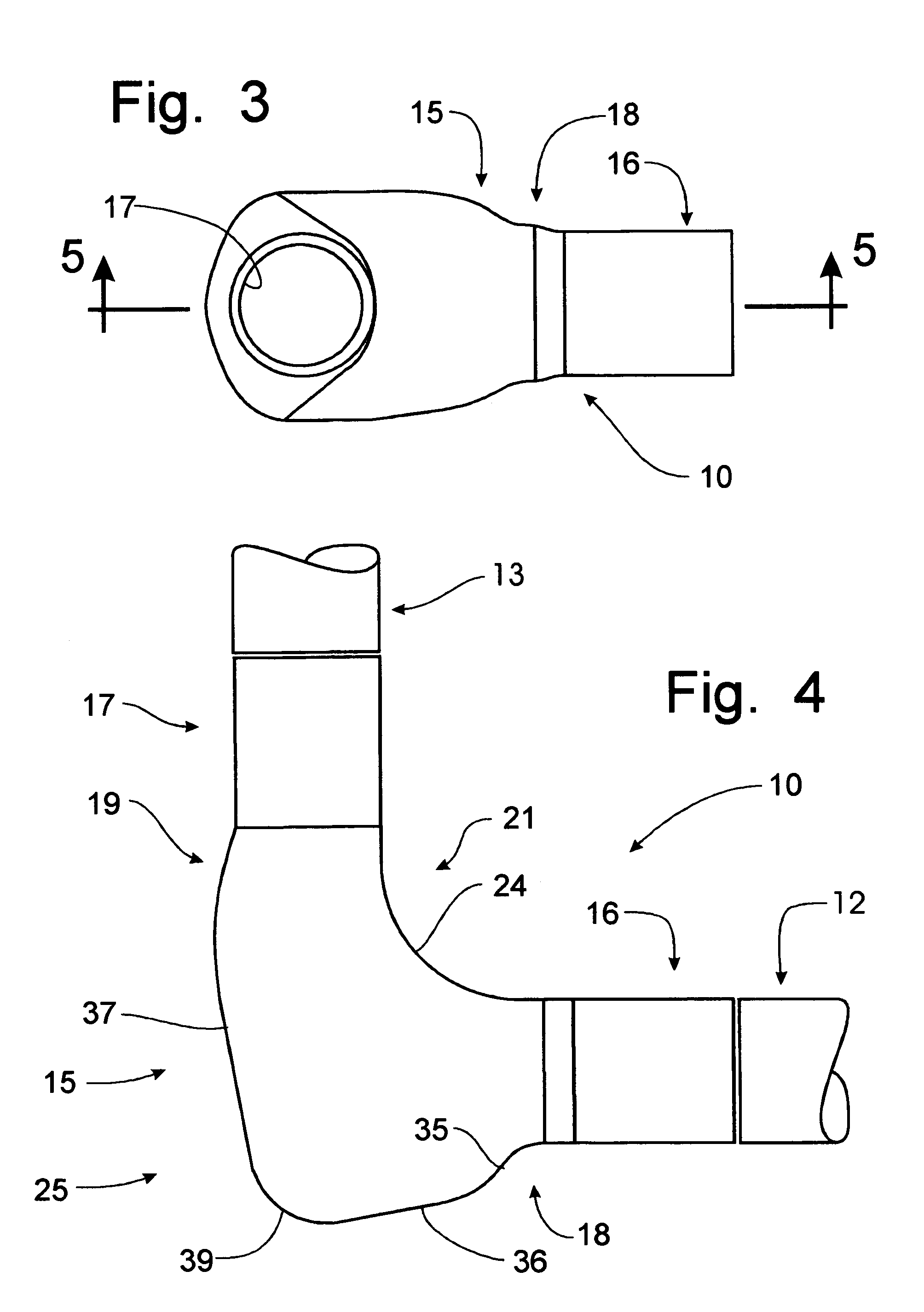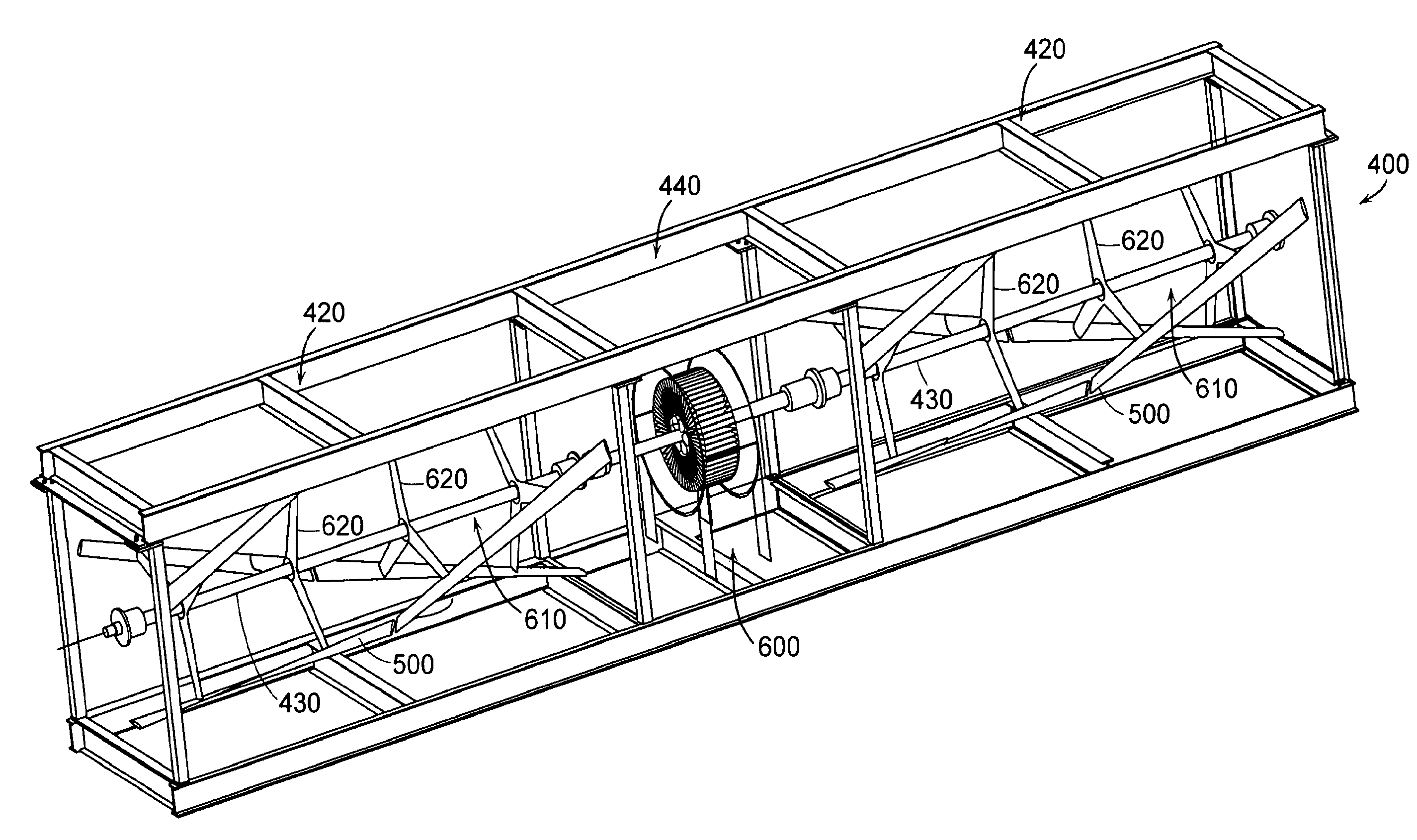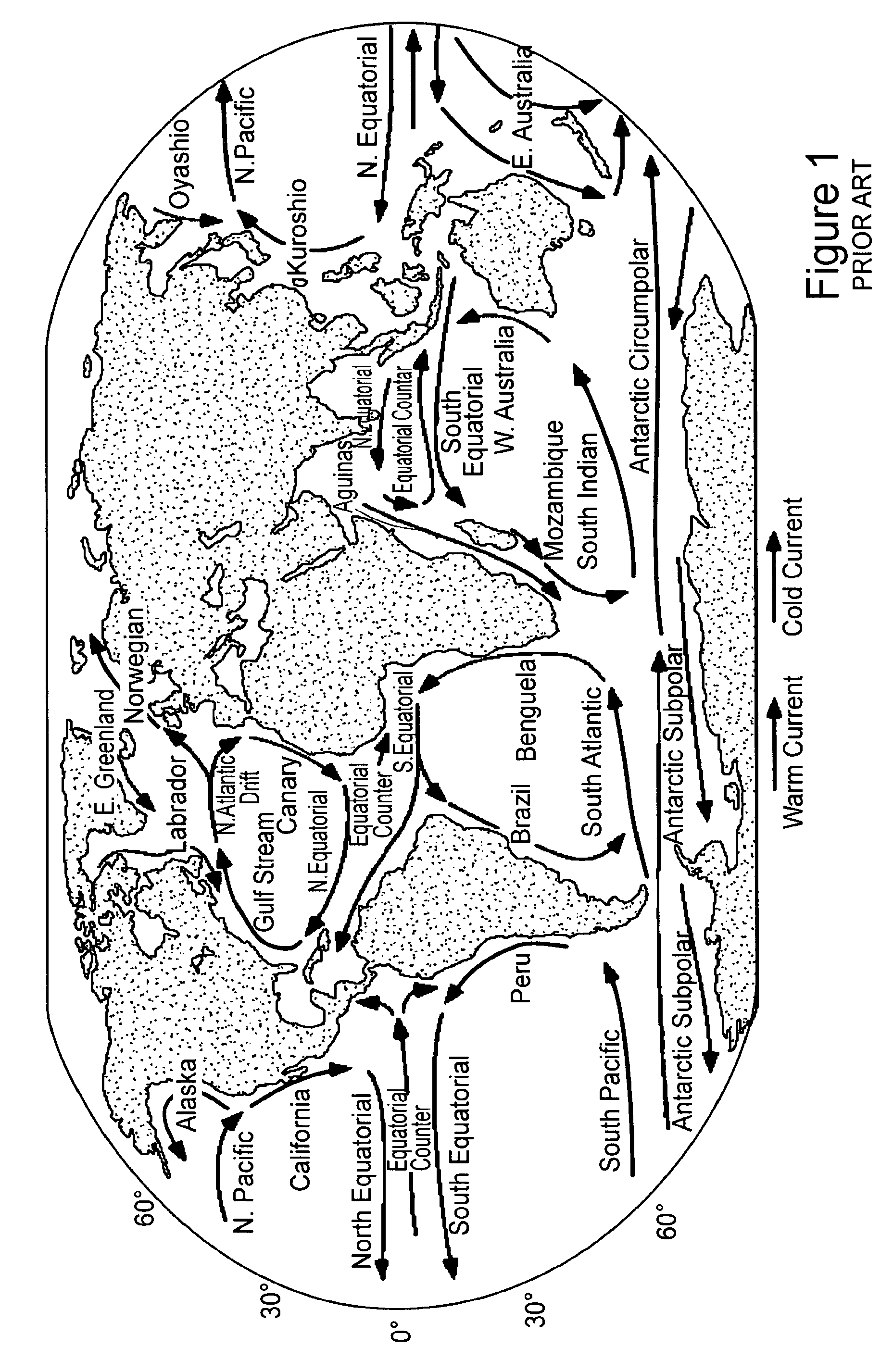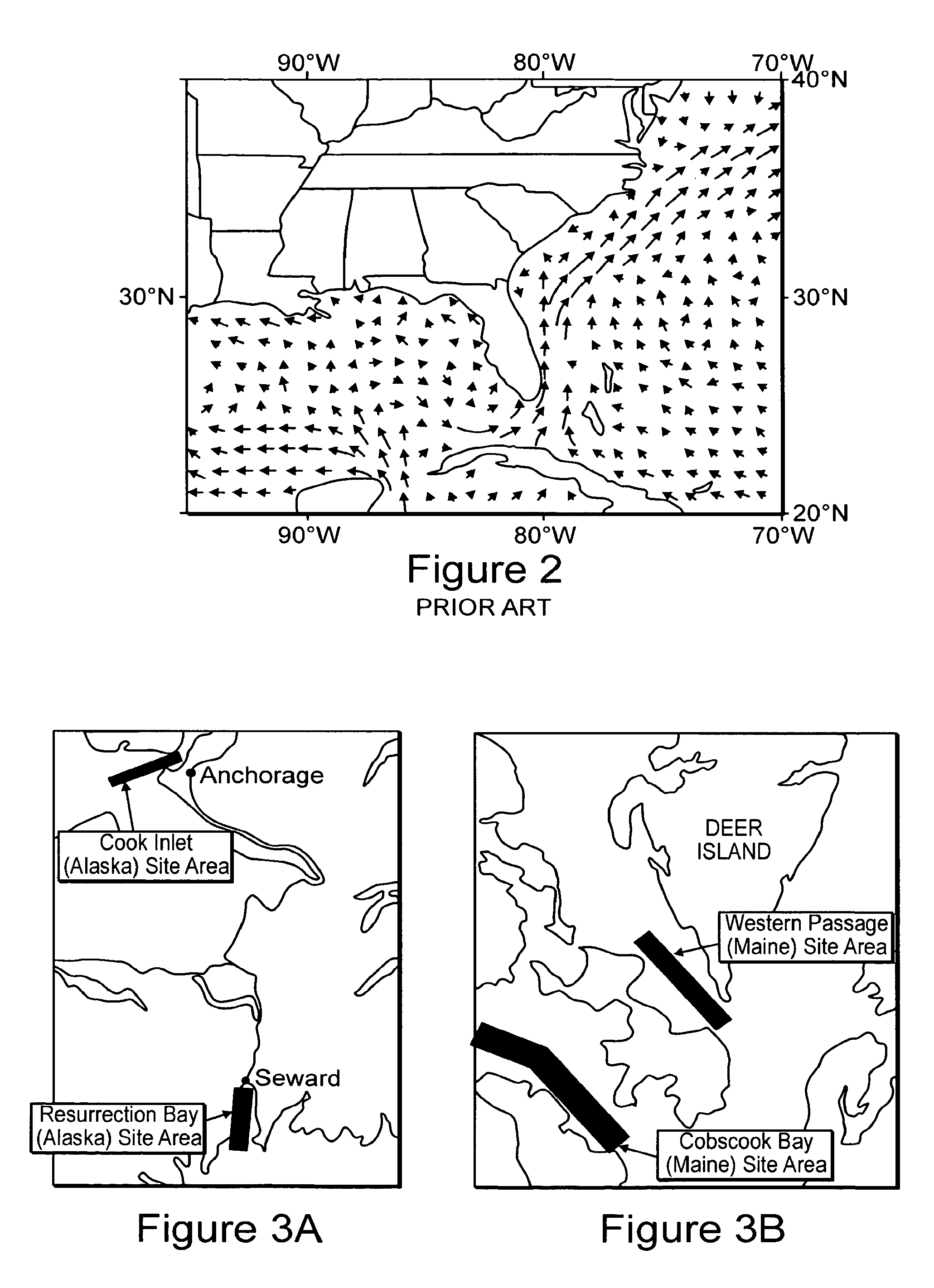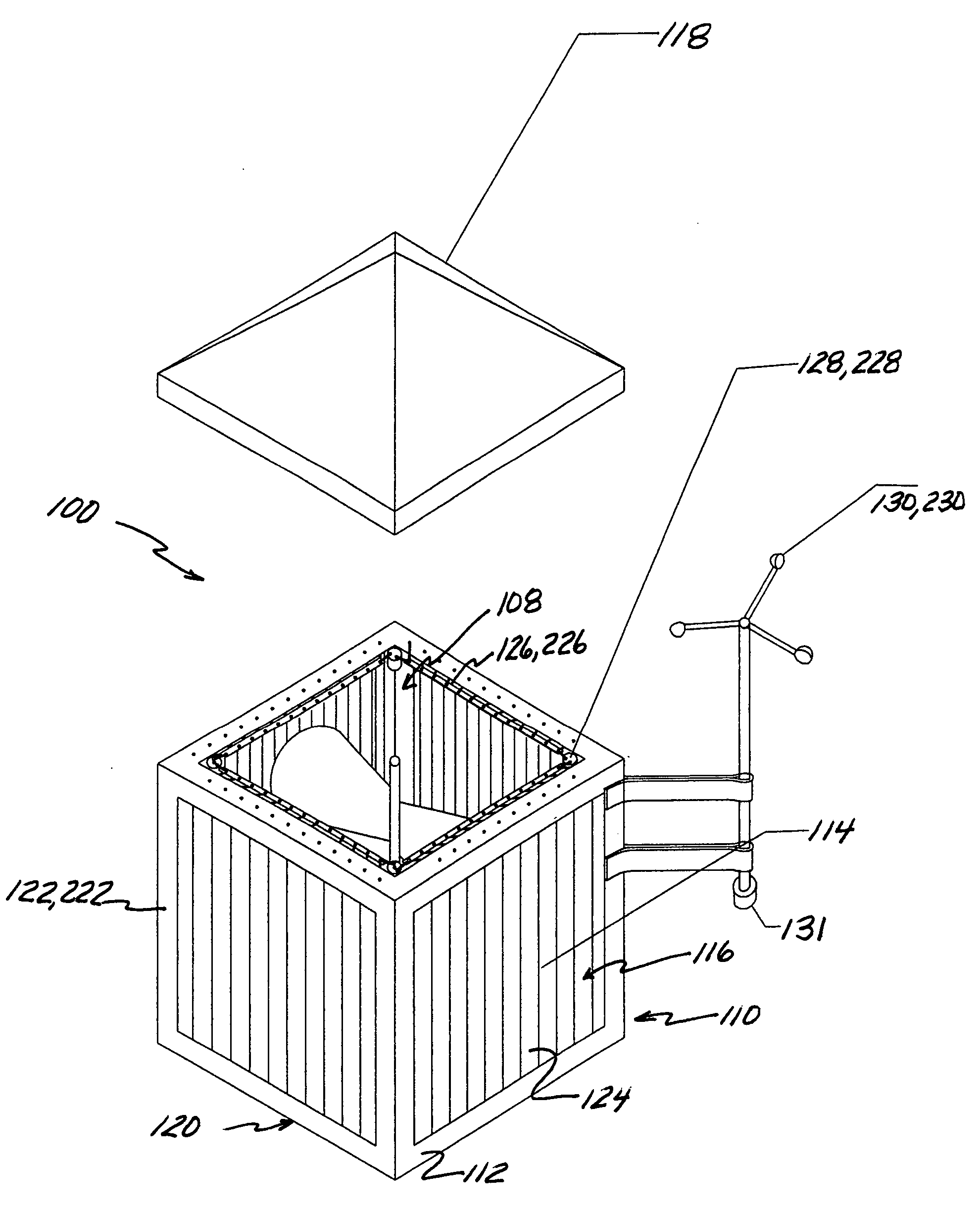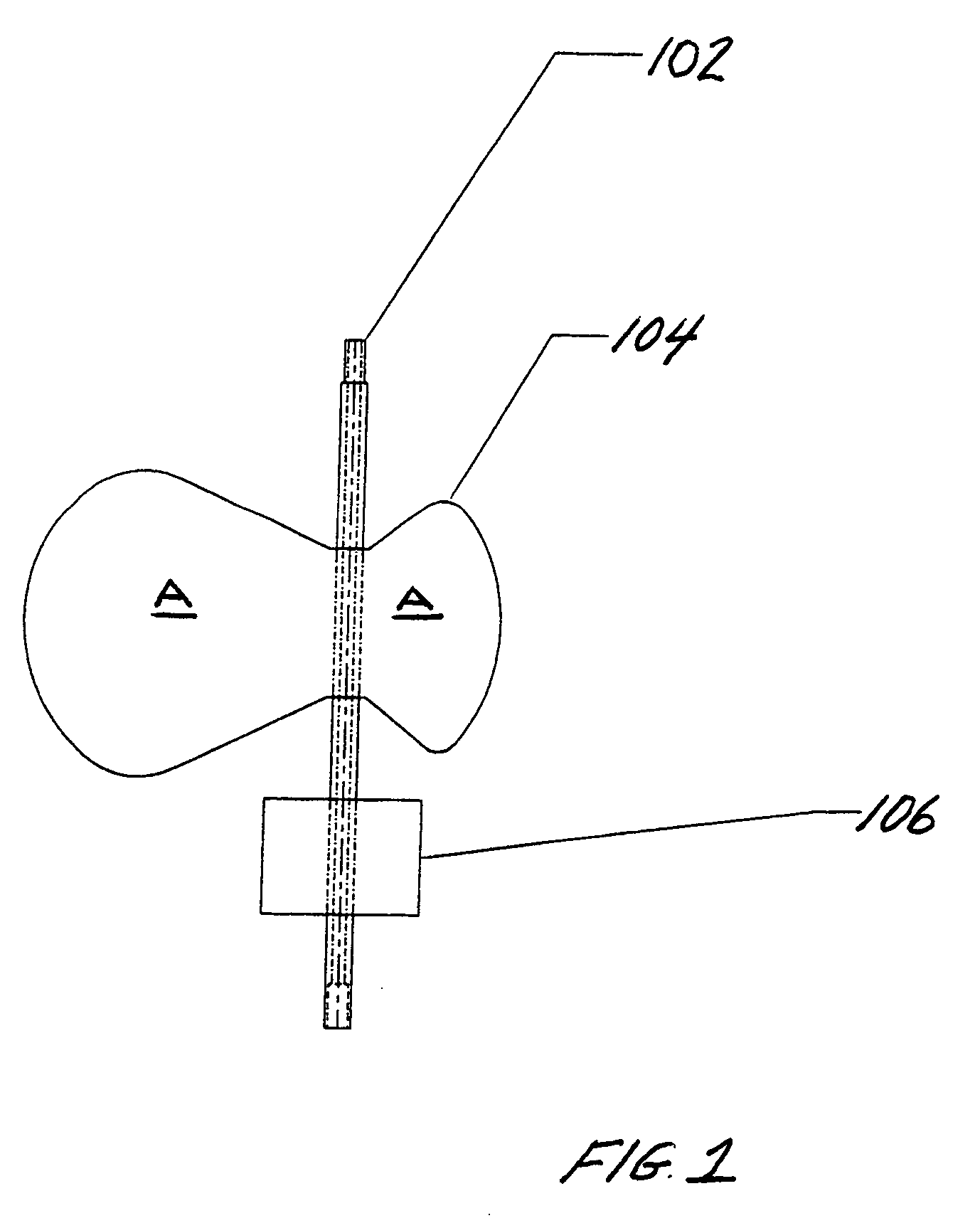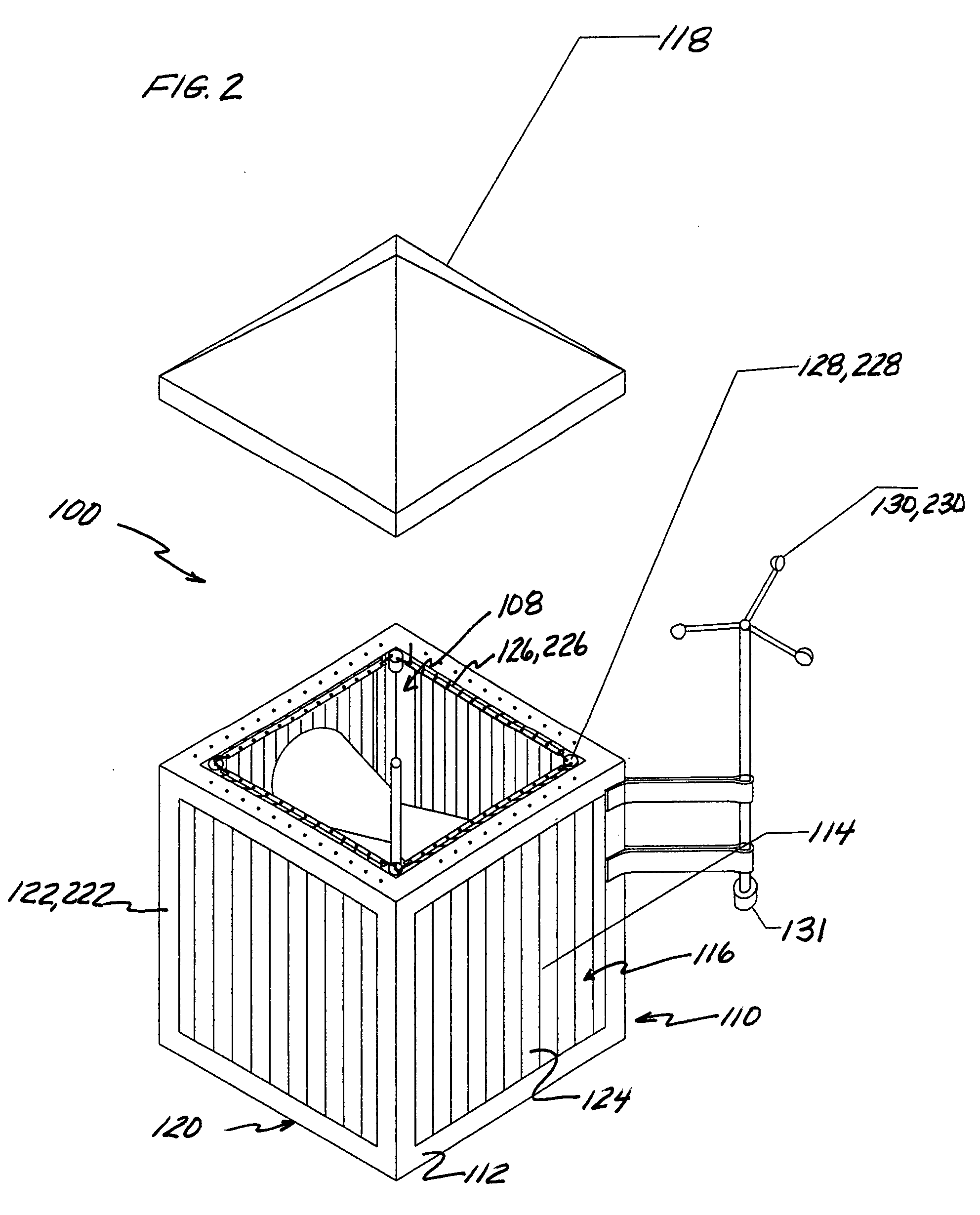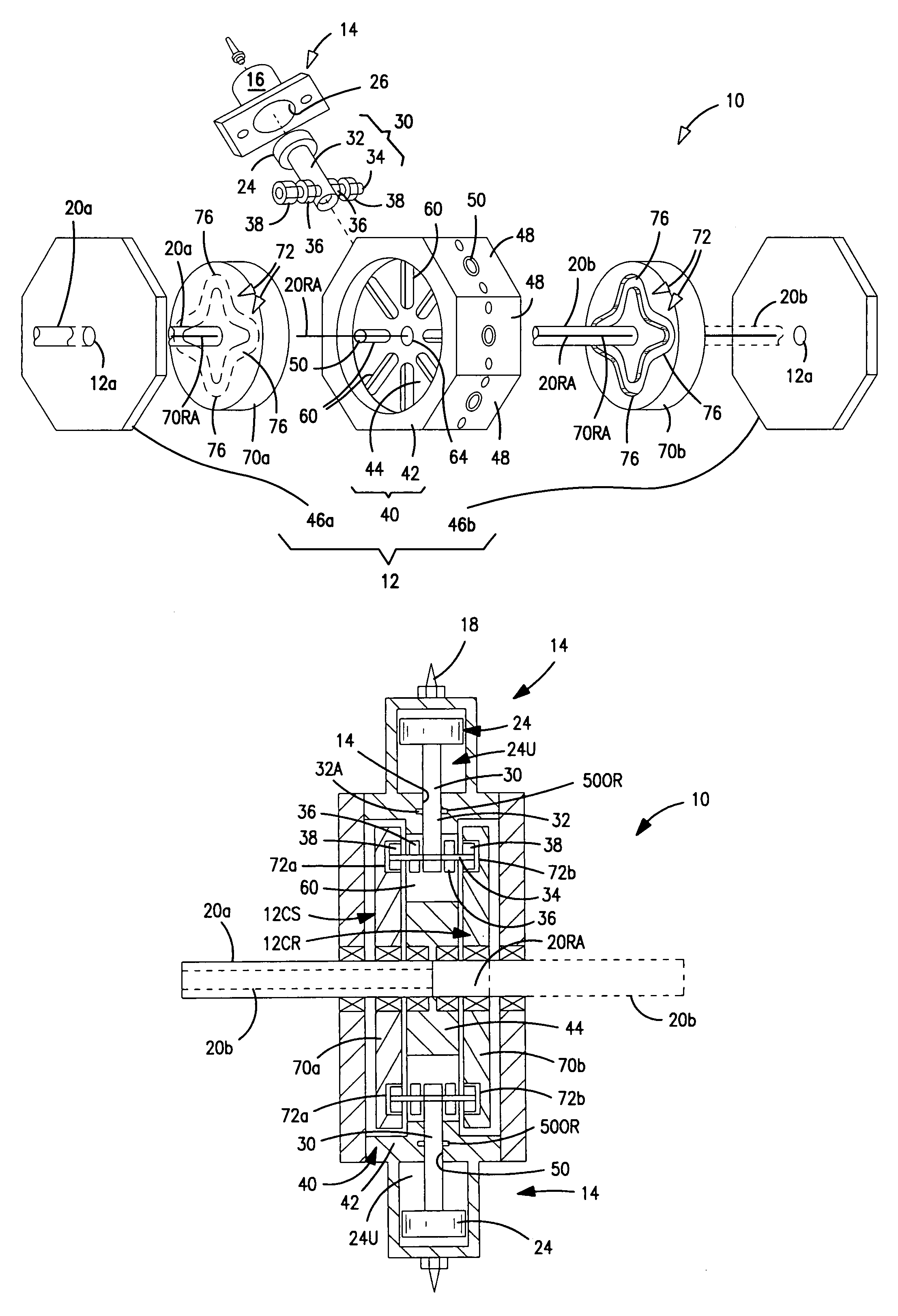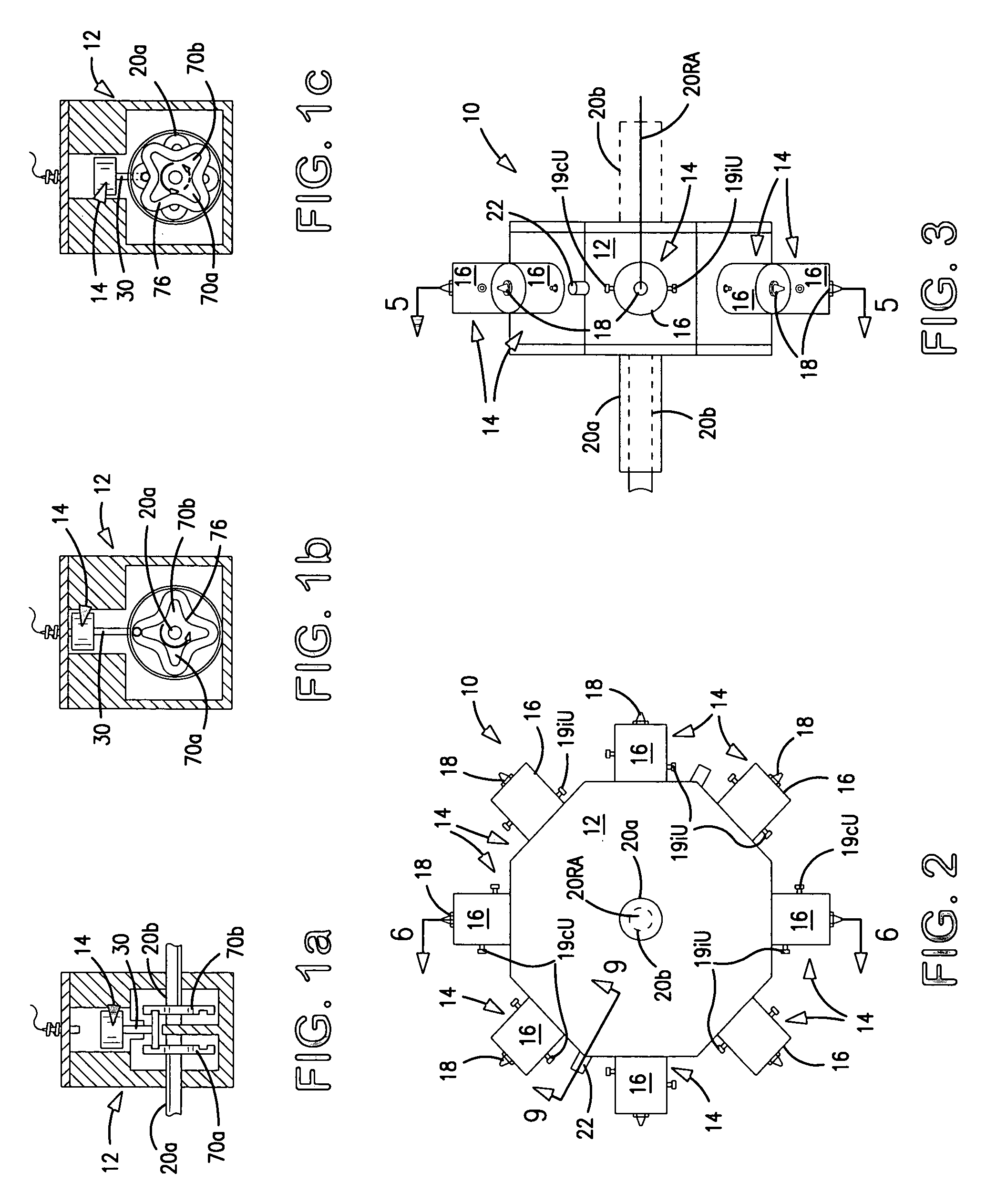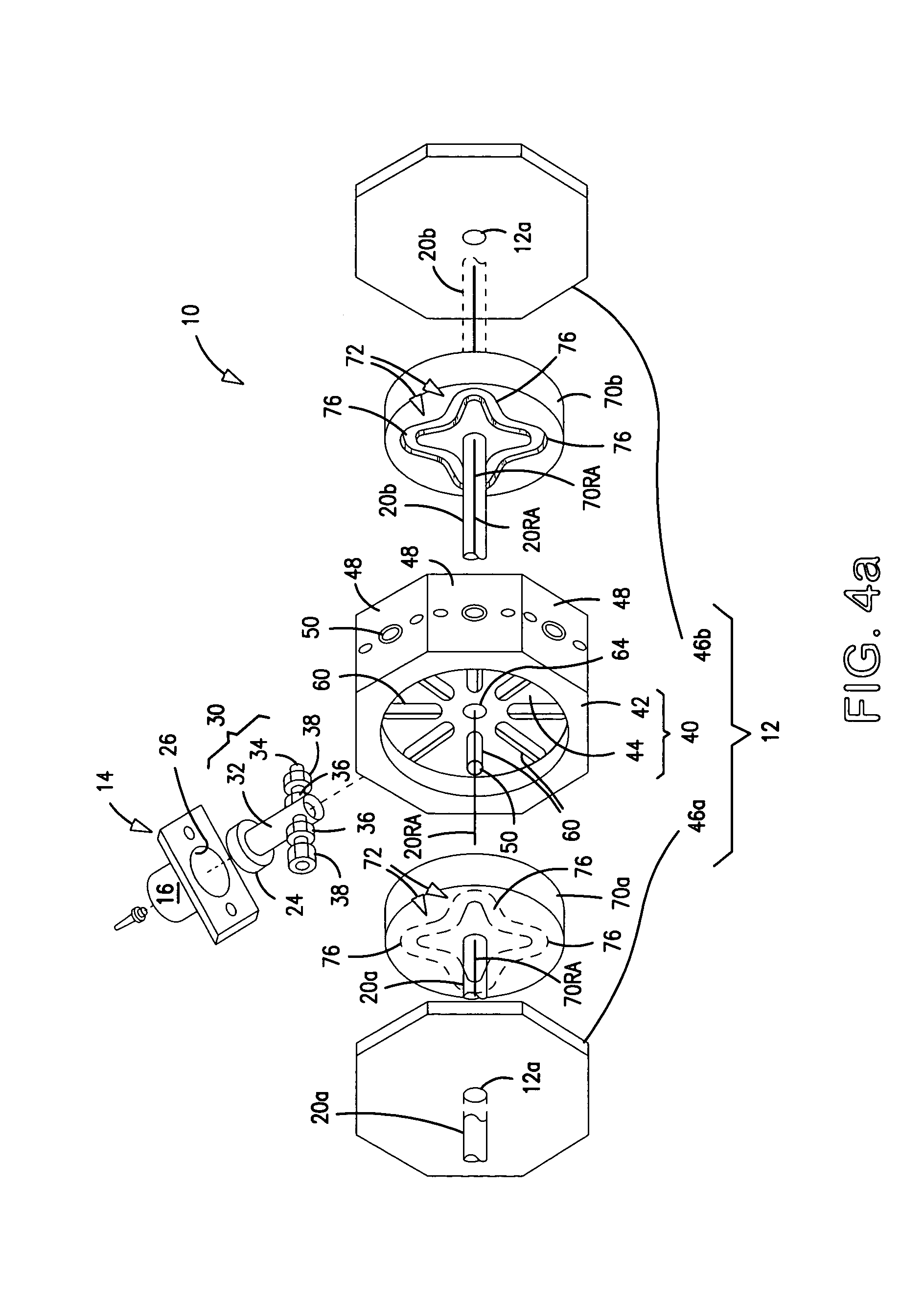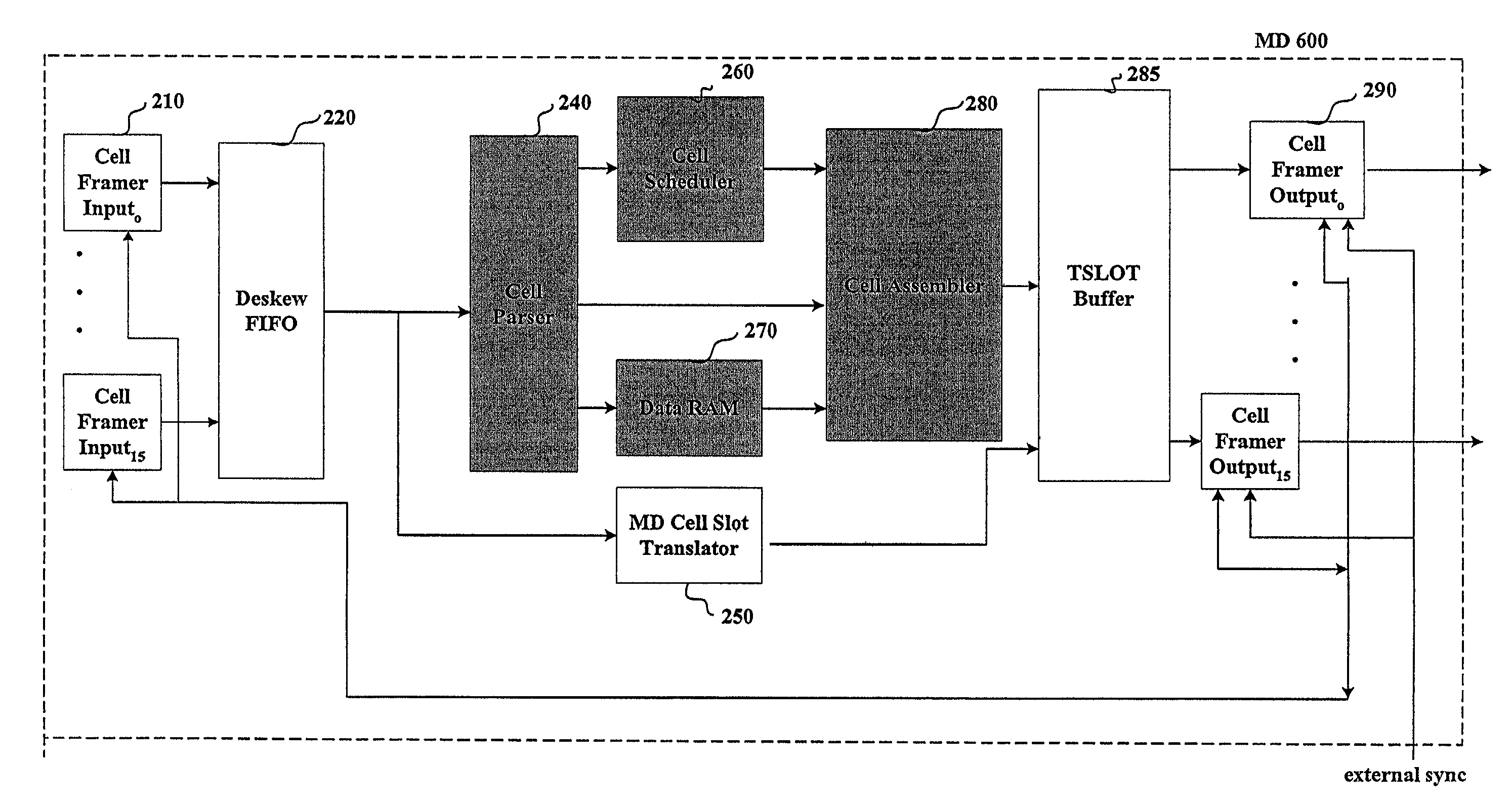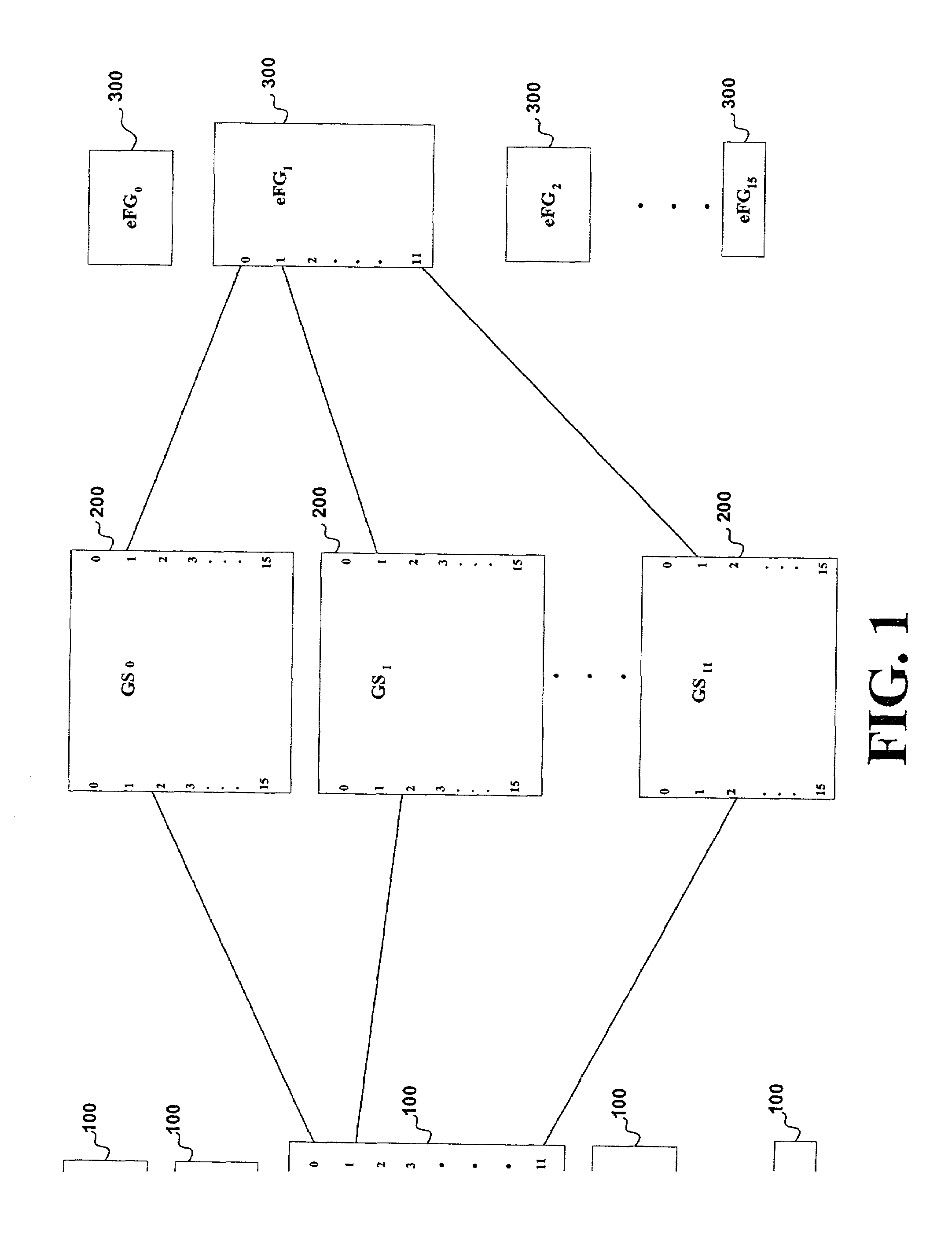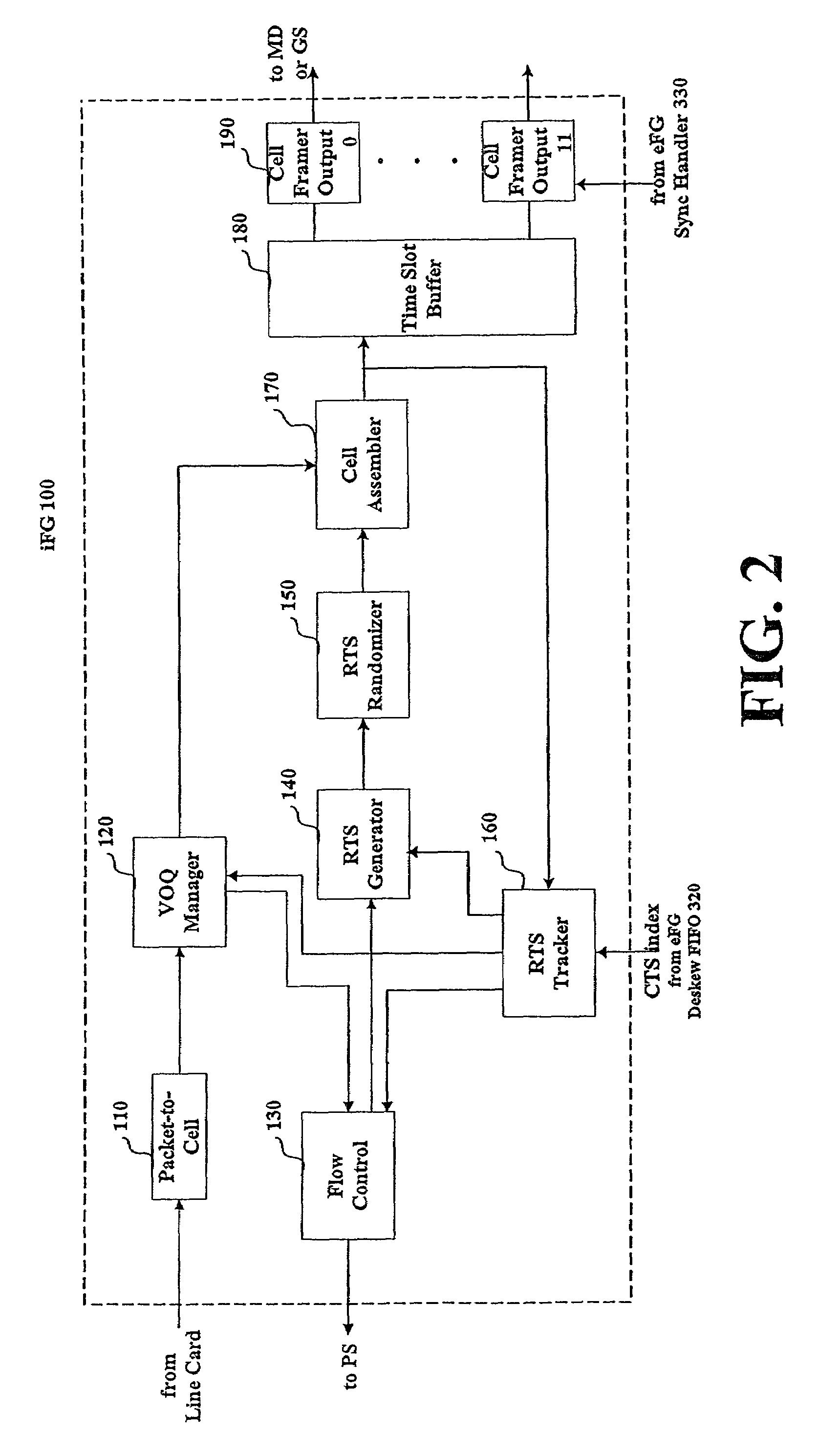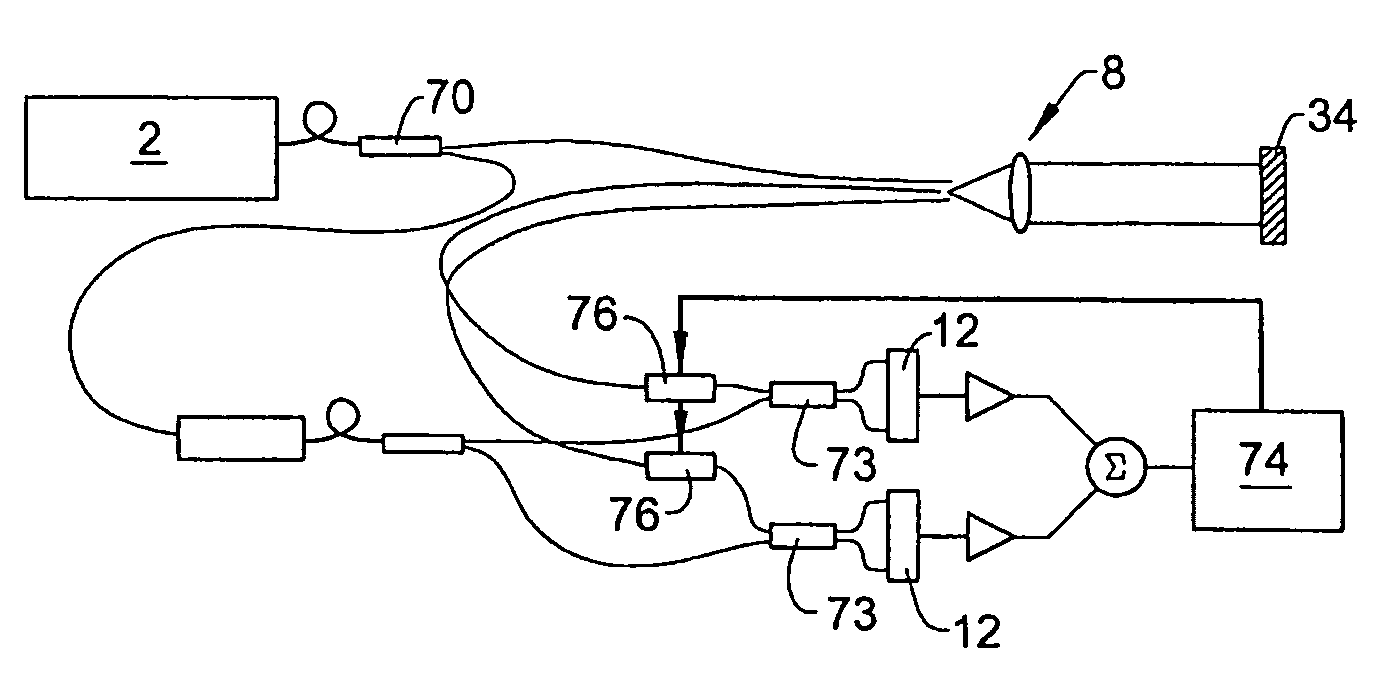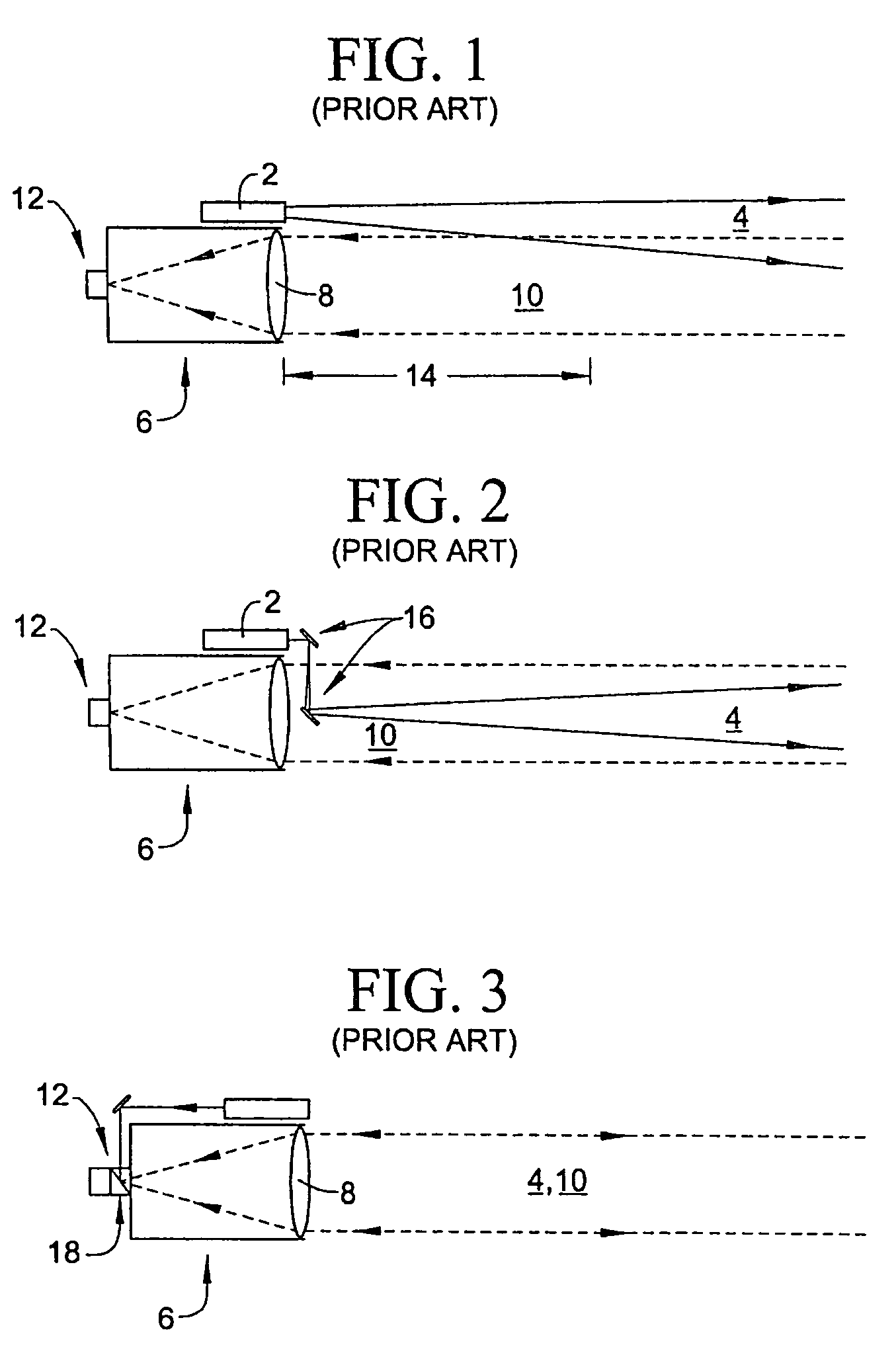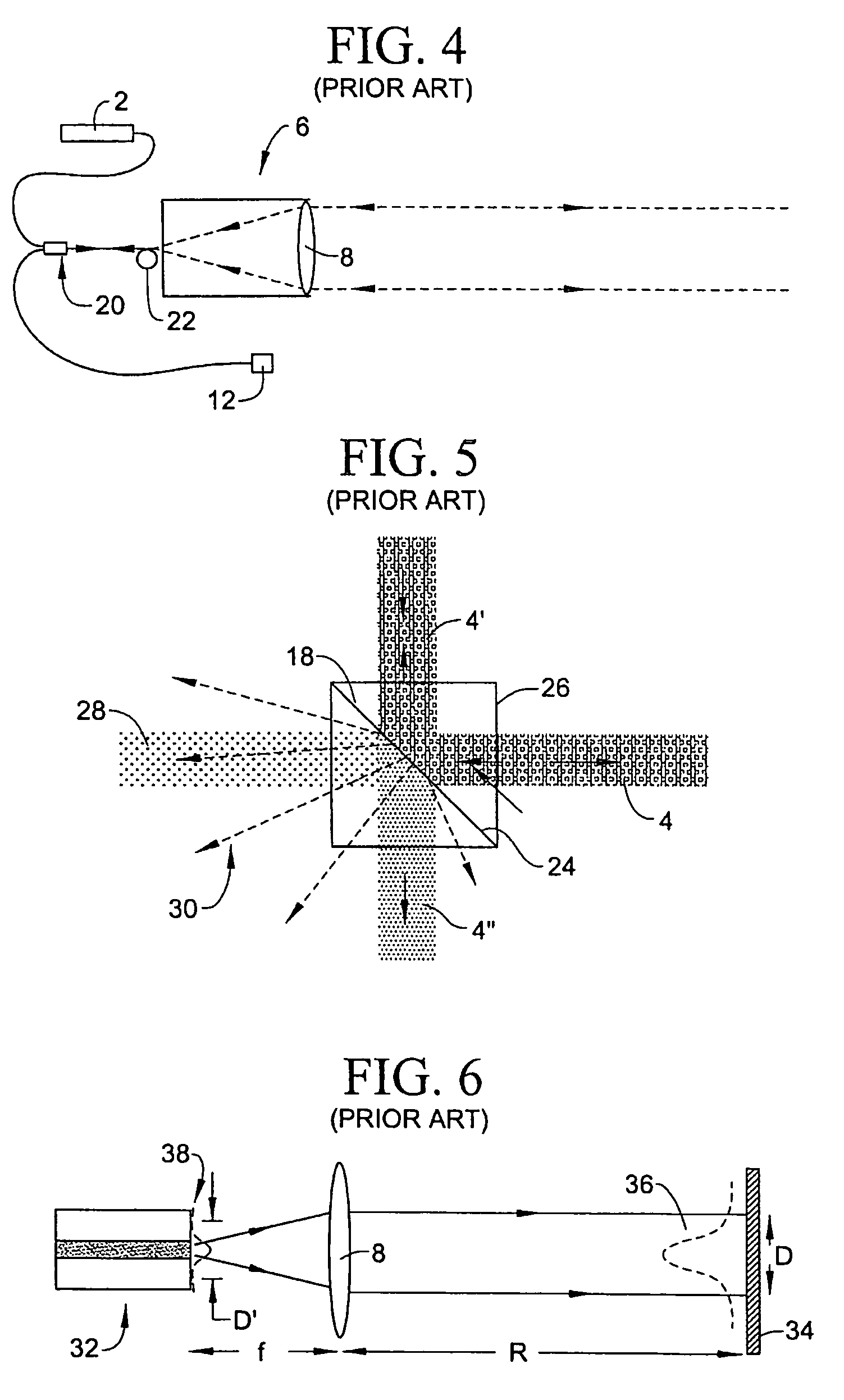Patents
Literature
669 results about "Lower velocity" patented technology
Efficacy Topic
Property
Owner
Technical Advancement
Application Domain
Technology Topic
Technology Field Word
Patent Country/Region
Patent Type
Patent Status
Application Year
Inventor
Friction compensation in a minimally invasive surgical apparatus
InactiveUS6899705B2High dexterityImprove precisionDiagnosticsSurgical manipulatorsLess invasive surgeryLow speed
Devices, systems, and methods for compensate for friction within powered automatic systems, particularly for telesurgery and other telepresence applications. Dynamic friction compensation may comprise applying a continuous load in the direction of movement of a joint, and static friction compensation may comprise applying alternating loads in positive and negative joint actuation directions whenever the joint velocity reading falls within a low velocity range.
Owner:INTUITIVE SURGICAL OPERATIONS INC
Method and apparatus for producing methane from carbonaceous material
InactiveUS20060265953A1Efficient productionEfficient deliveryHydrogen separationGaseous fuelsHydrogenReaction zone
A method for producing methane (69) from a carbonaceous (22) material includes conveying pulverized carbonaceous material (28) entrained in an inert carrier fluid, such as carbon dioxide (36), into a reactor (34). The reactor (34) includes a vortex region (72) for receiving hydrogen gas (38) and imparting a swirling motion to the hydrogen gas (38). The pulverized carbonaceous material (28) is exposed to the swirling stream of hydrogen gas (38) in a first reaction zone (114) within the reactor (34) to form an exit gas (40) that includes methane (69). Remaining unreacted carbonaceous material (28) is further exposed to the hydrogen gas (38) in a second, low velocity, reaction zone (120). The methane rich exit gas (40) is subsequently extracted from the reactor (34) for further processing.
Owner:ARIZONA PUBLIC SERVICE
Expandable fluoropolymer device for delivery of therapeutic agents and method of making
A radially expandable fluid delivery device for delivering a fluid to a treatment site within the body is disclosed. The fluid delivery device is constructed of a microporous, biocompatible fluoropolymer material having a microstructure that can provide a controlled, uniform, low-velocity fluid distribution through the walls of the fluid delivery device to effectively deliver fluid to the treatment site without damaging tissue proximate the walls of the device. The fluid delivery device includes a tubular member defined by a wall having a thickness transverse to the longitudinal axis of the tubular member and extending between an inner and an outer surface. The wall is characterized by a microstructure of nodes interconnected by fibrils. The tubular member is deployable from a first, reduced diameter configuration to a second, increased diameter configuration upon the introduction of a pressurized fluid to the lumen. The tubular member includes at least one microporous portion having a porosity sufficient for the pressurized fluid to permeate through the wall. Substantially all of the nodes within the microporous portion are oriented such that spaces between the nodes form micro-channels extending from the inner surface-to the outer surface of the wall.
Owner:ATRIUM MEDICAL
Expandable fluoropolymer device for delivery of therapeutic agents and method of making
A method of making a radially expandable fluid delivery device includes providing a tube of biocompatible fluoropolymer material with a predetermined porosity based on an extrusion and expansion forming process, applying a radial expansion force to the tube expanding the tube to a predetermined diameter dimension, and removing the radial expansion force. The tube is radially inelastic while sufficiently pliable to be collapsible and inflatable from a collapsed configuration to an expanded configuration upon introduction of an inflation force, such that the expanded configuration occurs upon inflation to the predetermined diameter dimension. The fluid delivery device is constructed of a microporous, biocompatible fluoropolymer material having a microstructure that can provide a controlled, uniform, low-velocity fluid distribution through the walls of the fluid delivery device to effectively deliver fluid to the treatment site without damaging tissue proximate the walls of the device.
Owner:ATRIUM MEDICAL
Reduction of recirculation in catheters
InactiveUS20060004316A1Decrease outflow velocity of fluidPrevent sprayingMedical devicesCatheterDistal portionNose
A catheter tip designed to reduce the outflow velocity and / or directional momentum of fluid being infused by a catheter having such a tip. In one variation, a plurality of channels is provided at the distal portion of the catheter to increase the outflow cross-sectional area. In another variation, the diameter of the catheter at its distal portion where the fluid exits is increased. In yet another variation, a bullet-shaped nose is implemented which may decrease turbulence at the distal end of catheter tip. The low velocity outflow catheter tip may also be implemented on a dual lumen catheter, such as a hemodialysis catheter, to reduce recirculation rate. Various device configurations and methods for such implementations are also disclosed.
Owner:CR BARD INC
Friction compensation in a minimally invasive surgical apparatus
InactiveUS6974449B2High dexterityImprove precisionDiagnosticsSurgical manipulatorsLess invasive surgeryLow speed
Devices, systems, and methods for compensate for friction within powered automatic systems, particularly for telesurgery and other telepresence applications. Dynamic friction compensation may comprise applying a continuous load in the direction of movement of a joint, and static friction compensation may comprise applying alternating loads in positive and negative joint actuation directions whenever the joint velocity reading falls within a low velocity range.
Owner:INTUITIVE SURGICAL OPERATIONS INC
Hybrid Gas Turbine Propulsion System
ActiveUS20150013306A1Reduce fuel consumptionImprove responsivenessGas turbine type power plantsEfficient propulsion technologiesAir compressionDual-thrust
A hybrid aerodynamic thrust system as a prime mover for aircraft or other high-speed vehicles. An arrangement of dual thrust resources to alternately accommodate low and high airspeed regimes. Electromotive force is used in lieu of hot section power turbines to achieve engine air compression or alternately perform thrust work at low velocities.
Owner:SHELLEY RUDOLPH ALLEN
Organic rankine cycle system for use with a reciprocating engine
InactiveUS6986251B2Reduce heatShorten speedSteam engine plantsMechanical power devicesLow speedCavitation
In a waste heat recovery system wherein an organic rankine cycle system uses waste heat from the fluids of a reciprocating engine, provision is made to continue operation of the engine even during periods when the organic rankine cycle system is inoperative, by providing an auxiliary pump and a bypass for the refrigerant flow around the turbine. Provision is also made to divert the engine exhaust gases from the evaporator during such periods of operation. In one embodiment, the auxiliary pump is made to operate simultaneously with the primary pump during normal operations, thereby allowing the primary pump to operate at lower speeds with less likelihood of cavitation.
Owner:INT FUEL CELLS +1
Apparatus and method for producing article
ActiveUS7195684B2Preventing point-to-point variationReduce variationLaminationLamination apparatusMechanical engineeringHigh velocity
An apparatus for producing an article having an elastic member, comprises: a stretcher for receiving the elastic member at a low velocity VL and outputting the elastic member at a medium velocity VM; a carrier including a first pad and a second pad for picking up the elastic member from the stretcher, and a cutter for cutting off the elastic member while carrying the elastic member; and a station for carrying a web at a high velocity Vh and disposing the cut-off elastic member from a pad onto the web. When the elastic member striding over the first pad and the second pad is cut off, an interval between the first pad and the second pad is shortened so as to reduce a shrinking force of a portion of the elastic member between the first pad and the second pad.
Owner:ZUIKO CORP
Jet engine inlet-fan system and design method
InactiveUS20060179818A1Improve performanceIncrease pressureSupersonic fluid pumpsEfficient propulsion technologiesJet engineDesign methods
A supersonic aircraft engine axial fan that includes a rotating blade row having blades that receive a supersonic entry flow in the absolute frame and decelerate the flow to a lower supersonic or subsonic velocity exit flow while adding work to the flow to increase stagnation pressure. It is preferred that the lower velocity be subsonic. When the fan is combined with a suitably designed inlet, the propulsion system is compact and lighter in weight than conventional engines for supersonic aircraft.
Owner:MASSACHUSETTS INST OF TECH
Spectroscopic imaging device employing imaging quality spectral filters
InactiveUSRE36529E1Retaining image fidelityQuick buildRadiation pyrometryInterferometric spectrometryLow speedImaging quality
Techniques for providing spectroscopic imaging integrates an acousto-optic tunable filter (AOTF), or an interferometer, and a focal plane array detector. In operation, wavelength selectivity is provided by the AOTF or the interferometer. A focal plane array detector is used as the imaging detector in both cases. Operation within the ultraviolet, visible, near-infrared (NIR) spectral regions, and into the infrared spectral region, is achieved. The techniques can be used in absorption spectroscopy and emission spectroscopy. Spectroscopic images with a spectral resolution of a few nanometers and a spatial resolution of about a micron, are collected rapidly using the AOTF. Higher spectral resolution images are recorded at lower speeds using the interferometer. The AOTF technique uses entirely solid-state components and requires no moving parts. Alternatively, the interferometer technique employs either a step-scan interferometer or a continuously modulated interferometer.
Owner:US DEPT OF HEALTH & HUMAN SERVICES
Cooking oven with energy saving mode and method
InactiveUS8709905B2Reduce energy consumptionDomestic stoves or rangesBaking ovenProcess engineeringEnergy expenditure
An oven comprising a controller that operates the oven in a food cooking mode and in energy saving mode in which energy consumption of a heater and one or more fans is reduced. In the food cooking mode the controller maintains heated air flow at a first set temperature. In the energy saving mode the controller maintains the heated air flow at a second set temperature, which is less than the first set temperature, thereby reducing energy consumed by the heater. In the energy mode, controller also operates the fan that circulates the heater air and a cooling fan at reduced speeds, thereby reducing energy consumption of both fans.
Owner:MANITOWOC FOODSERVICE UK
High performance fan tail heat exchanger
InactiveUS6308771B1Increased control volumeOptimize volumeSemiconductor/solid-state device detailsSolid-state devicesAcute angleEngineering
A novel plate fin heat exchanger adapted for high and low velocity fluid flows for dissipating heat from a heat generating component. The heat exchanger comprises an array of fins being affixed to and in thermal communication with a thermally conductive base, wherein the fins are arranged in a fan tail configuration for minimizing flow bypass, and further providing reduced thermal resistance for fluid passing through the fin field. The fins are affixed to and in thermal communication with the base at an acute angle, such that the effective width of the array of fins exceeds the width of the base. The enlarged effective width of the fin array in comparison to conventional heat exchanger provides an increased volume for fluid flow, thereby allowing a greater volume of fluid to enter the fin field and a greater surface area of plate fins for cooling the fluid passing through the heat exchanger. In addition, the heat exchanger comprises a fin density of at least ten fins per inch or greater of base length thereby providing a narrow channel heat exchanger with a fan tail. The aspect ratio of the individual channels between the fins, as compared to parallel fins affixed perpendicular to the base through an extrusion method, generates a reduced pressure drop across the heat exchanger. Accordingly, the heat exchanger of the present invention expands the envelope of cooling performance provided by fluid flow over an array of thermally conductive plates.
Owner:ADVANCED THERMAL SOLUTION
High-efficiency air handler
InactiveUS20030000230A1Lighting and heating apparatusCooling fluid circulationCeiling fanPressure rise
A high-efficiency air handler that is suitable for moving large volumes of air. The air handler comprises a coil and a fan. The total air volume moving through the unit is preferably over about 2000 CFM, with a total fan static pressure rise of less than about 0.5 inches and preferably less than 0.2 inches of water. The fan is preferably a modified ceiling fan with a rotational speed of less than about 450 rpm. The air handler is preferably part of a system where dehumidification and sensible cooling functions are separate. The separate dehumidification allows for much higher supply air temperatures, preferably within about 10° F. of the space temperature. Low-velocity air distribution through a ceiling plenum or a vent into the space allows for very low fan static pressures, which greatly reduces fan energy use compared to conventional ducted systems. The low static pressures and high supply-air temperatures allow the use of existing drop ceiling construction with little modification. The system can also include low-cost thermal storage. Latent thermal storage is in the form of a concentrated liquid desiccant solution. Chilled water storage is another option. The result is a major improvement in energy efficiency and comfort while reducing installed cost and peak electrical demand of the system.
Owner:KOPKO WILLIAM L
Turbine drive system with lock-up clutch and method
InactiveUS20090288421A1Turbine/propulsion fuel supply systemsTurbine/propulsion engine ignitionLow speedBleed air
A pneumatically driven turbine drive system is coupled to a gas turbine engine that includes low and high pressure compressors, low and high pressure turbines, a lock-up clutch, and at least one engine accessory driven by the high pressure compressor. The pneumatically driven turbine drive system selectively bleeds air discharged from the high pressure compressor and supplies it to an air turbine that is coupled to the at least one engine accessory. Thus, the system selectively reduces the power extracted from the high pressure compressor and is capable of supplying power back to the engine core. This, coupled with the bleed air that is diverted from the high pressure turbine and the low pressure turbine, allows the high pressure spool and the low pressure spool to run at lower speeds when high engine thrust is not needed or desired, but when the at least one engine accessory is still needed.
Owner:HONEYWELL INT INC
Cooling ring for use in manufacturing of fiberglass wool
InactiveUS20080156041A1Improve cooling effectImprove cooling efficiencyGlass furnace apparatusRotary drum furnacesGlass fiberFiber
The present invention provides improved cooling of a veil of glass fibers by using a combination of nozzle assemblies. The nozzle assemblies include air caps of differing configurations to control the penetration of the spray into the veil. One suitable spray configuration is a nozzle assembly having punch air cap that creates a narrow exit angle, high velocity flow of droplets to penetrate the veil to cool the fibers at the interior. Another suitable configuration is a nozzle assembly having a flat air cap that creates a wide exit angle, low velocity, dispersed spray pattern to cool the exterior of the veil. Preferably, the flat air cap creates a very fine particle size to increase the cooling efficiency of the spray. By using the cooling ring of the present invention, lower levels of binder to be applied to the fibers and environmental emissions from the plant may be reduced.
Owner:OWENS CORNING FIBERGLAS TECH INC
Multiple generator wind turbine
InactiveUS20100026010A1Simple structureConducive to loadEngine manufactureFinal product manufactureLow speedTurbine
A multiple generator wind turbine employs a single blade arrangement to drive multiple generators. The multiple generators are preferably substantially tubular and can all be mounted on one side of the turbine support structure or can be divided, preferably symmetrically, on opposite sides of the support structure. Preferably, a single drive blade arrangement drives a rotor of a first generator and a shaft connects the first generator to a rotor of a second generator. Additionally, a clutch can be placed in the drive train between two generators to allow turbine operation at lower speeds. The substantially tubular nature of the turbine allows easy access by humans to the interior of the wind turbine and provides ready air flow through the wind turbine to the hub and blades for cooling of equipment therein and / or deicing of the blades.
Owner:WILIC SARL
Electrospray ion source apparatus
ActiveUS20050258358A1Easy to produceIncreasing droplet desolvation rateClosuresSamples introduction/extractionAnalyteIonization chamber
An electrospray interface for forming ions from a liquid sample in a mass analyzing system includes a capillary tube having a free end for introducing a spray of droplets into an ionization chamber, a first gas passageway positioned near the capillary tube for directing a first gas stream into the ionization chamber, and a second gas passageway positioned more remotely from the capillary tube for directing a second, low-velocity gas stream into the ionization chamber. The second gas stream is heated to increase the droplet desolvation rate. A heated sampling capillary having an end extending into the ionization chamber guides the analyte ions toward a mass analyzer and evaporates the solvent from any incompletely desolvated droplets entering the sampling capillary.
Owner:THERMO FINNIGAN
High deposition rate thermal spray using plasma transferred wire arc
InactiveUS6372298B1Increase ratingsIncrease deposition rateLiquid surface applicatorsMolten spray coatingTarget surfaceMetal particle
Method of thermally depositing metal at increased rates onto a target surface, comprising: establishing and operating a high velocity plasma transferred wire arc between a cathode and the free-end of a consumable wire electrode, the energy of such plasma and arc being sufficient to not only melt and atomize the free-end of the wire into metal particles, but also project the particles as a column onto the target surface at an enhanced deposition rate for continuous periods in excess of 50 hours; surrounding the plasma and arc with high velocity and high flow gas streams that converge beyond the intersection of the wire free-end with the plasma-arc to limit turbulence of the plasma-arc, avoid direct impingement with the wire and assist the projection of the particles to the target surface; and impinging a low velocity gas flow along the axis of the advancing wire to counteract any destabilizing fluid dynamic forces attempting to move melted particles back along the wire away from the wire free end.
Owner:FORD GLOBAL TECH LLC
High-Q micromechanical resonator devices and filters utilizing same
High-Q micromechanical resonator devices and filters utilizing same are provided. The devices and filters include a vibrating polysilicon micromechanical “hollow-disk” ring resonators obtained by removing quadrants of material from solid disk resonators, but purposely leaving intact beams or spokes of material with quarter-wavelength dimensions to non-intrusively support the resonators. The use of notched support attachments closer to actual extensional ring nodal points further raises the Q. Vibrating micromechanical hollow-disk ring filters including mechanically coupled resonators with resonator Q's greater than 10,000 achieve filter Q's on the order of thousands via a low-velocity coupling scheme. A longitudinally mechanical spring is utilized to attach the notched-type, low-velocity coupling locations of the resonators in order to achieve a extremely narrow passband.
Owner:RGT UNIV OF MICHIGAN
System and method for measuring particles in a sample stream of a flow cytometer or the like
ActiveUS20080106736A1Low costExtended shipping timeScattering properties measurementsFluorescence/phosphorescenceFluidicsSignal conditioning
A system and method for analyzing a particle in a sample stream of a flow cytometer or the like. The system has a light source, such as a laser pointer module, for generating a low powered light beam and a fluidics apparatus which is configured to transport particles in the sample stream at substantially low velocity through the light beam for interrogation. Detectors, such as photomultiplier tubes, are configured to detect optical signals generated in response to the light beam impinging the particles. Signal conditioning circuitry is connected to each of the detectors to condition each detector output into electronic signals for processing and is designed to have a limited frequency response to filter high frequency noise from the detector output signals.
Owner:TRIAD NAT SECURITY LLC
Furnace and Process for Controlling the Oxidative State of Molten Materials
ActiveUS20100313604A1Quality improvementImprove clarityPot furnacesGlass furnace apparatusChemical measurementAtmosphere
A method useful with oxy-fuel combustion and in a furnace which contains molten material, wherein either substoichiometric or superstoichiometric combustion and low velocity injection of fuel and primary and secondary oxidant in an oxy-fuel burner are carried out in an orientation which forms either a reducing or oxidizing atmosphere proximate the molten surface.
Owner:AIR PROD & CHEM INC
Low velocity air burst munition and launcher system implemented on an existing weapon
InactiveUS7021187B1Simple designReduce power consumptionAmmunition projectilesAmmunition fuzesElectricityAir burst
A low velocity air burst munition and launcher system allows the user to program the munition to detonate in the air at a specified range from the muzzle. The system further allows the munition to detonate upon impact or self-destruct if the target is missed. The system allows the user to program and reset the munition multiple times, and allows the user to perform this operation at night in cold weather conditions. The system requires the user to manually input the range into a fuze programming device prior to projectile launch. The fuze programming device is capable of direct interface with electronic range determining devices. The system employs electrical contacts in the chamber of the munition launcher barrel and on the projectile body to complete the circuit used for programming. Furthermore, this system is capable of integrating a magnetic induction method of programming.
Owner:UNITED STATES OF AMERICA THE AS REPRESENTED BY THE SEC OF THE ARMY
Polyphase channelization system
ActiveUS7145972B2High speed machiningReducing computational taskModulated-carrier systemsSignal channelsLow speedDigital down converter
A polyphase channelizer converts an intermediate frequency wideband signal into a complex signal that is sampled by parallel analog-to-digital converters having a bank of samplers respectively clocked by staggered clocking signals for respective converters for feeding I and Q quadrature samples to a polyphase filter bank of finite impulse response filters driving a fast Fourier transform processor for providing channelized digital signal outputs. The parallel analog-to-digital converters can operate at lower speeds but are parallel connected for effectively operating at required higher speeds. The channelizer channelizes the wideband signal using a polyphase clock for enabling high speed sampling and converting through low speed parallel analog to digital converters.
Owner:THE AEROSPACE CORPORATION +1
Elbow fitting with step feature for pneumatic transport system
ActiveUS7300074B1Lower energy requirementsReduce resistanceBulk conveyorsSiphonsTransport systemEngineering
An elbow fitting is used in a pneumatic product conveying system in which the fitting expands from the inlet pipe along the outer side of the elbow fitting to enable a layer of accumulated product particles to be formed so as to move at a lower velocity than the velocity of the incoming product stream while establishing a moving contact surface for deflecting incoming product particles toward the outlet pipe with a minimum of pressure resistance and product attrition. The accumulated product particles are discharged from the elbow fitting by incorporating a step in the outer surface of the elbow fitting to create a Bernoulli effect causing the accumulated product particles to enter the air flow after the incoming flow of product particles has ceased. The particles in the accumulated layer are replenished from the incoming flow during operation of the elbow fitting.
Owner:PELLETRON CORP
Submersible turbine-generator unit for ocean and tidal currents
ActiveUS7902687B2Easy to assembleEasy maintenancePump componentsEngine componentsMechanical energyControl theory
A submersible turbine-generator unit includes two or more turbines mounted on a common shaft with a generator therebetween. Each such turbine is capable of providing relatively low-speed, unidirectional rotation under a reversible ultra low head pressure and / or low velocity fluid flow. A plurality of airfoil-shaped turbine blades mount parallel to the common shaft and transversely to the direction of fluid flow for rotation in a plane parallel to the fluid flow. The turbines convert energy in the waterway currents into mechanical energy that will transfer through the turbine shaft to a cylindrical permanent magnet generator which will convert mechanical energy in the form of RPM and torque into electricity. Electricity from the variable speed electric generator is controlled, synchronized, conditioned and transformed into utility-grade electricity using a power electronics system in each module.
Owner:OCEAN RENEWABLE POWER COMPANY
Wind generator system
InactiveUS20070284885A1Increase rotation speedEasy to install and removeWind motor controlWind energy with garvitational potential energyDrive shaftWind force
The present invention is a new and novel wind generator system particularly suitable for small wind applications that harnesses low velocity wind effectively. In a preferred embodiment of the invention, the wind generator system comprises a drive shaft; a plurality of blades attached to the drive shaft and extending radially outwardly therefrom; a generator assembly coupled to the drive shaft and effective for generating electrical power; and a housing having an inner chamber for receiving the plurality of blades and a wind directional apparatus that operates to adjust the speed of the wind and to channel wind along a desired flow pathway towards the plurality of blades.
Owner:STAR SAILOR ENERGY
High torque, low velocity, internal combustion engine
ActiveUS7219631B1Increased torque outputReduce eliminateInternal combustion piston enginesGearingAxial displacementGear wheel
An Internal Combustion Engine including a plurality of reciprocating pistons disposed about the periphery of a central housing, and a pair of drive cams responsive to the displacement of the pistons for driving one or more output drive shafts. A piston rod cross member engages cam raceways of a pair of drive cams. Each raceway comprises a plurality of lobes defining power and compression stroke surfaces. Axial displacement of the cross member within the raceway effects rotation of the drive cams and output drive shafts which are rotational coupled to each drive cam. The drive cams and output drive shafts may rotate in the same or opposite directions, delivering high torque at low rotational speeds and, in one embodiment providing a torque-balanced output. Furthermore, the drive cams may include peripheral teeth for driving a timing gear which is timed relative to the output drive shafts for driving auxiliary equipment.
Owner:ONEILL JAMES LEO
Apparatus and method for a fault-tolerant scalable switch fabric with quality-of-service (QOS) support
InactiveUS7505458B2Great period of timeShorten speedMultiplex system selection arrangementsCircuit switching systemsQuality of serviceLow speed
Embodiments of the present invention relate to portions of a switch fabric having a single logical stage and at least one physical stage. In addition, the data paths and the control paths of the switch fabric can be decoupled thereby allowing additional processing to be performed than would otherwise be the case with control rates that matched the high data rates. In other words, data cells received on high speed links can be spread over many lower speed links; consequently, the data cells can transit the switch fabric at that high speed while the control information associated with the data can be processed at that lower speed. Because the control information can be processed at a lower speed (associated with the control path), the control information can be processed over a greater period of time.
Owner:TELLABS OPERATIONS
Single aperture multiple optical waveguide transceiver
ActiveUS8190030B2Significant divergenceIncrease rangeWave based measurement systemsWave amplification devicesTransceiverShortest distance
Owner:OPTICAL AIR DATA SYST
Features
- R&D
- Intellectual Property
- Life Sciences
- Materials
- Tech Scout
Why Patsnap Eureka
- Unparalleled Data Quality
- Higher Quality Content
- 60% Fewer Hallucinations
Social media
Patsnap Eureka Blog
Learn More Browse by: Latest US Patents, China's latest patents, Technical Efficacy Thesaurus, Application Domain, Technology Topic, Popular Technical Reports.
© 2025 PatSnap. All rights reserved.Legal|Privacy policy|Modern Slavery Act Transparency Statement|Sitemap|About US| Contact US: help@patsnap.com
